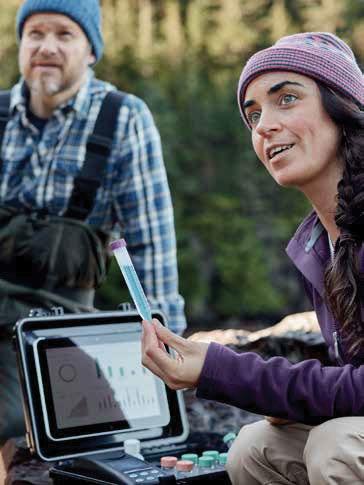BRANDBiggest THE NO ONE KNOWS ABOUT




We deliver actionable strategies and passionate advocacy with one goal – helping you get more from your real estate.

P114 CARL LOREDO, The Wendy’s Company

P120 JUANA GOMEZ, Monterey Mushrooms
P126 LUZ MORALES, DYMA Brands
P132 OSCAR PELAEZ, Yum! Brands Pizza Hut
P138 ERIC MUÑOZ, Good Food Group
P144 ESTEBAN VELASQUEZ, 7-Eleven International LLC
P150 CARLOS RIVAS, Instacart
P156 MARY BETH MARTINEZ, Insomnia Cookies
Our first-ever food issue gathers executives whose work profoundly impacts the food and beverage industry. These executives are driven by their local impact and, above all, the Latino tradition of centering food to build community.
The CEO of BODYARMOR Sports Nutrition on how the brand has gone from an industry underdog to the drink of choice for elite athletes and celebrity ambassadors like Jennifer Lopez
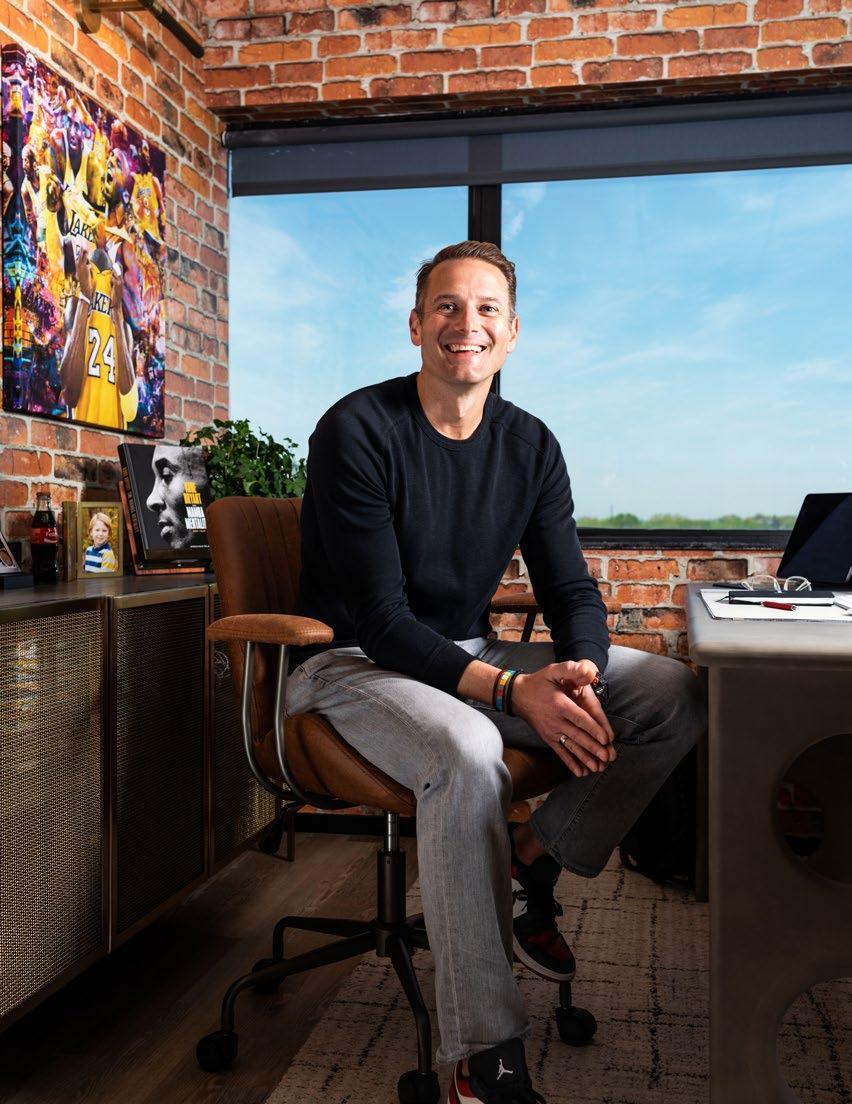
Thirty-seven years ago, Belinda Guadarrama created GC Micro Corporation. Today, it is one of the biggest Hispanic-owned companies in the US.
Bill Viqueira’s call to public service includes helping weather NJ TRANSIT’s pandemic-induced fiscal challenges and spearheading a new legacy of public-private partnerships
Jesus “JZ” Zamarripa traded in the family tradition of practicing medicine to pursue economics and tech. As a CIO at Humana, he merges all of his interests into one.
T-Mobile’s Martha Ventura is a rare breed as a Latina in technology. That’s why she’s building bridges to increase the number of women in her field.
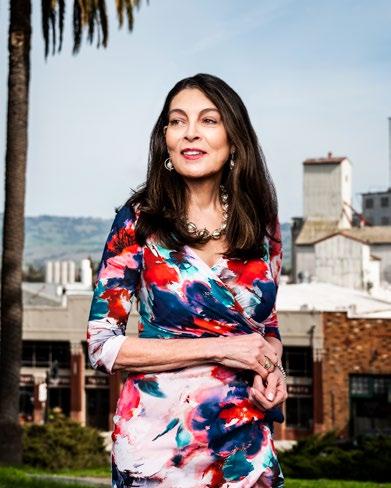
SVP Juliana Nunes finds her purpose in harnessing technology for the betterment of Johnson & Johnson’s employees globally
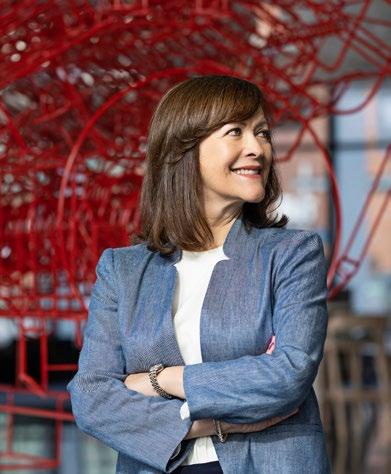
COURAGEOUS ACCOUNTABILITY
Diana Rey-Marrero became the first Latina officer in Cummins Inc. history by staying humble, curious, and accountable
IN THE NATIONAL CONSCIOUSNESS, LATINOS’ IMPACT ON FOOD is often limited to our essential role in the agricultural fields or the kitchens of big city restaurants. In my home state of New York, our apple and dairy farms are almost exclusively powered by Mexican and Puerto Rican migrants, while Manhattan’s restaurants bring together people from across Latin America and the Caribbean.
Among US agricultural workers, 78 percent self-identify as Hispanic (National Center for Farmworker Health, 2022), as do 48 percent of animal-slaughtering laborers, 43 percent of restaurant laborers, and 26 percent of all food-service workers (National Restaurant Association, 2020). Plus, the nearly 30 percent of domestic workers who identify as Hispanic (Economic Policy Institute, 2020), and whose role includes many food handling and preparation duties. There is little argument that Latinos are the backbone of the industries feeding the nation—and the world, since US farmers export more than 20 percent of what they produce—but do not be mistaken, we are also increasingly the brains behind the operation.
Hispanic Executive ’s last issue of 2023, the Food Issue, highlights the top Latino executives in the agriculture, food and beverage, and consumer packaged goods (CPG) industries, as well as the adjacent industries of health and wellness, retail, and technology.
Managing Editor of Hispanic Executive
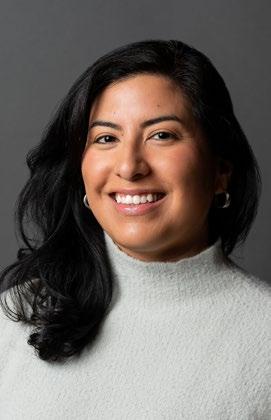
Our team did what it does best and identified a growing multitude of Latino leaders who are driven by food’s local impact and global reach, as well as whose visionary leadership in these industries is, in large part, inspired by their Latino heritage. Their stories expand and add nuance to limited narratives about Latino impact and inspire us to take a closer look at the companies, brands, and tech aiding our daily nutrition and consumption.
On the cover, we feature BODYARMOR Sports Nutrition CEO Federico Muyshondt, whose early life in El Salvador during the civil war gave him an immense appreciation for US grocery stores and their wide aisles, bright light-
ing, and massive refrigeration units. I had the pleasure of meeting Muyshondt in New York during his photoshoot with our photographer Cass Davis and his interview with writer Billy Yost. I was struck by Muyshondt’s optimism and excitement about the CPG industry, and his belief that although it “may not be as sexy as tech” it is still a place where one can make a big impact as a multicultural leader. As for his own career, he seemed grateful for finding this path and working with CPG companies that, as he puts it, “stand for superior food, superior credentials, and using that platform to make lives better.”
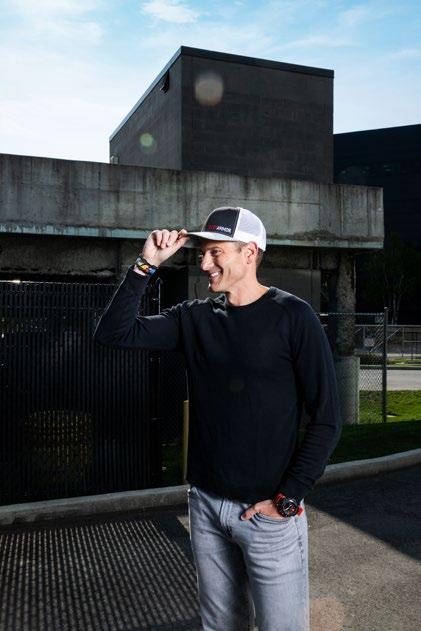
Additional food issue features include Monterey Mushrooms’ Juana Gomez who, as a child, picked produce in the fields before working her way up and into the farm’s offices. Today, she relies on those experiences to support the Latino farming labor force. Attorneys Carlos Rivas and Mary Beth Martinez tackle the legal challenges and opportunities of their respective employers, Instacart and Insomnia Cookies, and remind us how technology has changed the retail sale and delivery of food. Meanwhile, Carl Loredo at the Wendy’s Company teaches us how to listen to the consumer, instead of just marketing to them.
While this issue is meant to inspire and celebrate the food industry’s leading Latinos, it’s also a call to pay close attention to what is happening to the most essential of our nation’s systems and Latinos’ key role. As I write this letter in May, the politics of immigration are once again playing out on the fields and at our dinner tables. National news outlets are covering the empty fields and rotting produce in Florida’s farms after new legislation targeting undocumented workers caused a mass exodus of the state’s (mostly Latino) laborers. It is a stark reminder of how much the fate of America is tied to the fate of Latinos. For better or worse.
Our food systems, like all other societal systems, are dependent on people, technology, and legislation. It brings me so much hope to see a growing cohort of Latino executives leading the way here and doing so with empathy, determination, and pride. I suspect that part of what they like about the subject of their work is that it is tangible and real. As much as these systems and our labor can be politicized, food itself transcends politics and reminds us of our common humanity.
The photoshoot with our photographer Cass Davis embraced the grit and grind of BODYARMOR’s Queens, New York, roots by capturing its CEO in an energizing and sunlit outdoor setting. Designer Arturo Magallanes blended Davis’s image with digital renderings to create a surreal environment filled with reflective crystalline bubbles, water droplets, and swirls. Inspired by BODYARMOR’s energy drinks, the mock-3D cover highlights the aesthetic beauty of liquid’s refraction, transparency, and movement.
Masthead
Editorial Director
Frannie Sprouls
Managing Editor
Michele Cantos Garcia
Senior Editors
Melaina K. de la Cruz
Brittany Farb Gruber
Editor
Julia Thiel
Staff Writers
Noah Johnson
Billy Yost
Contributors
Zach Baliva
Lucille Cavanagh

Frank DiMaria
Peter Fabris
Will Grant
Frederick Jerant
Joseph Kay
Russ Kletke
Hispanic Executive® is a registered trademark of Guerrero, LLC
CEO & Publisher
Pedro A. Guerrero
President, Group Publisher
Kyle Evangelista
Chief of Staff
Jaclyn Gaughan
Senior Director, Sales
Hannah Tanchon
Director, Sales Onboarding
Shannon Borner
Enterprise Sales Executive
Stuart Ziarnik
Lead Recruiter, Guerrero Search
James Ainscough
Senior Director, Corporate Partnerships & DEI Solutions
Krista Horbenko
©2023 Guerrero, LLC. guerrero.co
1500 W. Carroll Ave., Suite 200 Chicago, IL 60607
Facebook: @hispanicexecutive

LinkedIn: @hispanic-executive
Twitter: @HispanicExecMag
Instagram: @hispanicexecmag
YouTube: bit.ly/youtubehemag
Natalie Kochanov
Keith Loria
Vivian Nunez
Claire Redden
Karen Schwartz
Art Director
Anastasia Andronachi
Designer, Hispanic Executive
Arturo Magallanes
Designer
Rebecca Kang
Photo Manager & Video Director
Cass Davis
Contributing
Sarah Joyce
Photo Editor
VP, Hispanic Division and Head of Audience & Engagement
Vianni Lubus
Director, Events
Jill Ortiz
Reprints
Reprinting of articles is prohibited without permission of Guerrero, LLC. Printed in China. For reprint information, contact Reprints & Circulation Director Stacy Liedl at stacy@guerreromedia.com.
Community Engagement & Communications Manager
Cristina Merrill
Social Media Manager
Suleidys Tellez
Head of Digital
Aleksander Tomalski
Director, Talent Acquisition & Engagement
Haylee Himel
Talent Acquisition Managers
Josie Amidei
Jordyn Gauger
Content & Advertising Managers
Veronica Marquez-Brown
Allison Kolosick
Roman Magallanes
Max Martinez
Luana Ortiz
Adriana Perez
Gilberto Perez
Alejandro Vences
VP, Finance
David Martinez
Director, Circulation
Stacy Liedl
Staff Accountant
Natallia Kamenev
Senior Director, Client Operations
Cheyenne Eiswald
Account Manager
Abigail Stern
Senior Manager, Client Services
Rebekah Pappas
Manager, Client Services
Brooke Rigert
Industry Partners
Have you ever gotten frustrated at someone who doesn’t know the difference between “año” and “ano”? Have you gotten offended at a Hispanic colleague who showed up late to your party, or wondered what the heck is up with all the new Latinx/Latine variants?
If so (or if you’re simply looking for a bit of a laugh), check out Laura Martínez’s new Hisplaining column. She began writing the column in 2022 to help today’s leaders smoothly navigate the multicultural business world, and Hisplaining has quickly become a favorite of our readers. But be warned—this column is handled with a serious dose of humor.
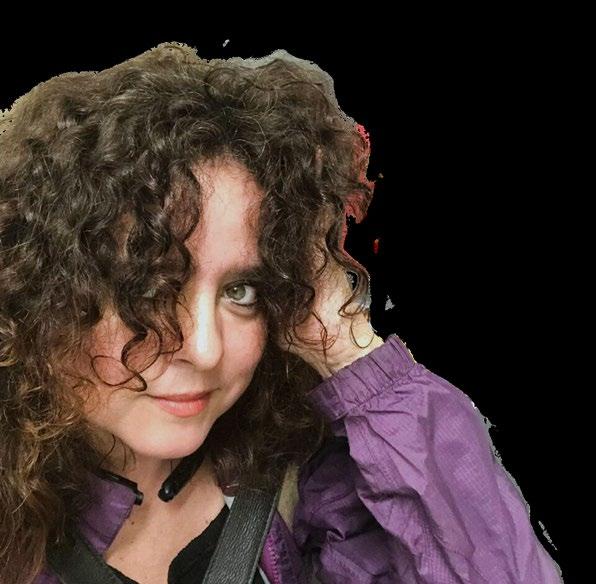
ANYTIME I CAN SHARE SPACE WITH another Puertoriqueña artist, I feel transported back to the island that is my first home and one of my biggest sources of inspiration. At the Whitney Museum of American Art’s 2022 to 2023 exhibition no existe un mundo poshuracán: Puerto Rican Art in the Wake of Hurricane Maria, twenty artists from Puerto Rico showcased their marvellous creations— including the one and only Awilda Sterling-Duprey and yours truly.
Sterling-Duprey is one of those artists who does not necessarily refuse categorization. She simply doesn’t pay them attention, so her practice has the space to evolve organically. Her work defies all artistic conventions but, if one had to, one could describe her as a painter and dance performer who combines Afro-Caribbean dance, jazz, and modern experimental movement.

Our interview illuminates the peace and practice of an artist free from the pressures of “making it” and, for me, charts the course for what an artistic life well lived might look like.
I have had so many changes due to life circumstances. Maybe I haven’t been consistent in one line, as we are supposed to be as artists. I have been consistent in conceptualization but also risky in production.
But we have to deconstruct in order to survive. We cannot continue to follow the linear pattern of the West.
[Art does not happen] at the time one wants. Whatever catches my attention in
the moment, that’s what I’m going to work with! I’m always studying the new paradigms because I’m curious and was trained like that.
What told you that this is going to be your life and career? Movement, critical discourse, etc.—I don’t want to define it but how would you describe what led you to do what you do today?
What I always mention is the environment where I grew up. In 1947, there were many changes in world politics and many wars and [through] let’s say 1963, when I began to study at the University of Puerto Rico, life was one of continuous changes and uncertainty because powers were dividing. The US was aware of the importance that Puerto Rico had on the map and then, [wanted] to accelerate its own interests. There was [also] talk of industrialization
in Puerto Rico. I listened a lot to what was said. I asked [questions]. Some things were answered, others not, but there were always many important issues [happening], including nationalism.
I formed from, if you want to synthesize it, observing and acting. Observe, save, and act, which is exactly what I do now as an already formed artist.
When did you realize that your manifestations and work as an artist were being captured and establishing a conversation with the public?
I was always exploring. Even though I have studied techniques, [exploring] is my way of communicating with the public. The techniques I put into function. It is something that occurs almost simultaneously, and I do not have to think about it.
Your format as such is dance, correct? And painting. That is why I always have to emphasize that, in my process, what leads me to performance art is having first trained as a visual artist, and within visual art, in abstract expressionism.


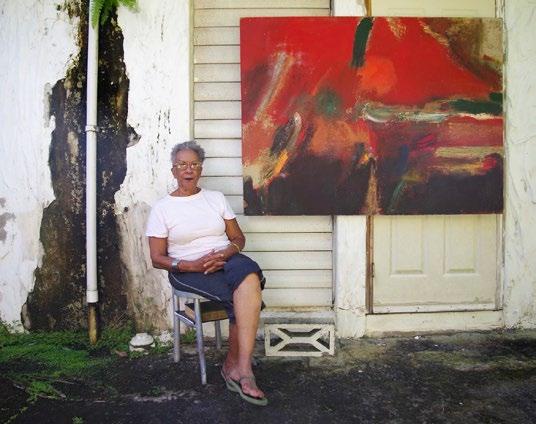
Would you like to expand a bit on your visual exploration?
Color has always been what caught my attention the most. I never had a good grasp on figurative painting or traditional drawing. I remember that I always had to let go of something. When I was little, I was always moving, too. They told me, “Baby, be still.” I was [always] trying to embrace space, even when I didn’t know it existed. When I get lost in the visual arts, the artist that strikes me the most is Franz Kline and the period of his painting in black and white. He always worked listening to music.
I started imitating him. I used my strokes to see how far the stroke could take me. I was realizing that my body was following the stroke. I had to separate myself quite a bit to look at it because, up close, it was impossible to capture it. My practice as a visual artist was giving me [a sort of fullness] to inform me of the three-dimensional space [so I could] organize the dimension of the tones and colors among themselves, and how they were weighed. The painting itself told me, “Leave me, ya! ”
I [then] began to work on the experimental when I arrived in New York to do my master’s degree at the Pratt Institute, to work on the body as an aesthetic element in dance. I took an experimental dance elective with Tricia Brown, who was one of [the style’s
blindfolded, 2022. Awilda Sterling-Duprey performed blindfolded during the installation of the 2022 Whitney Biennial. Sterling-Duprey’s dance-drawings, a series of works begun in 2020, involve her blindfolding herself to make intense jittery, abstract marks on paper and walls in response to jazz improvisation.
pioneers], and I was [also] living with Pepón Osorio. We had a group of party-loving friends and also started working fully with Marian Soto, who was exploring deconstruction of the times of the guaguanco and salsa toward a broader space of improvisation.
That relationship led us to make presentations for friends and was a space for exploration that was forming me. I began to understand that the body also occupies a space when it is painting, and that body has dimension. My body was the mobile element in a three-dimensional space.
In the ’80s I created Pieza de Balcón (Balcony Piece), a piece with autobiograph-
ical content. In the mornings, in my house in Santurce, Villa Palmeras, in Puerto Rico, I would sit on the balcony to drink coffee, rocking in an armchair. As I sat on that little wooden balcony, I reflected on what I was doing. I was moving, and I was thinking about my circumstances and drinking coffee. [I thought] about when I learned to dance to different rhythms [with my father]. The rocking in an armchair while I sang a segment of a bolero, having some clotheslines to put clothes to dry, using the clotheslines to move from one environment to another. I [also] invited my dad to sing a bolero he loved, and the movements were like that, circular, going from one emotional moment to another. My work has a lot to do with instinct. That’s why I like to fill it with a lot of information because it is in
Puerto Rican born, Edra Soto is an interdisciplinary artist and codirector of the outdoor project space, the Franklin.
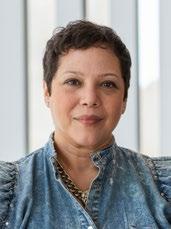
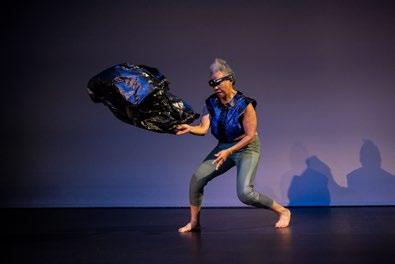
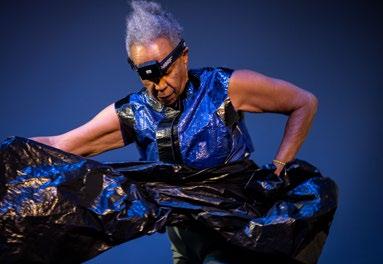
Recent venues presenting Soto’s work include Crystal Bridges Museum of American Art’s satellite, the Momentary (Arkansas); Albright-Knox Northland (New York); Chicago Cultural Center (Illinois); Smart Museum (Illinois); and the Museum of Contemporary Photography (Illinois).
Recently, Soto completed the public art commission titled Screenhouse, which is currently at Millennium Park in Chicago. Soto has attended residency programs at the Skowhegan School of Painting and Sculpture, Beta-
instinctive moments that I find materials to select.
Let’s talk about “Lacks Criticality,” one of the works you have presented at the Whitney Museum of American Art. How did it come about?
The title was suggested to me because I do not affiliate with titles so as not to limit the work.
Reflections on my work always suggested that my work lacked criticality. I asked what that means, and the reply was that the work is not understood or that it lacks arguments to express itself. So that led me to the title for my piece. It was also an opportunity to provoke because I don’t want impositions! You have to respect our respectful glances. They inscribe a paradigm to everything, but some work escapes the paradigm.
Local, the Robert Rauschenberg Foundation Residency, the Headlands Center for the Arts, Project Row Houses, and Art Omi, among others. Soto was awarded the Efroymson Contemporary Arts Fellowship, the Illinois Arts Council Agency Fellowship, the inaugural Foundwork Artist Prize, and the Joan Mitchell Foundation Painters & Sculptors Grant, among others. Between 2019 and 2020, Soto exhibited and traveled to Brazil, Puerto Rico, and Cuba as part of the MacArthur Foundation’s International Connections Fund.
Soto holds an MFA from the School of the Art Institute of Chicago and a bachelor’s degree from Escuela de Artes Plásticas y Diseño de Puerto Rico.
Latinos make up less than 5 percent of corporate America’s top management positions. These six chiefs are part of the exceptional few Latinos who have claimed a seat in the C-suite and who have done so across critical industries.

An unexpected layoff left Belinda Guadarrama with few other options, so she created GC Micro Corporation. Thirty-seven years later, she’s turned it into one of the biggest Hispanic-owned companies in the US.

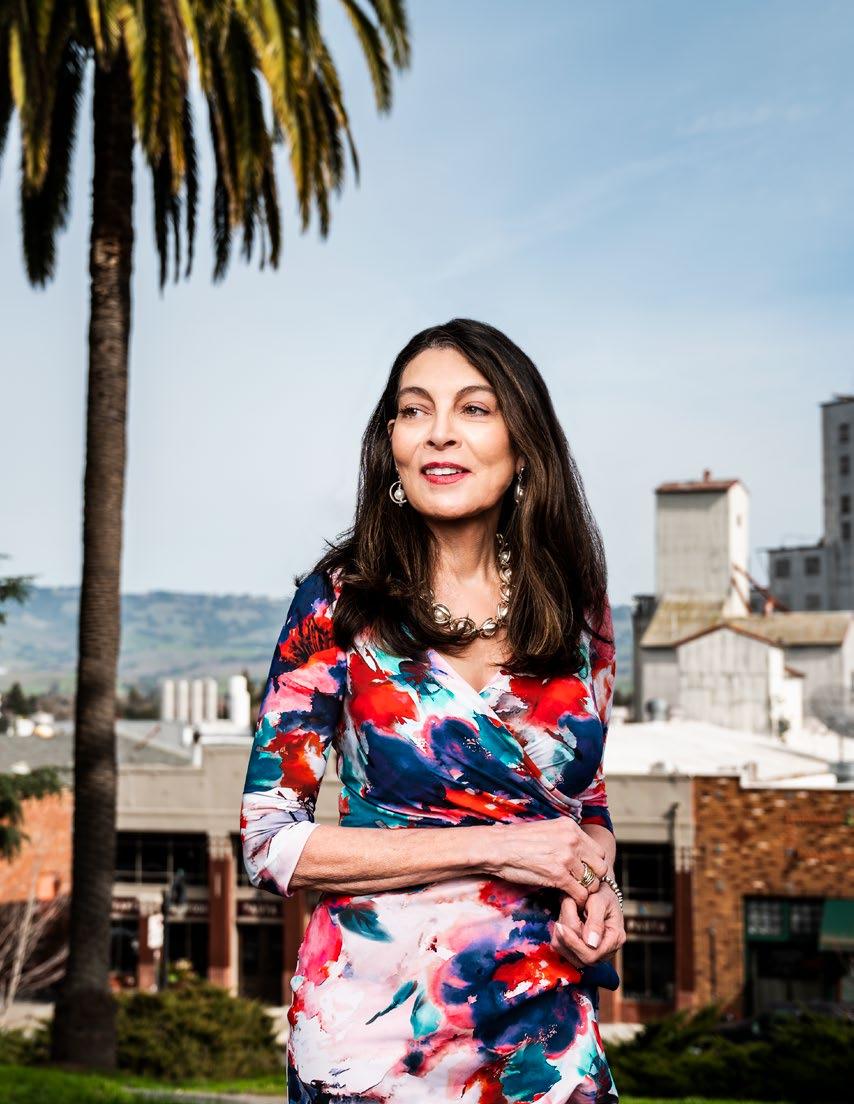
FOR SOME ENTREPRENEURS, STARTING a business is the culmination of a lifelong dream. For Belinda Guadarrama, it was an act of desperation. The native Texan fell into IT in her home state. She then moved to California to support a company that sold software nationwide. One day in 1986, she came to work and there was a “closed” sign on the front door of the building. The company had gone dark without notice.
Guadarrama was stunned. She allowed herself only a few hours to panic and grieve. There wasn’t much more time since she couldn’t sustain herself without a steady income. Instead of editing her résumé or making cold calls, the young professional decided to take matters into her own hands. Guadarrama started her own company. She called it GC Micro Corporation, and just days after her unexpected layoff, the company was ready for business.
There was just one problem. While Guadarrama had courage, ambition, and

chutzpah, she needed something else— clients. Her previous company took out ads in magazines like PC World to sell products to the general public; she enjoyed working with large companies instead. So Guadarrama decided to pivot and set herself up to serve big, complex corporations.
The strategy worked. Fast forward thirty-five years, and the minority- and woman-owned business has dozens of employees, billions of dollars in inventory, $80 million in revenue, and a reputation for serving Fortune 500 companies and leading government agencies like NASA. Guadarrama has advised three presidential administrations, and GC Micro has helped launch satellites.
They’ve done it all on word of mouth— without ever taking out an ad.
How did she pull off her unlikely version of the American dream? By focusing on the right things. “I’m passionate about small business and about understanding market needs while putting the right people in place to
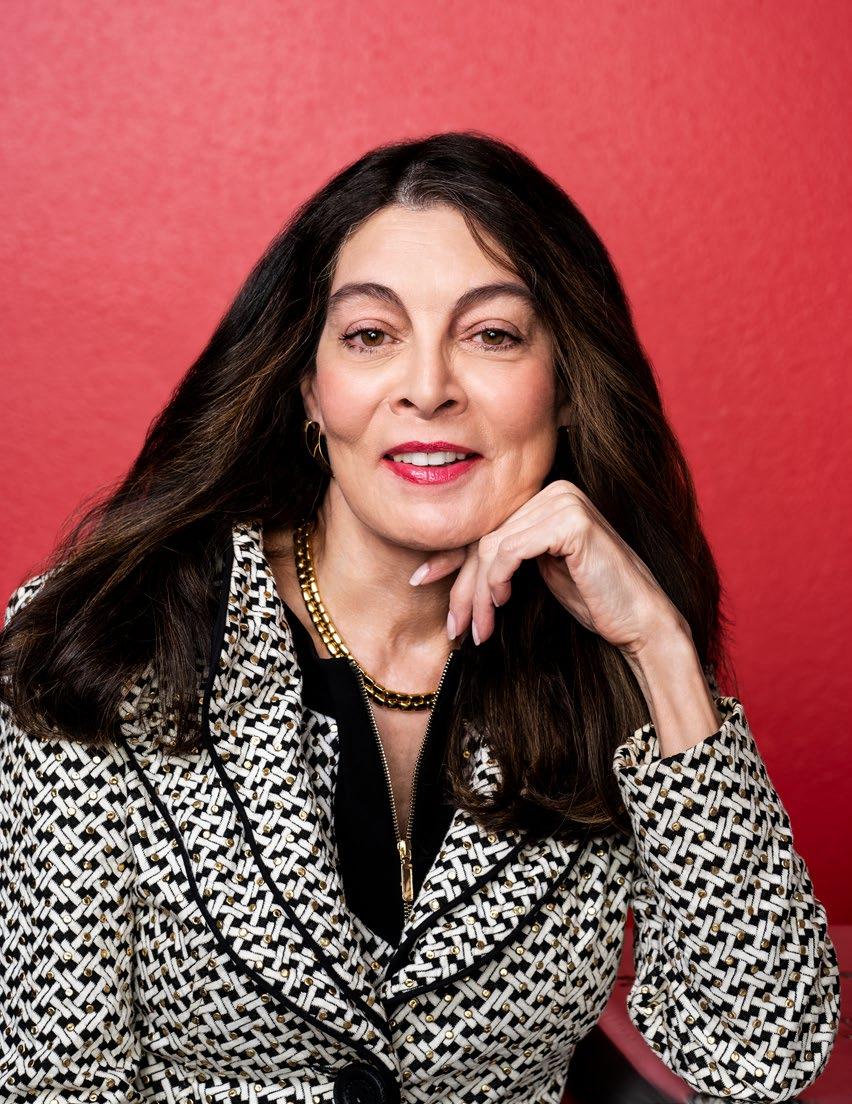
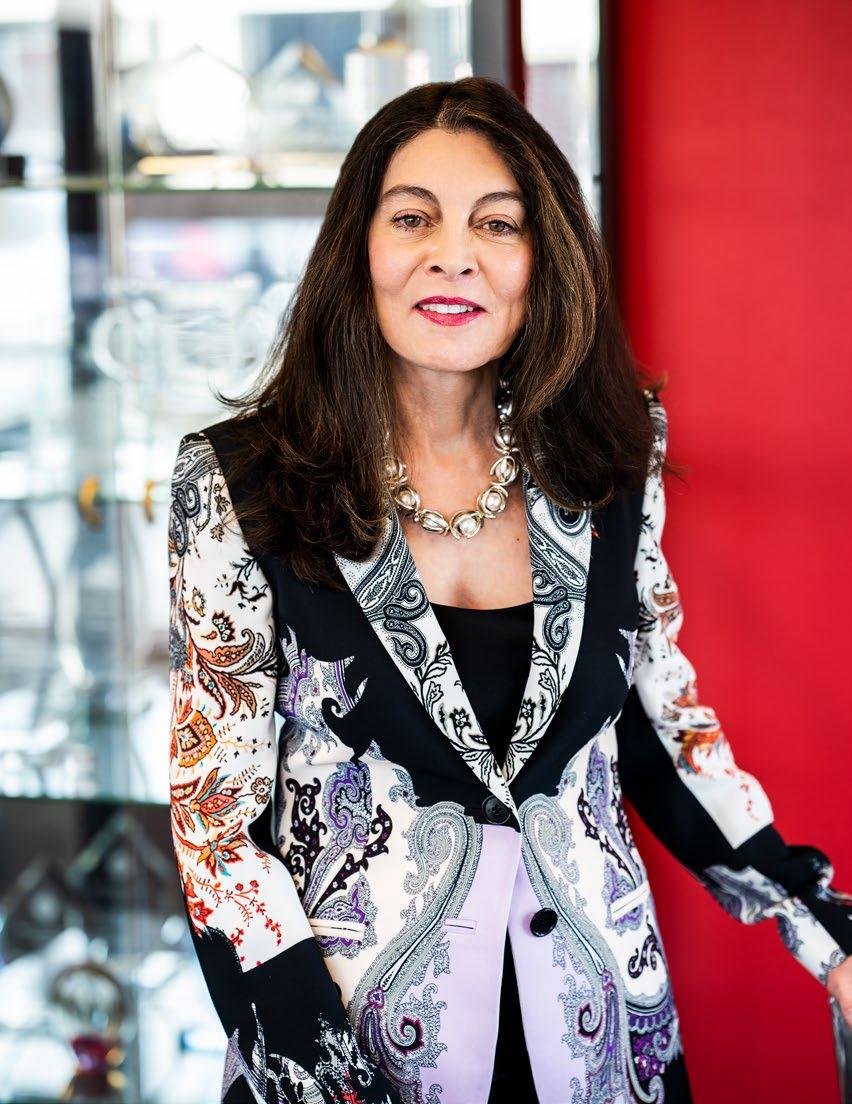
build relationships that last,” she says. “At GC Micro, our basic principle is to focus on our customer’s needs. We’re not a success unless our customers are successful.”
Back in 1986, Guadarrama sent out five hundred typed letters via US mail. She was offering to find obscure software solutions and stitch them together to handle very specific institutional tasks. Leaders at the University of California system responded, and UC Davis became an early GC Micro client. But Guadarrama didn’t meet with them on her own. She assembled a small team of engineers and brought them with her to early client meetings to ensure all technical concerns and issues were satisfactorily addressed.
With money coming in, Guadarrama focused on infrastructure and strategy. She first got registered as a small business, and later as a minority-owned entity. The move opened new doors, and when customers started asking for memory and other components, she evolved from a software reseller to a hard-
ware and software integration, services, and solutions company.
As GC Micro Corporation grew, Guadarrama became more interested in leveraging her academic background in economics and her experience as an entrepreneur to help other small businesses. The leaders she’s met usually need advice on how to back up their ideas and passions with smart business strategy and an understanding of real-world finance.
She remembers being rejected for loans twice despite having a profitable business.
“I had to work with consultants and mentors who taught me how to do new things so I could grow the right way,” she say. Then, Guadarrama learned to partner with local regional banks whose managers would observe her business, look at her books, and discover her potential. Now, she helps others take a similar approach. She’s also on the board of directors at Summit State Bank, where she helps Sonoma County small business and nonprofits access funding in California.
Guadarrama has accumulated several accolades from groups like the US Hispanic Chamber of Commerce and the US Department of Commerce, but she is quick to share credit with GC Micro Corporation’s dedicated employees. “I empower people here to do meaningful work and make decisions on the spot. I treat employees like business partners, and they in turn treat our clients well.”
She also invests time in training and development. Employees go through ninety days of training before they talk to a customer. An actual human—not a machine—answers each and every phone call. “The secret of GC Micro’s continuing success is our wonderful staff,” she says. “Everyone here recognizes that we are only in business because of our commitment to our customers’ success.”
The results are undeniable. After nearly four decades, GC Micro is still working with many of its first clients. The lobby is filled with numerous awards from their customers for the outstanding service and support
provided. And the awards also include accolades for Guadarrama on her endeavors on behalf of the small business community, including the NASA Public Service Medal, the highest honor a civilian can earn from that agency.
In May 2015, Guadarrama’s company did something few other women-owned tech firms have done. She and GC Micro Corporation won a ten-year NASA Solutions for Enterprise-Wide Procurement (SEWP) Government Wide Acquisition Contract (GWAC). The deal has a $20 billion maximum lifetime value, and GC Micro’s hardware and services are used on major high-visibility projects. GC Micro strives to provide the latest technology for their clients with complex configuration and integration
services working with major vendors like Hewlett Packard Enterprise (HPE).
“I have had the pleasure of working with Belinda and GC Micro for almost twenty-five years,” says Brian Vineys, federal partner business manager at HPE. “Belinda has shown unequalled leadership in an industry that has undergone an amazing amount of change over the last quarter century. She is passionately committed to delivering the best products and services to her customers. For Belinda, no mission is too small, no rollout is too large—but they are all treated with equal importance.”
When Guadarrama sees news about NASA launching a rocket, she knows her company has had something to do with it— and has been on a similar trajectory itself.
“ The secret of GC Micro’s continuing success is our wonderful staff. Everyone here recognizes that we are only in business because of our commitment to our customers’ success.”

IMAGINE AN URBAN COMMUNITY THAT is an economic engine, arts mecca, and culinary hub all in one. Now fill it with some of the best entrepreneurs, chefs, and thinkers in the world and make sure there’s an energetic nightlife scene. Add in a mixture of 125 languages that represent the town’s 400,000 inhabitants, locally owned shops, and distinct neighborhoods. Place it near crystal water stretched across nineteen miles of coastline, sprinkle in some towering redwoods on rolling hills, add a natural lake in the middle of the city, and keep the average summer temperature under 75 degrees Fahrenheit.
It might sound too good to be true, but this place actually exists. It’s Oakland, California.
The Golden State’s eighth most populous city indeed has a lot to offer. After all, Oakland is home to the bustling Port of Oakland, the founders of the Black Panther Party, Lake Merritt, an historic Chinatown, a leading zoo, and a renowned symphony.
But even with all these assets, the Bright Side of the Bay found itself struggling in 2021. The COVID-19 pandemic had taken its toll. Peter Gamez is CEO of Visit Oakland, the official destination marketing organization for the city. He says the era left his beloved town heartbroken as convention centers emptied, hotels closed, and tourism ground to a halt.
When he stepped in to lead the organization in 2021, he inherited historically low revenues. Gamez set his sights on helping Oakland thrive again. “I wanted to help other people discover the Oakland that I love, and I knew I could use the mix of my heritage, my passions, and my experience to make a true impact,” he says.
Gamez was born and raised just across the Bay Bridge in San Francisco. His Cuban parents loved to travel and tied sightseeing and education into every family vacation across the states. Gamez studied broadcasting but
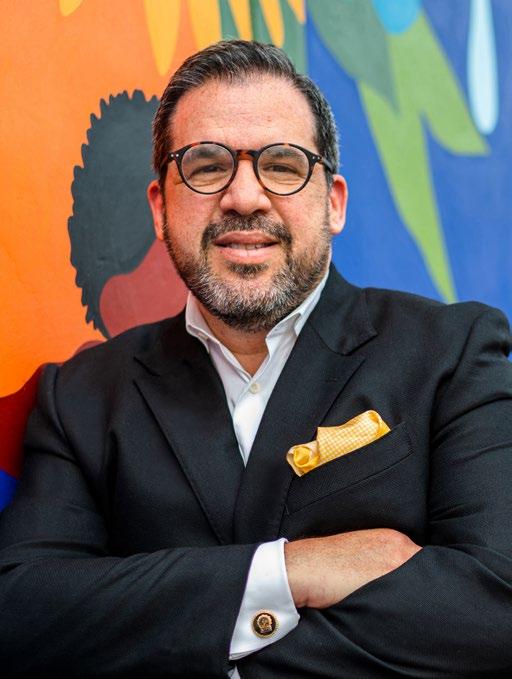
worked in hotels where he put his language skills to good use and discovered the thrill of serving other travelers as their concierge.
He spent more than a quarter century crisscrossing the globe in various leadership roles within the hospitality sector. Still, Gamez kept the humble spirit he learned by working in different roles throughout hotels. “I had a mentor once tell me that everyone in the hospitality industry needs to have the heart of an innkeeper,” he says. “I’ve never forgotten that.”
By the time Gamez got to Visit Oakland, some of the city’s residents and reporters were forecasting its demise. “We needed to create a positive story for Oakland. The media was telling our story without us,” he says.
Gamez’s first move was to meet with local media as he began to formulate a new strategy. Then he built a team of veteran professionals in sales, communications, marketing, and partnerships. Together, they set out to
take control of Oakland’s narrative and tell the city’s story themselves.
That team gathered positive content to send to local TV stations and media. It focused hard on Oakland’s strong culinary and related offerings to create a vegan trail, a cannabis trail, and an ale trail. Oakland may be the only place in the world where visitors can sample vegan soul food, vegan Puerto Rican cuisine, and everything in between. With the new trails off the ground, Visit Oakland is launching Oakland Style—a celebration of fashion, art, music, cuisine, and culture that Gamez says will allow his city to take center stage.
Gamez and his colleagues are aiming to draw people to Oakland and increase overnight stays that bring revenue to the region. They also employ an equitable approach that
the CEO strongly believes in. “We try to be as inclusive as possible in all of our programming. As a Hispanic leader and first-generation American, I want to help other underrepresented small business owners get a chance to be seen,” he says.
This desire impacts the chefs and business owners he and Visit Oakland select to highlight and elevate. Oakland’s residents and visitors reap the rewards in the form of rich and unique experiences.
His position as CEO also gives Gamez a platform to support the LGBTQ+ community, which he is a part of. Oakland Pride occurs each September, and Gamez says he is proud
to work in an inclusive community that values and celebrates all types of diversity.

Although Oakland is a major trade center with one of the busiest ports in the nation and top employers like Southwest Airlines and Kaiser Permanente, Gamez says the place he loves so much has never let its size get in its way. In fact, if you call Oakland a city, Gamez may correct you. “We call it the Town,” he explains. “Oakland is filled with people who have genuine, authentic spirit and welcoming hearts. It’s a major destination city with a small-town feel.”
Oakland is special and it’s open for business.
“
As a Hispanic leader and firstgeneration American, I want to help other underrepresented small business owners get a chance to be seen.”BY CLAIRE REDDEN

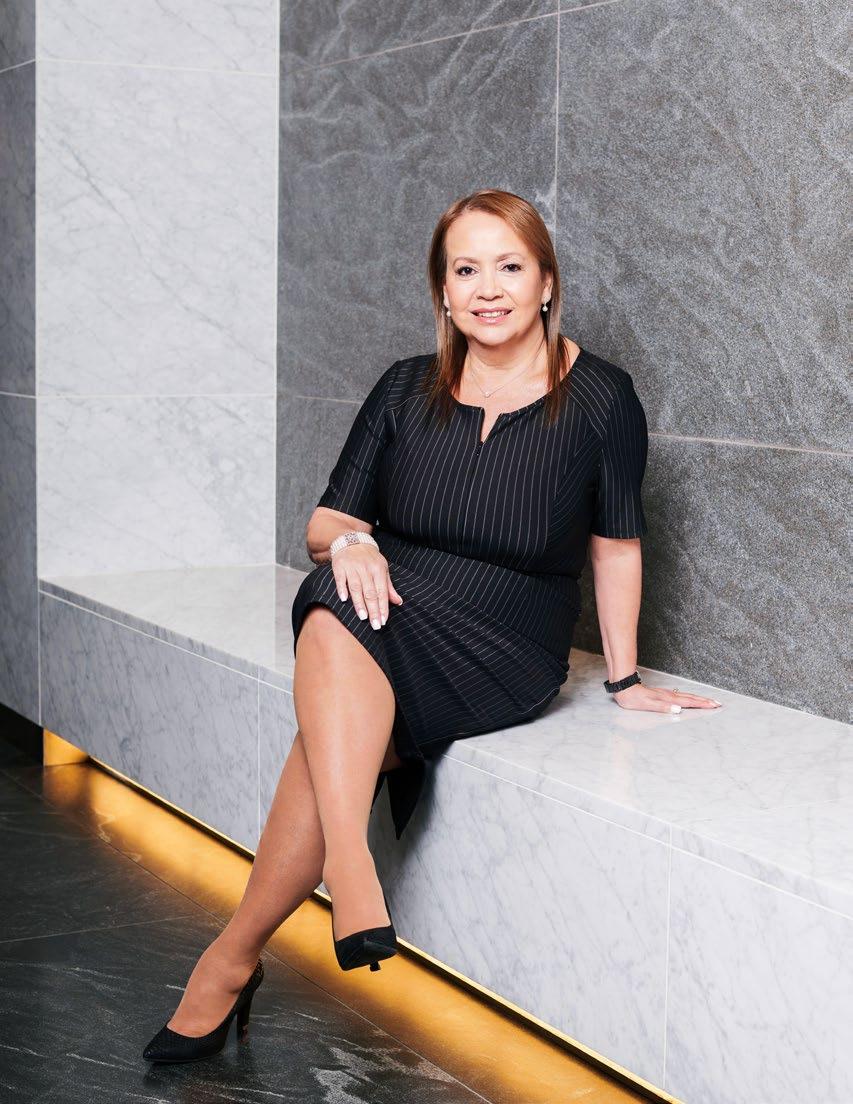
MARIA CHICLANA MAY BE THE CHIEF
legal officer and global general counsel at Shiseido Company Limited, the publicly traded global beauty company based in Tokyo, but she is also a girl from the South Bronx. She grew up with immigrant parents, from Puerto Rico and Spain, right next door to the Yankees stadium. But she has her own story to tell about growing up in one of New York City’s most notorious boroughs and the lessons learned that remain true today.
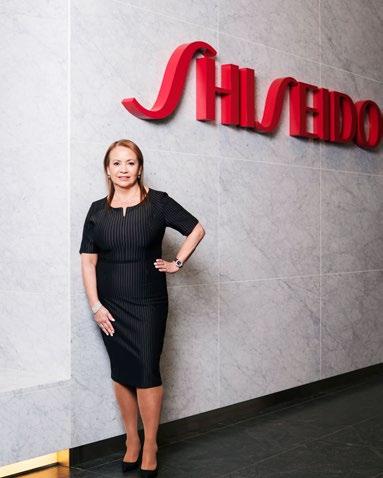
“My parents really created a happy home and taught me the importance of community,” she says. “While we understood that the Bronx, and the south part of the Bronx specifically, was not very safe, our neighbors on our block took care of each other, and we watched over one another. We were happy. I really didn’t know that I was poor.”
While Chiclana had a happy home, she was not a stranger to the uncertainty that transpired outside of her front door. Even as a child, she was street-smart. She began working at the age of twelve, and Chiclana’s family
encouraged her to work hard, study, and dream big. She never doubted herself. “My parents taught me that education was a true asset, worth more than gold, and that no one could take away from you,” she says. “My confidence came from my knowledge: I loved to read, learn, and watch world news, and self-taught when school fell short. To this day, I am eternally curious about a variety of subjects.”
One of Chiclana’s earliest memories was between the ages of eight and ten. The landlord of the building that she and her family lived in had an eminent domain issue, and he needed to go to court. As a Spanish speaker tasked with the responsibility of representing himself, he decided to take young Chiclana along to translate for him.
“I remember a judge coming up to me and saying, ‘Young lady, you should be a lawyer one day.’ I guess that stuck with me and law became my ambition,” she says. Her path to get there, however, wasn’t so straightforward—at least not compared to most other Columbia and Harvard graduates.
While attending her vocational high school, Chiclana participated in a nursing program that allowed her to do clinical hours in New York City hospitals, take her licensing state boards, and become a licensed practical nurse after graduating. “Every difficulty can be an opportunity. Living in the Bronx and not attending a purely academic high school gave me an opportunity to learn a marketable trade like nursing and to finance my way through higher education,” Chiclana says. “But the good nursing pay was the least of the reward. I learned valuable human lessons like the delicate balance between life and death, how not to waste time, humility, and respect for all individuals. As well, I learned about health and chemistry, which has come in handy at Shiseido.”
Although Chiclana loved nursing, her childhood law ambition remained intact. She went on to study political science at Columbia and, later, received her law degree from Harvard Law School. Chiclana was the first student from her high school to apply and be

accepted to an Ivy League. She graduated magna cum laude from Columbia, overcoming early doubts from some professors.
“I had just entered my freshman class at Columbia and the professor for the department saw my background and advised me not to take his course, as it had the reputation for being the toughest course in the department,” she says. “He suggested I take some ‘aggressive’ reading and writing classes first. I told him, ‘I actually think my reading and writing is very good,’ and I took the class and was the only student who got an A,” says Chiclana.
In the late nineties, after spending four years in New York City’s premier corporate law firms, Chiclana joined Calvin Klein, then owned by Unilever, as senior vice president and general counsel. She was one of three executives who later formed Unilever Prestige and Unilever Cosmetics International, making the

successful Calvin Klein business model into a multidesigner global prestige beauty business.
“It was a great company to join because Unilever was, at that time, a truly global company with great partnerships and consumer insights. But it also had this global operating company that was a niche, prestige beauty unit and which operated in an entrepreneurial fashion. It gave me the opportunity to learn and take on business roles, and that’s when I really started to marry business and the law together,” says Chiclana. “I wore many hats, including in the areas of global general counsel, licensing, consumer services, regulatory, IP, and corporate communications. I learned about growth and profit drivers, but I also learned a lot about consumers and employees, and the constant evolution of law and business.”
Even today as a Shiseido executive, Chiclana considers herself a businessperson who just so happens to be a lawyer. Ron Gee, the president and CEO for Shiseido Americas, agrees. “As so many of us who have worked alongside her know, Maria is a great business partner, and her legal acumen, which is considerable, is by no means the extent of the contributions she makes to Shiseido Group,” he says. He adds that Chiclana is “widely seen as a business leader driven in equal parts by her compassion, conviction, and integrity,
We are proud to join Hispanic Executive in celebrating Maria Chiclana of Shiseido.


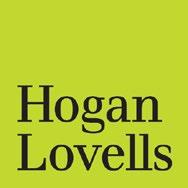


deftly managing to prioritize our business needs, while always upholding our company’s people-first philosophy.”
That philosophy is reflected in Chiclana’s career at Shiseido, where she’s become not only the company’s first Latina chief legal officer but also the first female one. She credits much of that to the company’s values around diversity, in both culture and skill set, which have come to be more important as its consumer base extends around the globe.
At Shiseido, diversity and inclusion are seen as core strengths both within the company and outside of it. “We wanted to get away from being Japanese-centric, and not just geographically. Our consumers live all around the world; they have different cultures, ages, skin colors and textures, and diverse health, wellness, and beauty needs. By reflecting that diversity in our workforce, we’re able to think as consumers, not for them,” Chiclana says.
The chairman and CEO of Shiseido, Masahiko Uotani, who’s also one of Chiclana’s mentors, says that Chiclana plays a big role in how this mindset extends to all levels
of the organization. “With Maria’s wonderful leadership, warm personality, and diverse experience, I asked her to become our headquarter-based chief legal officer , as I wanted her to extend her exceptional capabilities not only to our global legal team but to our worldwide organization,” the CEO says.
Chiclana also serves as “a strategist, catalyst, guardian, and legal advisor and operator,” and says, “I can’t look at legal myopically and stay just in a legal lane.” Consumers evolve, business evolves, and so too must legal.
“I thrive on being a true business partner, whether it’s in leading M&A, supporting strategic alliances, protecting our brands, opining on regulatory/safety matters, ensuring governance, or in promoting our values and culture of respect and excellence,” she says. “Under my leadership, the legal role is transforming from a traditional legal operator to a strategic business partner, enabling Shiseido to execute its business strategies while thinking globally and charming locally.”
Although Chiclana already mentors individuals entering the workforce within her
family, friends, neighbors, alumni networks, and at Shiseido, she hopes to step into it more in the future via public forums benefitting Latinos. However, her willingness to share lessons learned can help all women and she is hoping to one day teach a course on women’s career empowerment at Shiseido University, a new educational and training initiative launching later in 2023.
“Mentorship is really missing in the global workplace. Anyone who has ever had a mentor knows how valuable their wise advice and guidance can be to any personal or professional decision,” says Chiclana. “In the future, I see myself doing lectures and perhaps even a book focusing on early-career women entering corporations. A sort of ‘how to succeed in corporations’ guidebook reminding women to always have confidence in themselves and not let others shake it, to be their own brand ambassador, to blow their own horns if they have to, and to not let someone who does not know them, or their worth, disempower or label them.”
“ I remember a judge coming up to me and saying, ‘Young lady, you should be a lawyer one day.’ I guess that stuck with me and law became my ambition.
”
Debevoise & Plimpton LLP is a premier law firm with market leading practices, a global perspective, and strong New York roots. Our clients look to us to bring a distinctively high degree of quality, intensity, and creativity to resolve legal challenges effectively and cost efficiently. Deep partner commitment, industry experience, and a strategic approach enable us to bring clear commercial judgment to every matter. We draw on the strength of our culture and structure to deliver the best of our firm to every client through true collaboration.
Epstein Becker Green is pleased to congratulate Maria Chiclana on her well-deserved recognition in Hispanic Executive. We are proud to continue serving as a trusted advisor to Shiseido as we enter our fifth decade of providing clients with complete workforce management client solutions.
By putting clients at the center of everything we do, Hogan Lovells creates valuable solutions for clients around the world, including Shiseido. We congratulate Maria Chiclana on her recognition in Hispanic Executive as a team leader making an impact in everything she does. We are honored to be Shiseido’s strategic partner.




Ladas & Parry represents owners of IP rights at every stage of development, both domestically and internationally. With extensive experience creating, managing and enforcing high-profile domestic and global intellectual property portfolios, Ladas’ business-friendly and commercial oriented approach supports our client’s objectives, while keeping within their budgets. Our diverse professionals bring a deep understanding of local legal nuances in order to achieve maximum benefits for our clients.
ladas.com
© 2023 Morgan Lewis | Morgan, Lewis & Bockius LLP, a Pennsylvania limited liability partnership





Bill Viqueira’s call to public sector leadership at NJ TRANSIT includes helping weather the agency’s pandemic-induced fiscal challenges and spearheading public-private partnerships that will leave a lasting legacy
BILL VIQUERIA CAME TO NJ TRANSIT, in part, for his daughters. Viqueira has lived in senior vice president roles for a couple of decades and has amassed enough successes in his lifetime for at least a few different careers. But, as his daughters matured, he says their way of looking at the world has also changed him.
“I found myself wanting to do something in my career that had a public service element to it,” Viqueira, the SVP, CFO, and treasurer at NJ TRANSIT, explains. “It was important to me that my girls see me doing something that touched the public, something they could really be proud of.”
Viqueira came to NJ TRANSIT in 2018, and it couldn’t have been a moment too soon. The SVP found the finance function reflecting continuous years of mismanagement. He spent his first eighteen months focused on organizing internal departments, assessing talent, and recruiting new talent. This, for many reasons, was not always the most enjoyable of tasks.
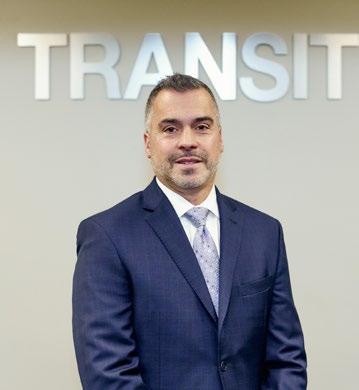
“Part of that process meant parting with people who didn’t want to participate in this new journey,” he says. “But, ultimately, I’m particularly proud of the team we’ve been able to put together here. It’s a true mix of

longtime NJ TRANSIT employees who were willing to adapt and new outside talent.”
Just as his team came together, Viqueira had to combat a problem that even a dream team would struggle with. By June 2020, some of the worst days of the COVID-19 pandemic, ridership was at just 5 percent of its average and NJ TRANSIT was six weeks away from running out of cash.
Fortunately, the federal government stepped in with the CARES Act, providing NJ TRANSIT with $1.4 billion in relief. That number would eventually reach nearly $4.4 billion in COVID-relief funding. Along with all the other challenges of the pandemic, Viqueira’s team had to deal with the ramifications of NJ TRANSIT’s funding sources being completely reconfigured.
“We went from an agency heavily reliant on state money that was appropriated every twelve months to an agency that was heavily reliant on federal relief funds,” he says. “The number of compliance regulations that go along with receiving those funds was simply not my background.”
A cross-functional team was created early in the pandemic to address this required evolution. Viqueira credits that team with helping navigate through the pandemic years successfully. He was able to provide direction but makes it clear he could not have done it on his own.
There have been less dramatic successes. The Hoboken Connect development project is a public-private partnership with real estate company LCOR that is seeking to create a waterfront revitalization effort for the city of Hoboken as well as a first and last point of connection to Manhattan via the Lackawanna Terminal. The project that had been in the works for fifteen years should break ground sometime in 2023.
Additionally, NJ TRANSIT has partnered with Russo Development and Onyx Equities for the transit-oriented development of the Metropark Station in Woodbridge. The twelve-acre development will feature Class A office and retail space, housing, community amenities, bicycle and pedestrian upgrades, and station upgrades.
While public-private partnerships (P3s) may be the buzzword of the moment, Viqueira says it’s a much, much tougher needle to thread than most people think. “If I had a nickel for every time someone said, ‘this project should be a P3,’ I’d be a very wealthy man,” he jokes. “But managing those risks and rewards is incredibly difficult to do. Everyone loves the idea of trying it, but when you get into the details, it’s often much easier just to talk about a P3 than actually do it.”
That said, the P3s that Viqueira has been able to see through will create a lasting legacy
for the people of New Jersey, a state Viqueira has called home for most of his life.
“I have developed a tremendous amount of respect for Bill over the years,” says Gregg Najarian, vice chairman of Savills. “He is a man of strong principles and has been an invaluable partner that has leaned on and valued our guidance. That dynamic makes for a strong client advisor relationship.”
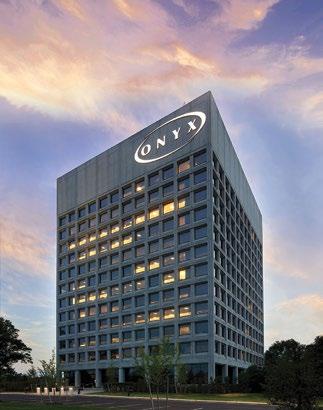
In many ways, the SVP is a Latino success story that you may have heard before. It’s one we hear so often of successful Latinos that we forget the heart, the love, and the hardship that made those stories a reality.
The youngest of three children, Viqueira’s father passed away when his only son was just four years old. His mother, a Cuban immigrant who spoke no English, was able to keep her family financially afloat by keeping as many plates spinning as she could. He has memories of helping his mother cut out embroidered patches that would fetch
pennies per dozen. Blistered hands were just part of the job.
“Somehow, my mother was able to keep us from wanting too much,” Viqueira says. “There were things we didn’t have, but we always had food and clothing.”

All three of the Viqueiras were able to attend college and have successful careers. But his desire to make sure his own family was secure may have created some blind spots for the leader in his younger years. “As I get older, I realize how important it is to look in the mirror and just check in with yourself,” he says. “Are the opinions and things I thought when I was twenty-five really how I still see the world? Or, have I changed? Have I grown?”
Viqueira is a man raised by women, surrounded by them his whole life. Whether it be his mother, his sisters, his wife, or his daughters, he says the women in his life have consistently pushed him to be a more thoughtful person and chal lenged the laurels he had been resting on for a couple of decades.
Even in this admission, Viqueira has demonstrated so much about himself. A leader who is not afraid to grow. A father who can handle the natural discomforts of engaging with the vision of the next generation. A man who wanted his lega cy to include the betterment of the world around him.
That is an incredible way to age.
 Onyx Equities LLC is a leading, full-service real estate firm specializing in investment, asset repositioning, and groundup development. Since 2004, Onyx has acquired over $4 billion in real estate assets throughout New Jersey, New York, and Pennsylvania, and has executed over $1 billion in capital improvement projects under its signature repositioning program.
Russo Development is a highly active, privately held developer of industrial, data center, residential, and mixed-use projects in northern New Jersey. In over fifty years, Russo completed more than sixty industrial projects and is one of the largest data center owners in the New York metropolitan area. Russo has over 3,800 residential units under management and over 3,500 units under development.
Onyx Equities LLC is a leading, full-service real estate firm specializing in investment, asset repositioning, and groundup development. Since 2004, Onyx has acquired over $4 billion in real estate assets throughout New Jersey, New York, and Pennsylvania, and has executed over $1 billion in capital improvement projects under its signature repositioning program.
Russo Development is a highly active, privately held developer of industrial, data center, residential, and mixed-use projects in northern New Jersey. In over fifty years, Russo completed more than sixty industrial projects and is one of the largest data center owners in the New York metropolitan area. Russo has over 3,800 residential units under management and over 3,500 units under development.
Jesus “JZ” Zamarripa traded in the family tradition of practicing medicine to pursue economics and tech. As a CIO at Humana, he’s merged all three interests to change the face of healthcare delivery.

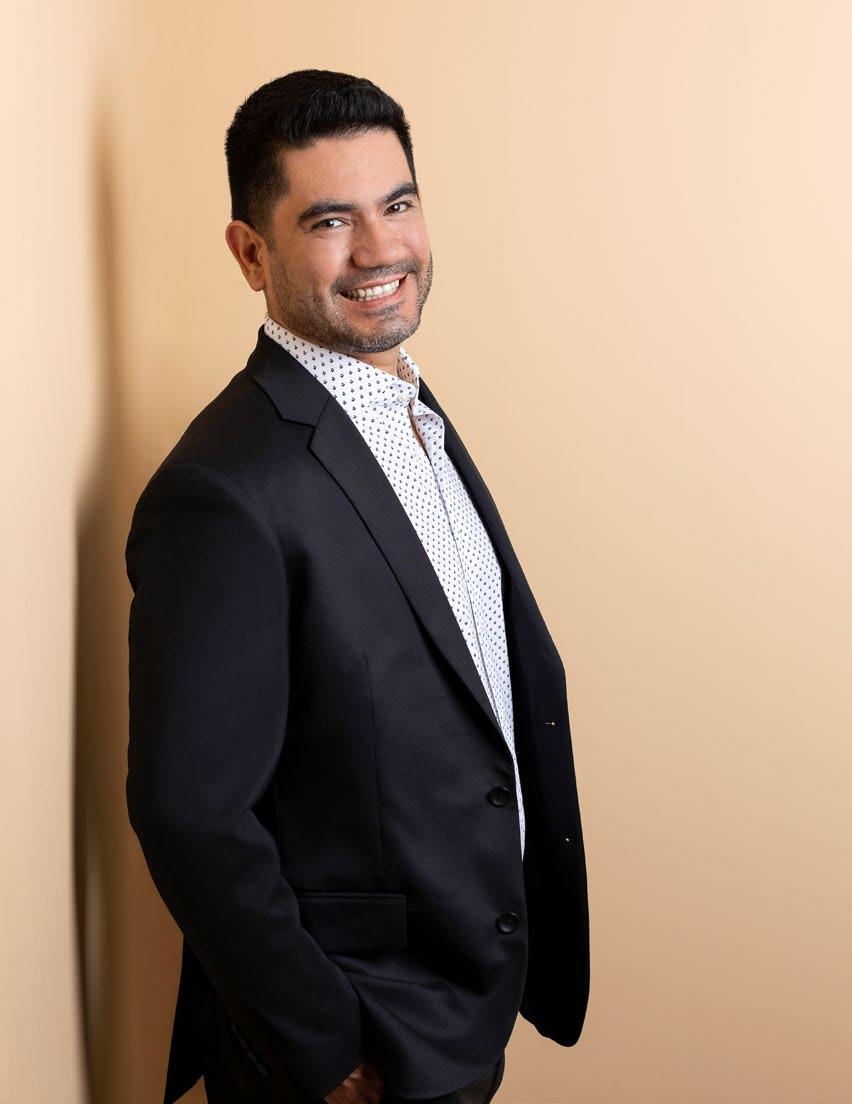
COMING FROM A FAMILY of medical doctors, Jesus “JZ” Zamarripa surprised many when he switched his college major from premed to economics. The study of scarcity, how humans and societies choose to deal with finite resources, is why economics is called “the dismal science,” after all.
But Zamarripa didn’t see economics in a negative light or as something that was coldly detached from helping people. “Economics fascinated me,” he says. “It’s about human behavior. And it provides a problem-solving structure.”
Zamarripa later discovered that economics, and the careers that can unfold from it, can truly help people. He followed a different path to achieve that, evolving into his role today as chief information officer (CIO) of corporate technology at Humana, where Zamarripa has expanded resources through technology, finding ways to make healthcare accessible to more people.
Right out of college Zamarripa found work in e-commerce at Capital One. This was around the year 2000, when doing business online was a vast new frontier. The highly competitive company had a rigorous recruitment and hiring process and provided an environment full of high-caliber talent. From there, a series of events pulled him into such things as evaluating hardware products, service management platforms, and data center rationalization.
“My big break came in 2004, when we decided to expand beyond being a credit card company into being a bank,” he says.
“Capital One had a joint venture with a Mexican bank. Being bilingual is part of what got me engaged with the M&A team, which led to the acquisition of the company’s first retail bank. I led that IT integration, which is how I achieved my first leadership and management role.” From there, Zamarripa rose through the ranks, achieving VP positions in the last five of his sixteen years there.
By 2016, Zamarripa’s dedication, work ethic, and track record of results led to opportunities from several Silicon Valley companies, but ultimately, he chose to go with 150-year-old MassMutual. “Culturally, it was a lot different from a tech firm. MassMutual is a steady and stable firm with customer relationships that last for decades,” he says. “It was there I believed my ability to differentiate and make an impact was greater.”
He was able to move all lines of business onto emerging software platforms at a notably rapid pace, having honed his skills such
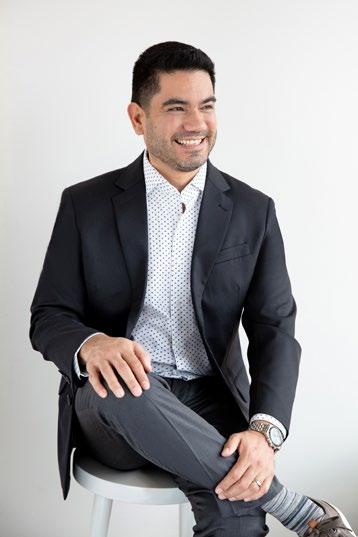

GalaxE is committed to diversity and inclusion by providing opportunities to professionals from all races, genders, ages, and socio-economic backgrounds with career opportunities to work on leading-edge, transformational technology. We o er an inclusive and supportive workplace where our employees are made to feel comfortable and are encouraged to be authentic.
GalaxE provides technology services and consulting to achieve transformation in large-scale and complex environments.
Building America’s next generation of IT, O2A focuses tech spend on workforce development and urban revitalization in targeted cities in partnerships with core customers, educational institutions, and local and federal government.

GxFource® integrates 4 key elements – services, products, playbooks, and experts to deliver services that achieve transformative business
as working across disciplines and enabling collaboration and cooperation among teams.
By 2021 he made his next career move to his current employer Humana, a company with 67,100 employees serving millions of customers. He was back in healthcare and working with patients as well as providers as the company’s head of technology in the CarePlus and Puerto Rico division, which services Medicare Advantage beneficiaries in Florida and Puerto Rico. Within eighteen months he was promoted to CIO of corporate services technology.
If ever there was a role that required in-depth understanding of multiple disciplines, technologically speaking, it was at Humana. Humana has a successful history in care delivery and health plan administration to create a new kind of integrated care with the power to improve health and well-being and lower costs. Zamarripa is leading his team in the mission of using technology to empower the company’s employees to make healthcare easier to navigate and more effective.
His ability to manage large teams in disparate places might well stem from his child-

hood. He grew up between Texas with his mother and Mexico with his father’s extended family, immersed in two languages and two cultures, always navigating two different worlds. He recalls, “It taught me to be independent but to know when to collaborate.
“As we plan for changes in the broad dynamics of healthcare, I find myself back in my economics background,” Zamarripa says. “For example, we have an aging population, where by 2050 the population of people over the age of sixty will grow by 40 percent. Humana is committed to making it easier for people to achieve their best health and we’re supporting them through empathy and a personalized approach.
“We are shifting to value-based care and care in the home because those are the care deliveries that resonate with patient preferences,” Zamarripa says. “Humana has a variety of clinical capabilities, branded as CenterWell, to support people in the healthcare settings they choose, including being the
“ Economics fascinated me. It’s about human behavior. And it provides a problem-solving structure.”
Deloitte applauds the outstanding achievements of Jesus Zamarripa from Humana.

nation’s largest home health provider; providing value-based senior focused primary care in more than 230 centers; and dispensing more than 500 million prescriptions annually.”
Each of these businesses depend on the essential services of technologies under Zamarripa’s executive leadership, as well as benefit from the critical thinking and visionary perspective provided by a strong economics background.
Partners benefit from his leadership as well. “We extend our heartfelt gratitude to Jesus Zamarripa for his continued patronage and congratulate him on being recognized as an inspirational leader,” says Ryan Hoyle, VP of Outsource to America at GalaxE. Solutions. “Your unwavering commitment to excellence sets a remarkable example for all.”
Zamarripa, buoyed by Humana’s strategic influence on the market, is part of a new type of leaders who can leverage seemingly disparate passions to help solve complex challenges like the American health system.
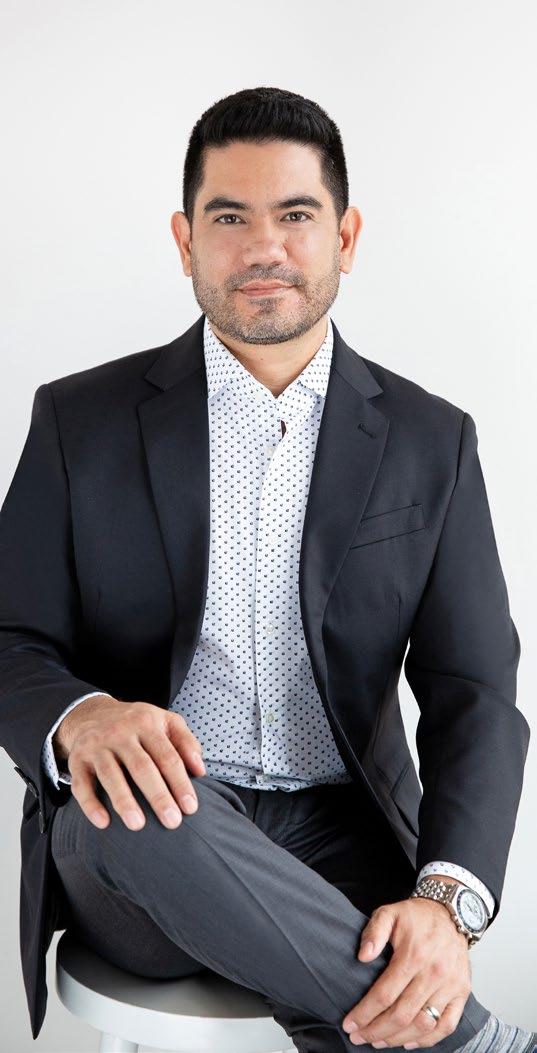
CHRO Argelia Medina shares lessons learned in an over twenty-three-year career at Desert Diamond Casinos & Entertainment


ARGELIA MEDINA IS CONSIDERING returning to school one day—maybe law school or a doctoral program. She’s excited by the challenge of learning a new set of skills that would elevate her leadership style and strategic thinking. She believes the added degree would bring even more to her role as chief human resources officer at Desert Diamond Casinos & Entertainment.
“It is important to understand that you don’t know everything, and you have to be open and willing to learning every day,” Medina says. “And if you have the ability to do so, continue educating yourself, as it will only add more credibility to everything that you do.”
Medina’s career journey is punctuated by this appetite for continuous learning and being a student of life.
The Southern Arizona native is a graduate of the University of Phoenix, where she earned both her bachelor’s and master’s degrees. For over twenty-three years, she worked her way up from an entry-level position at Desert Diamond Casinos and Entertainment to her current role as CHRO.
“I never thought that I would be here as long as I’ve been,” she says. “To be honest, when I first enrolled in school, I never thought I would [decide to then] pursue a master’s degree.”
Medina is intentional about her career steps, but not at the expense of following her intuition. She brings a balanced leadership style and strategic eye to her work, stewarding nearly three thousand employees and four casinos while setting the foundation for a fifth casino that is on the way.
“I’m a very hands-on leader,” she says. “I get involved with the day-to-day. I also work very closely with my management team to make sure that they understand all the different pieces and details that they need to be [abreast of] so that when we do come together, they’re able to answer my questions and I’m not necessarily going to their team to get that information.”
The CHRO believes in empowering her team to show up because that was one of the key drivers for her own career. She was afforded the opportunity early on to help tell the
story of Desert Diamond Casinos & Entertainment’s mission and values. “[When I first started], I really liked the recruitment aspect of the business because it was exciting,” she says. “You really have to be out there, pitching the best of what the enterprise or what a company has to offer to those looking for work.”
Not only did she have to understand the ins and outs of all Desert Diamond brought to the table but also had to communicate all of the opportunities for growth that were folded into the enterprise. Often her career trajectory within the company served as the key example as to why working for Desert Diamond was more than just a job; it had the makings for a fulfilling career.
Today, Medina folds in all the aspects of past roles that fulfilled her and continue to bring her joy and a healthy set of challenges. “I have all the umbrellas of HR under my management,” she says. “I oversee recruitment, talent acquisition, benefits and compensation, training and development, tribal development, tribal outreach, guest service, and employee relations.”
Whether Medina is weaving new connection points with her employees or supporting a new Casino build, she believes the future is full of opportunities.
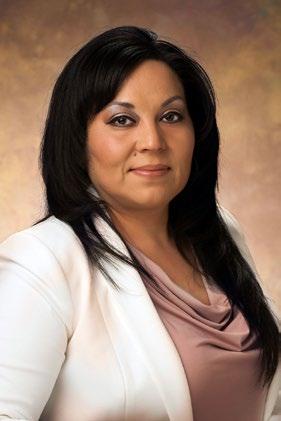
Her team is currently setting up the foundation to ensure they are ready to support the expansion of the Enterprise. Medina has been involved in every new build or expansion that has manifested since she joined the company in 2000.
“We’re all very excited,” Medina says. “There’s still a lot of questions in terms of when we’re going to open, how many team members we’re going to hire. However, in terms of processes and procedures, it really isn’t going to be different from what we have in place right now.”
The project perfectly combines the embers that have kept Medina’s passion for her career alive—the space to work on what she’s really good at and continued learning.
That passion and commitment are palpable by colleagues and partners alike. “Argelia’s sense of compassion for employ-
ees and love for Desert Diamond, the business she has served so faithfully, make her involvement and engagement in the benefit program decisions and those delivered to employees heartfelt and meaningful each and every year,” says Eric Rustand, Arizona market leader and senior consultant at CBIZ. “She is a compassionate and effective service-oriented leader.”
As she reflects on what advice she would give her newly graduated self or someone kickstarting their career right now, Medina thinks holistically. She encourages others to honor their passion and hold tight to their determination.
“For someone looking to get to a position like the one that I’m in, know it’s not easy. It does take a lot of work, a lot of sacrifices, and a lot of commitment,” she says.
“The only advice that I have is not to give up and not to allow downfalls or rejection to hold [you] back because rejection is just part of life. Do not lose sight of what your end goal is and [know] there’s no one right way to get there.”
She values the lessons learned on the fun and hard days. But, above all else, Medina notices that the throughline in her career is that of helping others.
“I think that when you’re able to see how much you’re helping people even though you or they may not realize it in the moment, it does make a difference,” she says. “The simple fact of just opening up the door to more information or different information for someone, [it’s] really satisfying to know that you were that person that did that, and possibly made a difference.”
In the world of professional service providers, you’re often faced with a difficult choice, a local organization that delivers personal attention but lacks the resources to meet your needs or a large national firm that treats you like a number. With CBIZ, you don’t have to choose. With more than 120 offices and 6,500 team members in major metropolitan areas and suburban cities throughout the US, CBIZ delivers top-level benefits, insurance, and financial services to organizations of all sizes by providing national caliber expertise combined with highly personalized service delivered locally.
“ It is important to understand that you don’t know everything, and you have to be open and willing to learning every day.”
Argelia Medina CHRO
Desert Diamond Casinos & Entertainment
CBIZ honors Argelia Medina, Chief Human Resources Officer at Desert Diamond Casinos & Entertainment, for her excellence in leadership and richly deserved recognition by Hispanic Executive.
We are proud to serve Desert Diamond Casinos as their trusted health and welfare consultants.
www.cbiz.com
When one’s work makes an impact in the community, it transcends employment and becomes a calling. These executives have answered their call.
50. Martha Ventura, T-Mobile 58. Natalia Mosquera, Vohra Wound Physicians 62. Carlos Salcines, Warner Bros. Pictures 68. Eneida Román, Amplify LatinxT-Mobile’s Martha Ventura is a rare breed as a Latina in technology. That’s why she’s building bridges to increase the number of women in the field.
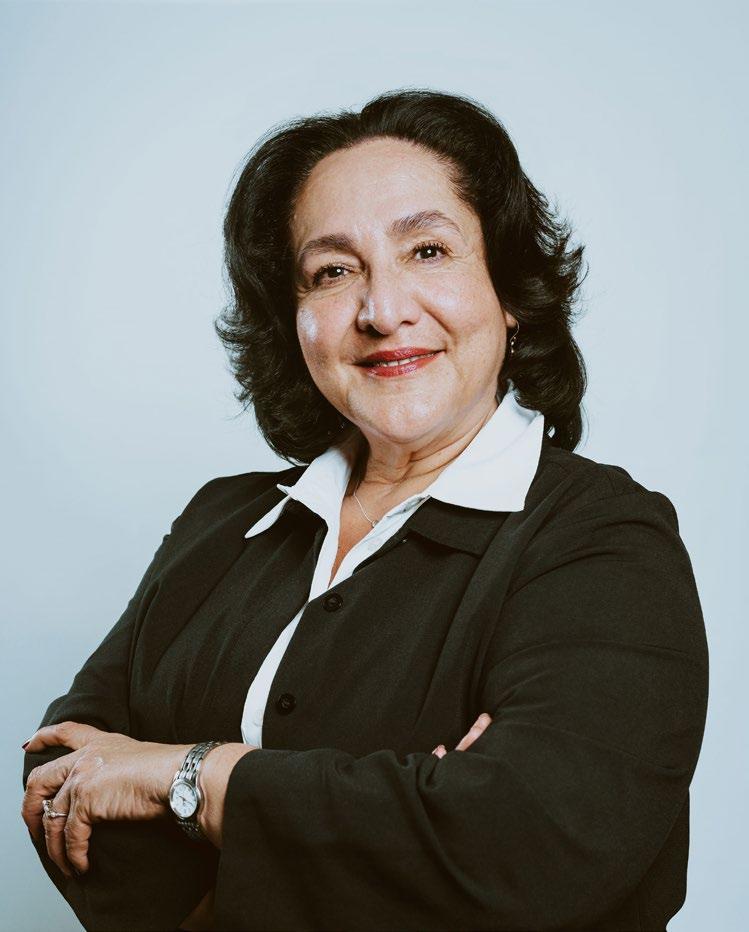
AS T-MOBILE’S VICE PRESIDENT OF engineering and operations, Martha Ventura does more than build network infrastructure for Southern California. The Mexican Nicaraguan American executive is also passionate about building a strong bridge between women and the tech industry, where women make up about 28 percent of the workforce.
When she reflects on the progress that’s been made on that front since she began her telecommunications career thirty years ago, she says, “I wish I could tell you that it’s night and day.
“I see glimpses of change, but I think as a society we still have a tendency to think there are fields for men versus fields for women,” Ventura continues. “That’s why I’m continuing to have these conversations to encourage young girls to look into fields in STEM. It’s important for people to see representation.”
Ventura knows from experience that representation matters. It’s a lesson that brings her back to high school. Her parents thought she’d make a great teacher, but she never really knew what she wanted to be.
Not until a woman who was a satellite engineer visited her math class to give a talk, that is.
“I thought it was the coolest thing. I went home that day and told my parents that I was going to be an engineer,” she says. “I really think back about what trajectory my life would’ve taken if she never came to my class. I never thought about engineering before that day but once she opened my eyes, I didn’t veer from that path afterwards.”
Today, Ventura is the one going to classrooms and opening eyes. At work, she’s a mentor as part of the Women and Allies Network, an employee resource group at her company. There, she’s made great strides in helping others advance in their careers, including one mentee that went from an engineer to a senior manager.
Outside of work, she gives talks to support young women studying engineering at UCLA, her alma mater. That’s also where she became involved with the Society of Hispanic Professional Engineers, an organization which aims to empower the Hispanic community through STEM
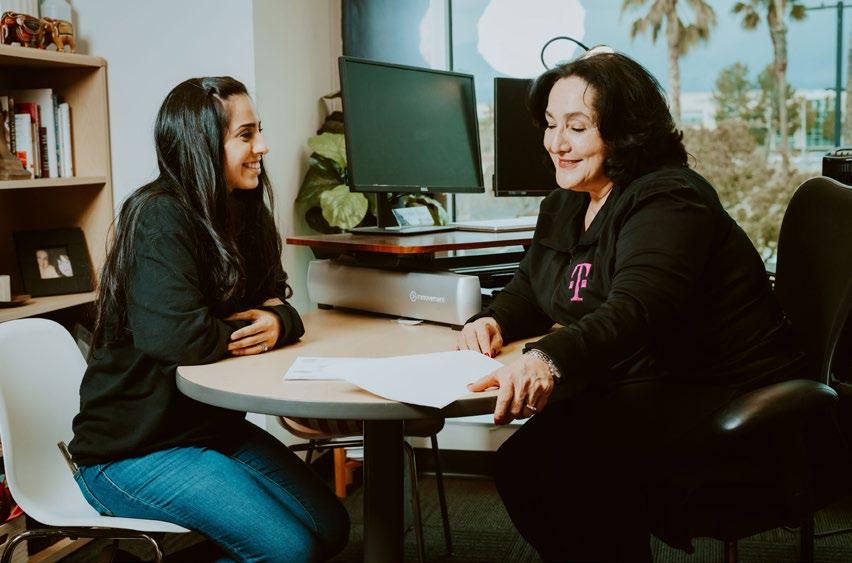
I see glimpses of change, but I think as a society we still have a tendency to think there are fields for men versus fields for women.”
awareness, access, support, and development. Ventura advances that mission by performing outreach to middle and high school students, hoping to inspire the next generation of STEM leaders and innovators.
“I think young people and girls need to know that STEM is fun,” the VP says. “I love getting a group of girls together, and they get really excited about science or math. We’ve got to figure out how to keep that excitement going so that they stay with those subjects through high school and college.”
Ventura’s drive to empower and help others started with mentors who were instrumental in her own development. As the child of immigrant parents who didn’t have a corporate
background, she started her career feeling like she had to figure everything out on her own. But in her first full-time job at Pacific Bell, which was a landline telephone company at the time, she found support from a Latino leader who would go out of his way to help up-and-coming professionals.

As her career progressed, she found that same kind of support through sponsors. They’d advocate for her when she wasn’t in the room, recommending her for new roles and responsibilities. Because of her hard work and their support, she didn’t have to interview for any of the positions she obtained after making a transition to the wireless side of the telecom industry.
“Every promotion I ended up having was because of the reputation
I think young people and girls need to know that STEM is fun. I love getting a group of girls together, and they get really excited about science or math.”
I built, because people knew what I could do and they’d often say ‘Hey, I know someone who’d be perfect for that [role],’” she says.










Those experiences ingrained in her what she calls a “transformative leadership” style. To her, that means encouraging her team of three hundred employees to realize their full potential. That means helping them go above and beyond their goals however she can. The not-so-secret ingredient to that process is genuinely caring.
“You can’t just be there for them to tick off a box,” she says. “They sense when you care, and when it’s authentic, they’re willing to give more of themselves. Then it’s more of a relationship instead of a career development conversation mandated by the company.”
That’s what helps her build culture at T-Mobile, which she admits is a long-term process. It started fifteen years ago, when she came on board. The market she started with was underperforming and she was determined to turn that around. She set the foundation by having a clear, customercentered vision and finding the right managers to carry it forward. She knew their hard work had paid off when she had conversations with engineers who willingly suggested ideas that embodied her vision.
“To me, that was the turning point,” she says. “It wasn’t me telling them, ‘Did you think about the customer?’ They were telling me. Now, my area is the top performer in the country.”


When she isn’t building up young people, her team, and a strong culture at T-Mobile, she’s focused on building and supporting all cellular networks in Southern California. Her team is currently in the process of completing a 5G roll out, a project she says is 80 percent complete. According to Ookla, T-Mobile was the fastest mobile network provider in forty-five states and the District of Columbia in the fourth quarter of 2022, as well as in eighty-six of the hundred most populous US cities. For 5G, T-Mobile had
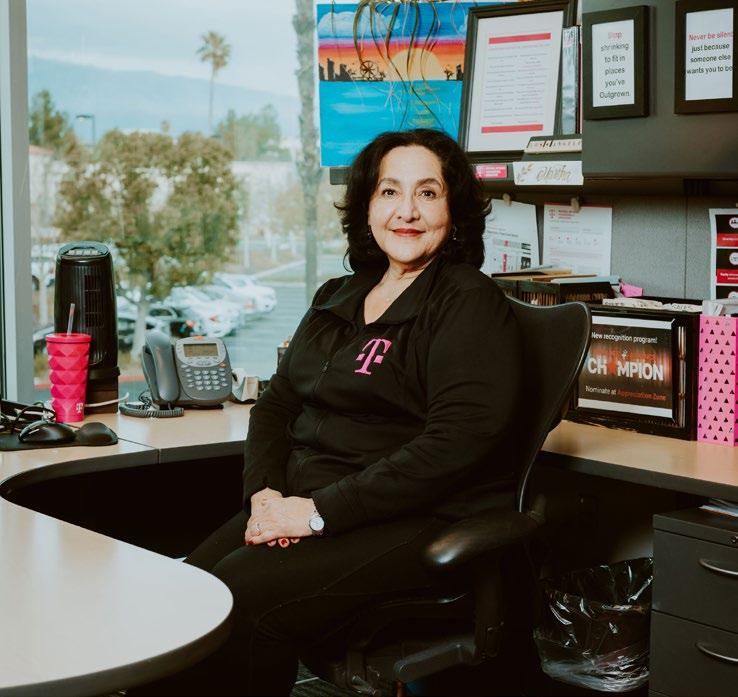
the fastest US median 5G download speed. Even as the team completes the rollout, the company is already eyeing 6G.
As someone who came to the company while it was still using 2G, Ventura is particularly excited about the evolution of technology.
“When I started my career in wireless there was only voice; you couldn’t even text,” she says. “That wasn’t even a thing, and to see now that we have these mobile phones in our hands is amazing. The sky is the limit.”
Further Enterprise Solutions delivers innovative RF, site deployment, integration, and optimization services in close collaboration with T-Mobile local market and national teams. Over the past twenty-one years, FES has developed vast experience designing all technologies and equipment vendor platforms including new site turnups, technology upgrades, and improvements in the T-Mobile network.
As industry leaders, Betacom has mastered the art of the build, collaborating with wireless specialists like T-Mobile’s Martha Ventura. Today we are providing the telecommunications infrastructure, expertise, and efficiencies in deployment that are helping businesses and communities across America embrace future growth and change. Learn more at betacom.com.
With a never-ending demand for reliable and fast wireless connectivity, MasTec offers expert solutions to meet your needs. As a national leader in turnkey wireless deployment, MasTec is not only keeping pace with the communications evolution, we’re driving it.

With a full range of turnkey capabilities and seasoned professionals in all ranks, Network Connex accelerates the performance excellence of the most sophisticated fiber and wireless network service providers, data center operators, hyperscale cloud companies, cable MSOs, utilities, government entities, and Fortune 500 enterprises.
We congratulate Martha Ventura as an outstanding Latina leader in engineering and technology and celebrate the legacy that she is building through professional networking and advocacy in the LatinX tech space.
Through our
Engineers division, Network Connex has long supported T-Mobile’s mission to bring wireless connection to all people. Our best-in-class network design and deployment solutions serve all aspects of the telecom ecosystem.


Natalia Mosquera drives Vohra Wound Physicians to expand its service offerings and scale up by leveraging her considerable experience as an innovator
FROM A BIRD’S-EYE VIEW, NATALIA Mosquera’s job entails identifying fresh methods to enhance her company’s operational model. Her expertise, experience, and unwavering drive for success have resulted in remarkable business expansion and scale for Vohra Wound Physicians. While she is charged with identifying alternative solutions for ineffective methodologies, her broader philosophy of constantly striving for improvement has enabled her organization to flourish and achieve substantial growth.
In her role as senior vice president (SVP) of operations, she aims to “engineer the healthcare system,” drawing on her background in industrial engineering, extensive experience as an innovator, and expertise in Six Sigma methodologies.
“In a manufacturing plant, every step of the process is predictable, with quality controls in place and everything is measurable. However, in healthcare, processes can be less tangible,” Mosquera says. Nonetheless,
she stresses that “a process is a process if it is well-defined, even if it may not be as tangible as those found in manufacturing plants. Once a process is clear it can be measured and, subsequently, improved.”
She continues, “We have automated everything that can be automated, and we have implemented controls for every handoff, even if it’s from one department to another. Therefore, if something goes wrong, I quickly become aware of the issue. We don’t have to wait for significant issues to surface months down the line. Instead, we detect issues promptly, resolve them, and move on swiftly.”
Mosquera’s philosophy of swift detection and correction of issues enabled her to make an immediate impact when she started consulting for the company in 2013. She led the implementation of a new billing system and enhanced the telemedicine platform, as well as creating a certification program for nurses. These achievements paved the way for greater leadership responsibilities, as she

assumed the position of director of strategic partnerships for seven years, followed by vice president for two years.
Presently, her focus remains on implementing novel systems, divisions, programs, certifications, and processes to enhance the efficiency of the nation’s leading physician management group. She played a key role in reducing costs by setting up an offshore operation in India and initiated a surgical dressings division a couple of years ago and a skin substitute division last year for patients requiring advanced care.
She not only focuses on driving continuous and scalable improvements at Vohra and within the industry, but also prides herself on being a leader who prioritizes the development of the people she leads.
“I don’t like to push people down; I like to push people up,” she says. “I prefer a collaborative leadership approach and actively seek
out areas of weakness within the team. If I am able to offer support to improve those weaknesses, I will gladly do so. However, if I am not equipped to help, I will delegate the task to someone else on the team who is better suited. My priority is to ensure that the entire team can grow and succeed together.”
Mosquera’s passion for innovation runs deep, stemming from her upbringing in Colombia. Her family dinner conversations typically centered around her father’s businesses, discussing the industry landscape and what they needed to do to succeed. “I was raised in an environment where someone always inspired me to pursue innovation and entrepreneurship,” she recalls. “I wish I could achieve even a fraction of what my dad accomplished.”
Her father is an ambitious civil engineer and entrepreneur who established a construction company; as well as a business involved in planting and distributing flowers
“
My priority is to ensure that the entire team can grow and succeed together.”
to the United States; and a mountain bike design, manufacturing, and distribution company. However, these ventures were not without difficulties.
In Colombia, when people began getting kidnapped while riding their bikes, customers became hesitant to purchase them from his company, leading him to file for bankruptcy. Nevertheless, Mosquera recalls that her father never lost his determination and always pursued the next opportunity.
Her childhood experiences left a lasting impression on Mosquera, and she carried them with her as she pursued an engineering degree at Florida International University, which she attended after winning a study abroad contest. After graduating, she worked as a management systems engineer for Jackson Health Systems, where she pioneered the use of Six Sigma and Lean thinking techniques throughout the Public Health Trust.
Before joining Vohra, Natalia held dual roles as VP of revenue cycle management and VP of client services at Avisena, a medical billing and practice management software solutions company, where she was instrumental in strategic decisions, investor relations, and managing corporate initiatives across all business units.
When the SVP reflects on her decadeslong career, she says becoming more efficient starts with the small wins. “When you try to engineer the entire company, that’s a massive undertaking, especially to get buy-in,” Mosquera says. “Identify a simple and achievable process that can lead to immediate results, enabling people to experience a quick win. This success will motivate them to pursue more ambitious goals.”
Those looking to follow in her footsteps should aim high. “Set high expectations and keep fighting until you get it,” she advises.
We develop and supply advanced amniotic tissue grafts for use in the treatment of chronic wounds such as diabetic foot ulcers, Moh’s procedures, and burns. On top of that, our team provides expert support, so providers can focus on what they do best — caring for patients.
It’s a challenge that our team takes personally.

Medical® primarily makes and distributes high-quality anmiotic tissue grafts, we are really in the business of helping people.
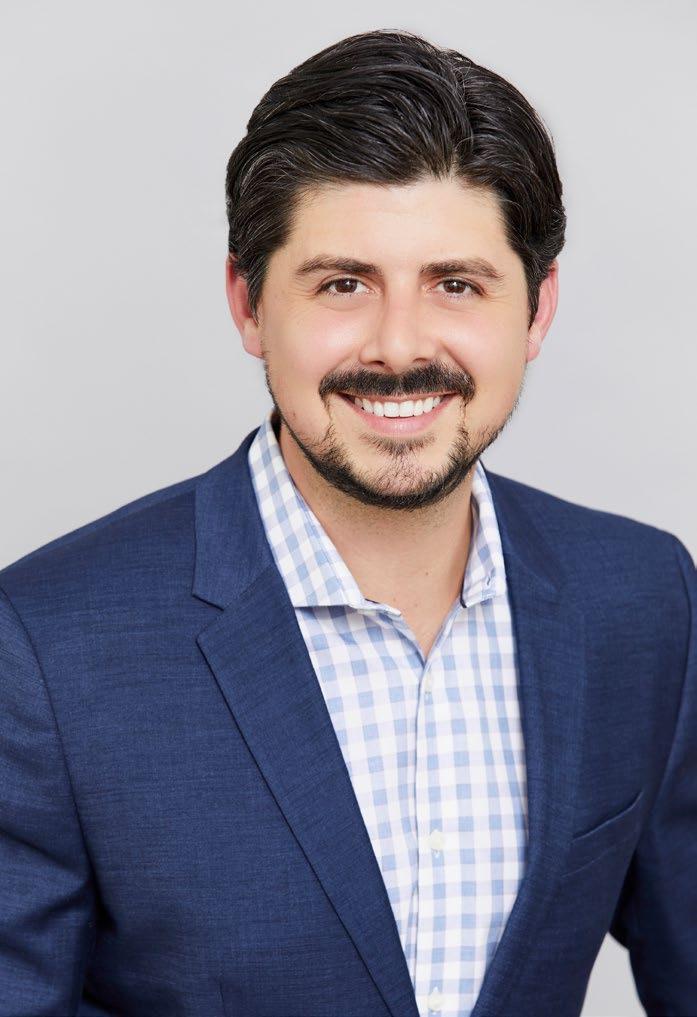
IT’S EXACTLY 1592.3 MILES FROM McAllen, Texas, to the heart of Los Angeles. But for Carlos Salcines, it might as well have been a different planet. Working in entertainment seemed about as likely as becoming a superhero, but the future vice president (VP) of multicultural marketing at Warner Bros. Pictures would still manage to make it big in Hollywood.
Salcines’s success over nearly twenty years in Tinseltown doesn’t seem to have diminished the early fandom that pushed him into the space in the first place. The VP’s excitement for Blue Beetle , a DC Comics superhero film that made its indigo introduction in August 2023, is relayed with the same passion from his early high school memories of watching The Matrix for the first time or the countless hours watching Friends reruns.
“I would get really attached to movies and shows,” Salcines says, laughing. “I think you could call it an obsession, at times.”
As he’s risen through roles, first at 20th Television, Telepictures, then MundoFox, and now Warner Bros. Pictures, Salcines has continued to find new ways to create breakthrough marketing campaigns that speak to diverse audiences. The VP can serve as a cultural consultant who champions inclusivity and representation, all the while advocating for the movies and television shows that he knows can impact lives for the better.
“A multicultural audience approach is baked into everything we do as a marketing department,” the VP says. “It’s very frontand-center with how we approach marketing because diverse audiences are incredibly important to moviegoing and, ultimately, our bottom line. These are audiences that cannot be, and should not be, ignored.”
Especially when it comes to one of Salcines’s favorite genres: horror. “I love scary movies and Hispanic audiences over index significantly on the genre,” he says. “I’ve gotten to work on The Conjuring films, The
Nun, [and] The Curse of la Llorona, which have all had huge success and give us the chance to super serve Latino audiences with bespoke creative and cultural activations that resonate.
“Most recently for Evil Dead Rise , a franchise that has traditionally underperformed with Latino moviegoers, we created a campaign revolving around the possessed mother who goes after her children,” he adds. “It’s a great theme, but for Latino audiences we took it one step further and took something that moms use to comfort their children and made it into something sinister. The rhyme ‘sana sana, colita de rana’ became “sana, sangra, colita de rana, si no mueres hoy, morirás mañana.’”
The campaign was a hit with audiences and Latinos represented 35 percent of the opening weekend box office for the film, which was a huge win.
Salcines has seen the kind of impact one movie can make firsthand. In 2018, Warner Bros. released a romantic comedy shot on a
relatively modest $30 million budget. You might have heard of it. Crazy Rich Asians grossed $238.5 million and brought worldwide attention to the reality that a movie shot and starring a majority Asian and Asian American cast could be a Hollywood hit.
“That movie has literally changed the culture,” Salcines says. “The weekend that movie hit, a bunch of movies starring, written, and directed by the AAPI community were greenlit. That’s how Hollywood works. It was such a fun and inspiring project to be part of.”
Salcines has even gotten the opportunity to revisit his McAllen roots through his team’s marketing efforts. In collaboration with the Shazam! Fury of the Gods release, the Warner Bros. team contacted mariachi bands all over the country to record a version of “El Relampago” or “The Lightning” (Shazam’s patented lightning bolts are one of his devastating offensive attacks).
Mariachi bands from USC, UCLA, the University of El Paso, and even a McAllen
“
”
high school group created and posted their own take on the song.
“I can’t tell you how rewarding it was to see families, school newspapers, local media, and even school administrators posting these videos,” Salcines says. “You get to see the impact of giving kids a chance and how that can morph into a real moment of pride for a community and culture.”
And that impact is felt in the community and in the industry partnerships the executive fosters. “Carlos Salcines consistently exemplifies an exceptional leadership style that allows culturally relevant ideas and points of view to connect seamlessly with multicultural audiences,” says Marcos Barron, president and partner at the MRKT. “It has been a pleasure to work alongside him as he has flourished throughout his career, including his current role at Warner Bros.”
The VP says reaching outside of Hollywood is also incredibly important for helping bring more diverse voices to the industry. They don’t have to be future actors or writers or directors. Whatever the job, there is probably an entertainment industry equivalent that would greatly benefit from diverse representation. Salcines says this is why he’s so proud to work with the Youth Cinema Project, a group under the umbrella of the Latino Film Institute.
“It’s about showing kids that there is a real chance and opportunity to make a life in this world,” Salcines says.
The production and success of HBO’s TV remake of Father of the Bride starring Andy Garcia and Gloria Estefan is a prime example of the kind of product that can come from a united mission. Salcines says while working on the marketing for the project, he understood that everyone from the actors to the crew understood what the success of the show could
mean for the future of Latinos in entertainment. Every success story breeds more Latinoforward projects in a Hollywood pipeline that has historically been risk-adverse to taking chances on “unproven” markets or ideas.
But with the release of Blue Beetle this year, Salcines also hopes that the wider public might be ready to accept a superhero-onsuperhero terms alone. The VP says that while the largely Latino filmmakers and cast is a great moment for the culture, he believes it should stand up on its own simply as a DC movie.
“Blue Beetle is a big superhero movie and Latinidad is in its DNA,” he says. “But for us, it’s about normalizing representation. Of course, there should be Latino superheroes. That should be where we are right now as a culture. I’m so excited to see what this movie can do, and I think it will speak for itself as a great superhero movie for all audiences.”
Of
we are right now as a culture. I’m so excited to see what [Blue Beetle] can do, and I think it will speak for itself as a great superhero movie for all audiences.”
The MRKT is an award-winning, diverse-forward marketing and communications agency that connects entertainment brands with diverse audiences that breathe life into them. Utilizing our cultural knowledge and insight into the latest consumer trends, our team creates emotion-led narratives that connect organically with our community from a firsthand multicultural experience.
mrktco.com
As president and CEO of Amplify Latinx, Eneida Román advocates for policy solutions that will uplift the Latino community and bolster the American economy
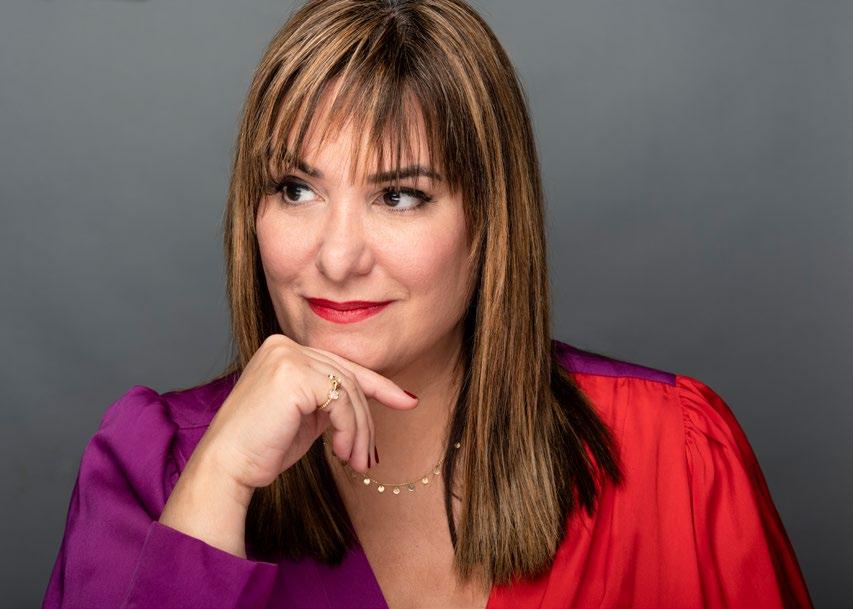
describes her journey to the C-suite of Amplify Latinx as an organic one. When a group of advisors and board members first approached her about filling the nonprofit’s CEO vacancy, however, she had a different mindset.
“I was practicing law and working in public policy, so I wanted to hire somebody else,” says Román, president and CEO of Amplify Latinx. “I wasn’t thinking that I was going to be the next CEO.”
With the offer on the table, Román took the time to weigh her decision before ultimately accepting. After all, she had been with Amplify since the beginning, as cofounder of the Latina Circle Inc., the organization out of which Amplify grew. The nonprofit had always been her passion project, but as of January 2023, she has the opportunity to make it so much more than that.
Born and raised in Puerto Rico, Román moved to Boston to attend law school and
never left. She served as managing partner of Omega Global Advisors and founded her own law firm, Román Law Offices, with a practice centering around alternative dispute resolution. “I have a double graduate degree in organizational psychology and law, so I combine my two careers in everything I do,” she says. “My passion for service and my focus on paying it forward are what really drive me. That’s why I started the Latina Circle: I wanted to positively impact the next generation of leaders.”
Inspired by her work with the Hispanic National Bar Association Latina Commission, Román cofounded the Latina Circle in 2012 to empower Latina professionals across the Greater Boston area. “We would get together quarterly for cafecitos,” she explains. “When we initially launched, our call to action was, ‘You’re a woman on the go; bring a woman on the rise.’ We wanted to make sure that we incorporated that next generation, so we could be lifting as we climbed.”
Five years down the line, the Latina Circle evolved into Amplify Latinx. “We realized that we needed to expand our work beyond Latina leadership,” Román says. “Amplify is not just about leadership; it’s about civic engagement, support for Latino-owned businesses, and economic mobility. It’s about making sure that we are driving home the message of Latino contributions and the importance of Latino prosperity to American prosperity—because a rising tide lifts all boats.”
That narrative will only become more important as the number of Latinos living in the US grows. “It’s a missed opportunity for the American GDP if we do not champion and support Latino leaders and Latino businesses,” she says. “At Amplify, we back up our work with data and numbers so decision-makers understand that Latinos are an asset—not a liability—to the American economy.”
Román is excited to bring her previous career experience to bear as she settles into her leadership role at Amplify. “As a psychologist and an attorney, one of my strongest tools is that I’m a really good listener. I like to hear people out, and I always try to understand other people’s perspectives,” she says. “When people feel valued and respected, they tend to
give more and to have a more positive outlook on their contributions.”
Román leverages her listening skills to foster collaborative relationships across generations. At the same time, she understands from her legal practice the necessity of translating those partnerships into tangible policy outcomes. “Amplify bridges leadership representation and economic mobility with policy solutions,” she says. “If you don’t find policy solutions to these structural inequities that have existed for decades, it’s harder to effect real progress.”
Beyond her knowledge of law, policy, and psychology, Román plans to apply her entrepreneurial expertise as she takes the lead at Amplify. “A nonprofit is a business like any other, so my transferable skills from the private sector serve useful to this new role,” she says. “I want to leverage the strengths I bring to the table and make sure that I work with our cross-sector collaborators to deliver on the
mission of the organization: building economic prosperity and political power for Latinos.”
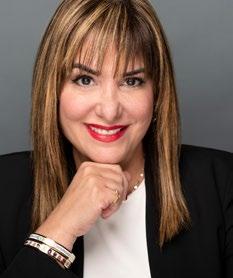
Already, Román has expanded Amplify’s reach from Boston to all of Massachusetts. In the coming years, she hopes to take it one step further. “We thrive on partnerships and programs that develop Latino leaders and build wealth in the community—because Latino progress is going to benefit everybody in the end,” she says. “My dream is to take Amplify national.”
On a personal level, Román strives to cultivate learning and bettering herself in all realms of her life, Amplify included. “I love this work because it’s very much aligned with my beliefs and my values. It almost doesn’t feel like work, even though it is very hard work,” she says. “But at the end of the day, I stay focused because I know that I’m making a difference and that there are so many other allies who wish to be engaged and serve as catalysts for Latino upward mobility.”
“
I want to leverage the strengths I bring to the table and make sure that I work with our crosssector collaborators to deliver on the mission of the organization: building economic prosperity and political power for Latinos.”
Eneida Román President and CEO
Amplify Latinx
What is your secret to success? These featured executives share their strategies that engage both the mind and heart.
72. Veronica Rodriguez, TelevisaUnivision Inc. 78. Juliana Nunes, Johnson & Johnson 84. Lennies Gutierrez, Comcast 90. Kiko Ochoa, Netflix 96. Ilda Andaluz, Varel Energy SolutionsDrawing from her own powerful role model, TelevisaUnivision’s Veronica Rodriguez is the example that the legal profession needs
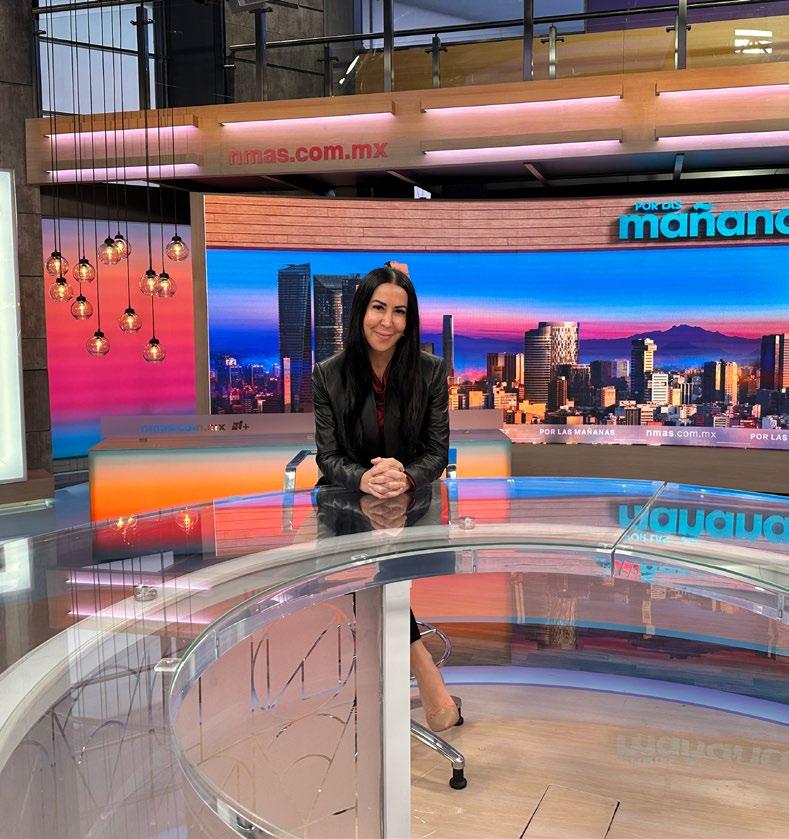
That’s what Veronica Rodriguez’s grandmother would often say to her as she plowed through her homework without taking breaks. When she got home from school, she didn’t change out of her uniform, she didn’t watch television, and she didn’t eat until she got all of the work done. Some things never change.
“My personality is still the same in every aspect of my life,” says the executive vice president, associate general counsel, and global head of corporate mergers and acquisitions at TelevisaUnivision Inc. There, she’s a hardworking and impactful leader, an example to her peers, and an advocate for Latina lawyers everywhere. She joined the media company in 2021, bringing over eighteen years of experience helping global companies adjust to changing market conditions on Wall Street.
But before becoming a shining example to others, Rodriguez didn’t have to look too far to find a role model to emulate. She grew up always wanting to be like her mom, who raised Rodriquez as a single parent while pursuing a PhD and doing it all with a smile
on her face. Both her mom and dad, political refugees from Cuba who experienced the loss of their country, their possessions, and their freedom, always told her, “They can take everything away from you, but they can’t take away your knowledge.” Those words, her mom and dad’s constant support, and her mom’s career success inspired Rodriguez to aim high.
And that she did. She went on to attend Rutgers University, her mom’s alma mater, graduating with high honors and getting her law degree from Hofstra University. She began her career at Dewey and LeBoeuf in 2005, engaging in general business law practice, with an emphasis in mergers and acquisitions, securities regulation, corporate finance, and reporting obligations of public companies.
When Rodriguez first arrived at Dewey and LeBoeuf, she says the biggest challenge she faced was imposter syndrome, feeling like she didn’t belong and wasn’t good enough to be in her role because of where she came from.
“Do you know how many times I was on the phone with really brilliant people, and I knew the answer to issues we discussed, and I didn’t say anything?” she says.
She’s not alone. According to a 2020 KMPG study, 75 percent of more than 700 executive women surveyed reported having personally experienced imposter syndrome in their careers. And women of color are doubly ailed by these feelings due to both their gender and ethnicity.
In a white and male dominated industry, where Rodriguez was not a common name and carried unfair assumptions, she also saw how women of color were not assumed to be competent unless they proved it. Despite feeling like she had to work harder than her counterparts, Rodriguez continued to make great strides at the firm and in her career, leaning on the perseverance and grit her mom imprinted on her.
In 2012, she took her expertise to Paul Hastings, where she was recognized in the Legal 500 Private Practice Powerlist as one
of the leading M&A lawyers in the US with a specialist focus on Mexico in 2018, 2019, 2020, and 2021. She was also recognized as one of the top 100 female lawyers in the US practicing M&A in Latin America and in the Legal 500 Private Practice Powerlist as a Next Generation Partner in 2019 and a Rising Star in 2020. On top of those achievements, she received the Empire State Counsel designation from the New York State Bar Association for an outstanding pro bono contribution.
In 2021, she decided to step into her current role at TelevisaUnivision, in hopes of serving and giving back to her community by advancing the company’s Latino-focused mission. She says the company, which has been a staple in her household since childhood, has given her a chance to grow in her profession.
“You view deals from a different lens in-house,” she says. “I learned to wear two hats, you’re really a businessperson and you’re a lawyer, and to be successful, you have to be both.”
“You view deals from a different lens in-house. I learned to wear two hats, you’re really a businessperson and you’re a lawyer, and to be successful, you have to be both.”
In the past year, she’s helped the company close a multibillion dollar business combination with Grupo Televisa, creating corporate governance practices for the combined company and setting legal and business strategies. “Right now, TelevisaUnivision is in a transformational period,” she says. “We’re trying to grow and expand. To be able to combine two global companies, this role couldn’t have been a better fit.”
Internally, the executive also serves as assistant secretary to the TelevisaUnivision board of directors. When she isn’t focused on being a strong pillar for Latinos at work, she volunteers her services at nonprofits. She also promotes DEI initiatives as cochair of the Latin America Sub-Committee at the Vance Center, board member of the Violence Intervention Program, and as a supporter of Abogadas MX and PODER25. “Innovation is born from ideas, and to get the best ideas you need people in the room with different experiences,” she says. “Without a diverse group of people, you cannot innovate, and if you can’t innovate, you can’t compete with others in the industry.” With these efforts, she hopes to “open doors for others that I had such a difficult time opening myself.”
Right now, TelevisaUnivision is in a transformational period. We’re trying to grow and expand. To be able to combine two global companies, this role couldn’t have been a better fit.”
Hogan Lovells offers extensive experience and insights gained from working in some of the world’s most complex legal environments and markets for corporations, financial institutions, and governments. We help you identify and mitigate risk and make the most of opportunities. Our 2,600-plus lawyers on 6 continents provide practical legal solutions wherever your work takes you.

Congratulations, Veronica!
We are a proud partner of TelevisaUnivision and delighted to join Hispanic Executive in celebrating Veronica’s successes.
We are honored to serve as trusted legal counsel to Veronica and the entire esteemed legal team at TelevisaUnivision.
© Hogan Lovells 2023. All rights reserved. KX-REQ-15




S&C proudly celebrates Veronica Rodriguez and the team at TelevisaUnivision for this well-deserved recognition. We are honored to partner with clients like TelevisaUnivision as we work together to foster a diverse, equitable and inclusive legal community.
Veronica, it is a privilege to work alongside you – we look forward to celebrating more of your accomplishments in the years to come. www.sullcom.com

Juliana Nunes finds her purpose in harnessing tech for the betterment of Johnson & Johnson’s people

JULIANA NUNES LOOKS UP AT A whiteboard over her computer. It’s where the senior vice president of global talent acquisition and global services of North America at Johnson & Johnson (J&J) finds her inspiration and what she considers her purpose.
It reads: “To inspire people to bring their full potential to life and achieve what they didn’t believe was possible.” The executive has been part of one of the most well-known medical devices, pharmaceutical, and consumer packaged goods companies in the world for nearly twenty years. Her journey began in her home country of Brazil and eventually brought her to the East Coast of the US.
There is much to be taken from Nunes’s story: how one can build an international career, how tech is helping a company founded in 1886 stay on the cutting edge of medical advancement, and how much one person can accomplish when they align their career and purpose. Nunes knows her purpose, and she’s helping future leaders find theirs.
Nunes remembers the first time she developed an appreciation for caretakers, nurses, and physicians. Her father was in an accident that required him to stay in the hospital for nearly an entire year.
“Without those people, my dad wouldn’t be here,” Nunes says. “Then, more than ever, I started reflecting on how I could have the same impact on people’s lives. It took me some time to figure it out, but eventually, I was fortunate enough to meet someone from J&J in Brazil that gave me the opportunity to join the organization.”
However, that story is too simple. Nunes admits it took her time to figure out where she belonged within the organization. After two years, she realized that her plans for advancement were not materializing. But she was only
working on projects within Brazil. She decided to seek out experiences that would give her international experience.
“Suddenly I had the opportunity to work on projects that touched Argentina, Mexico, and, eventually, the US,” the SVP says. “Doors just started opening. It’s like I discovered where I belonged.”
Multiple promotions would eventually bring Nunes to the US full-time, and the executive would continue to pivot. There were cultural norms in Latin America that didn’t translate to the US. Offsite meetings meant to encourage bonding and camaraderie are quite common in South and Central America, but not up north.
“When you work internationally, sometimes you need to shift your approach without losing your authenticity,” Nunes says.
“You need to adjust to a new cultural climate without diminishing what makes you who you are.”
One of the hallmarks of Nunes’s leadership is her belief in the power of technology to provide value to her organization and unlock her people’s personal potential. The executive is well versed in the latest and greatest emergent technologies, but tech that will allow J&J’s HR team to create a more personalized, more meaningful experience for the rest of the organization.
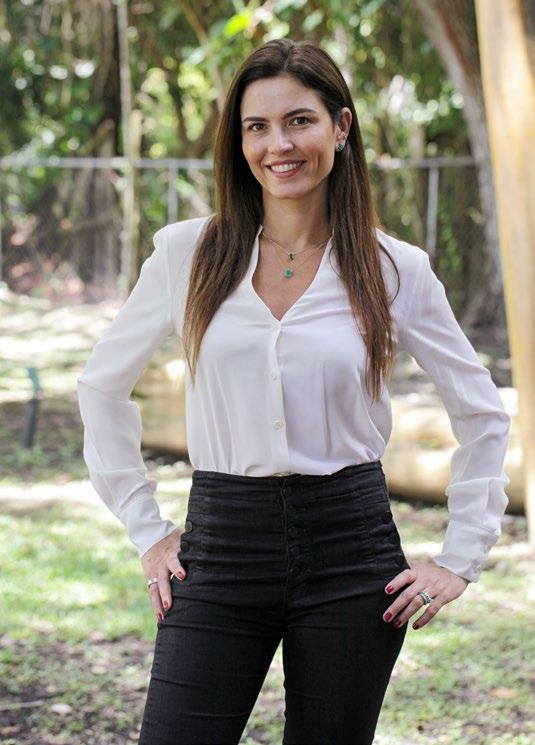
The HR team harnesses artificial intelligence (AI) to infer the skills of the greater organization and to understand the kinds of skills it has; versus the ones it needs. Nunes’s team also uses AI to predict attrition so that
it can be proactive when its talent decides to move on. Delving further, AI is also used to personalize development to understand skills and plan training and mentorship to grow one’s future.
Nunes says focusing on how tech can transform her own organization is just an outgrowth of how J&J is changing the world every day. “We are using AI and
robotics to transform surgeries,” she says. “Our digital marketing is evolving to create a more personalized experience for our patients. We’re creating digital innovations to address one of the biggest issues in the pharmaceutical industry: patient adherence. Tech is playing a huge part of our future, and it’s my job to make sure we have the best talent behind all of this tech.”
To source the best talent possible, J&J is evolving its talent pool in incredible ways. Nunes says the organization is committed to reskilling and upscaling its talent as well as looking for talent in new places. That includes moving beyond traditional credentials and college requirements.
“Juliana has a people-first leadership style,” says Molly Rauzi, managing director and chief information officer at Gagen MacDonald. “As J&J continually increases digital and business acumen throughout the organization, it’s always about the people, the talent at J&J, and the people they serve. She is so authentic that people believe they can do and be more than they ever imagined.”
In Brazil, J&J has established 1000 Devs, a program focused on cultivating software developers for the betterment of Brazil as a whole. J&J has partnered with an incubator to develop talents and skills from traditionally underprivileged communities. The program is currently in its second cohort.
Additionally, J&J’s Reignite program brings experienced professionals back to work after two or more years out of a traditional career, potentially related to military service, caretaking, or other reasons people might leave the workforce.
“I believe we need to start looking in new places for the future of talent,” Nunes says. “J&J has been around for more than a hundred years, and I think the innovation that has occurred in our history gives us permission to push forward and innovate any way we can.”
Nunes is also a passionate mentor, serving several mentees all over the world. While growing the future of J&J’s talent strategy, she’s also actively influencing the next generation of global leaders.
There’s a lot to be gleaned from the SVP’s story, but the lesson that rings most loudly is the importance of finding one’s purpose. It might be local, it might be global, but it will be lasting.
“
The innovation that has occurred in our history gives us permission to push forward and innovate any way we can.”



ALennies Gutierrez came from humble origins, but the MexicanAmerican Comcast executive remains a champion of the digitally underserved, just like her father
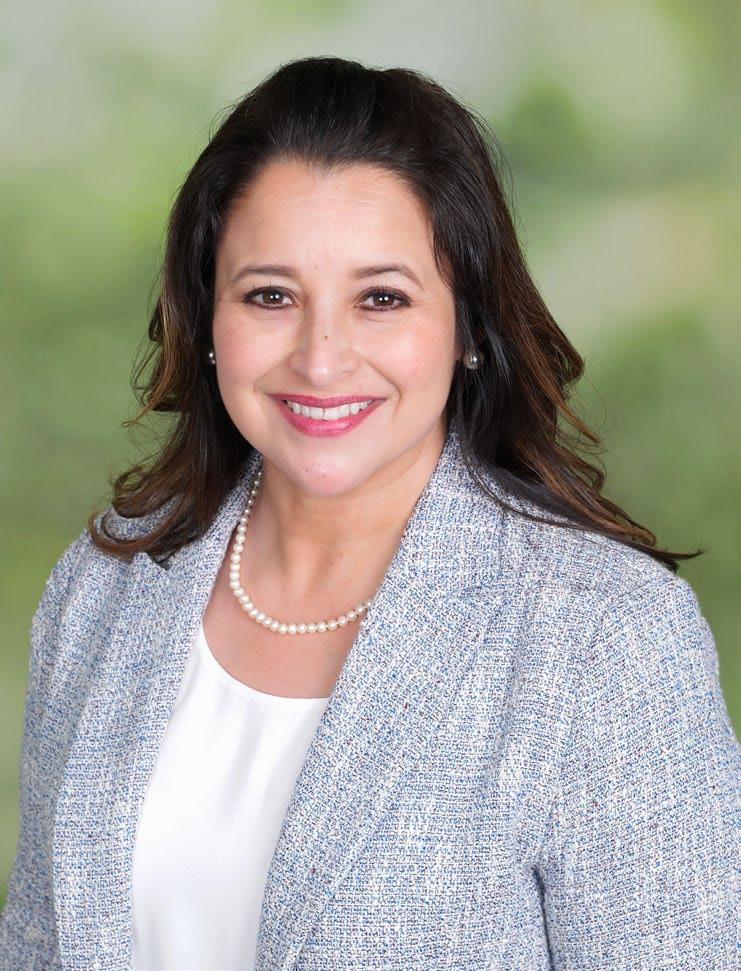
MENTORS USUALLY APPEAR AT THE beginning of an executive’s career, offering expertise and guidance, providing sage advice, and even opening some figurative doors.
But Lennies (pronounced just the way it looks) Gutierrez, director of government affairs for South Bay and Southern Peninsula areas at Comcast, encountered her first mentor when she was just a child. And that was her father, Carlos R. Gutierrez.
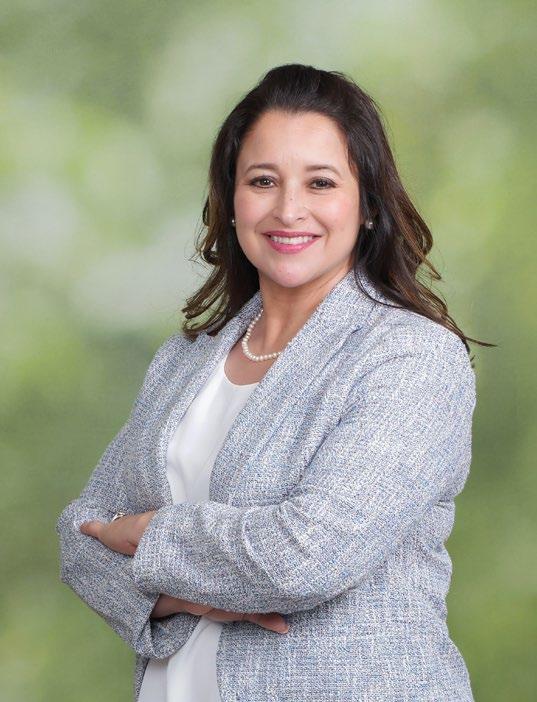
“Both of my parents were immigrants from Mexico,” Gutierrez says, “so Spanish was their first language.” And both of them had been farm workers during their summers in high school.
“Dad always told me that life would never be easy. And he knew that firsthand; he didn’t
Lennies Gutierrez Director of Government Affairs for South Bay and Southern Peninsula Areas Comcastown a pair of shoes until he was seven years old. He also taught me that I should always stand up for who I am, and remember where I came from.”
The senior Gutierrez provided an ideal model for her. He set out to learn English, put himself through school all the way through a JD degree, and he was appointed by then-Governor Jerry Brown to the Solano County Superior Court in June 2016.
“His impact on me was tremendous,” Gutierrez says. “Even though he worked long hours, he was always there for me. He was the only bilingual attorney in our area, and I got a real taste of civic engagement when I walked a precinct with him when he ran for a seat on our local school board; he became the first Latino elected to that board. In addition, he helped with the local ballet folklorico and a banda de guerra.”
Gutierrez continues, “And as an adult, I often invited him to speak to student groups at UC Davis, and at events when I worked in Sacramento. His story of coming to the US
as a Mexican immigrant, and putting himself through law school, was always inspiring. And he made it clear that he and my mother, Telly, were equals along the journey. She was always at his side, never behind him.”
Those early seeds of civic involvement began to flower in the director’s senior year of high school. “I had a sort of political awakening then,” she says, “and realized how important it is to give back to one’s community.”
She earned a bachelor’s degree in political science and Chicano/a studies at the University of California, Davis in 1999. In her senior year of college, she spent some time in Washington, DC, and realized that she could have a great impact at her own state capital in Sacramento, California; in her last position, she served as legislative director of the California State Assembly.
After a decade or so, she opted for law school herself, earning her JD degree from Universty of North Carolina Lorenzo Patiño School of Law, attending classes three to four nights each week, in addition to holding
down her regular job. “When my dad became an attorney, I saw how many people he was able to help, so I decided to follow his path. I really liked the intersection of politics and policy,” the Comcast director says.
A chance conversation with a Comcast employee during a community event steered Gutierrez toward the private sector. “I learned of an opening for director of government affairs at the company. I had seen a high level of dedicated engagement between Comcast and the various caucuses in Sacramento, and so I went after the job,” she says. “First, I had to change my mindset about working in the private sector. Then I had to compete against many other applicants and go through a tough interview process.”
But her tenacity paid off, and she joined the company in 2010.
Typically, Gutierrez functions as “the face of Comcast.” But instead of selling products or promoting programs, she builds relationships between the company and the various communities it serves, such as with the mayors of
“
I grew up in a humble environment and I’ve worked hard to get to where I am. And whether I’m working with a mayor or a business executive, I want to be genuine.”
cities and towns, small businesses, and housing authorities, as well as with local nonprofits.
“I’m not the sort of person who shows up for a presentation and then disappears,” she says. “I’m available for those small businesses and student groups, and I’ll always make sure they get the answers they need.”
Several Comcast programs aimed at closing the digital divide are in her regional wheelhouse. They include Internet Essentials by Xfinity, the digital equity program that provides affordable internet service to the nonconnected, and Comcast Rise, which offers consulting, media, creative production, technology makeover, and monetary grants to people of color and women-owned businesses. “Since the inception of the Internet Essentials program, Comcast has connected over ten million people nationwide,” she says.
The company is also one of the internet service providers that participate in the Affordable Connectivity Program, in which qualified people on public assistance can apply for federal money to help pay their internet service. Gutierrez is instrumental in getting people in her region to sign up.
Gutierrez adds that in response to the COVID-19 pandemic, Comcast created free, Wi-Fi-connected “lift zones” in community centers nationwide. Lift zones provide free high-speed internet access at community centers and complement the Internet Essentials program for in-home broadband connectivity. The primary application for lift zones was to enable students to participate in distance learning and now has evolved to provide free internet in the community.
I’m available for those small businesses and student groups, and I’ll always make sure they get the answers they need.”
Gutierrez has also been involved with various employee resource groups (ERGs) within Comcast. She recently coled the CA Unidos ERG and sits on the West Division Diversity, Equity, & Inclusion Council. “Each one has a particular focus such as career development, women’s history, or indigenous peoples’ history,” she says. “It’s a company-wide effort, but the groups are organized at the local level, to better reflect the needs and interests of those regions.”
Gutierrez continues to serve on boards for nonprofit organizations including the Latino Leadership Alliance, Hispanas Organized for Political Equality and the Chamber San Mateo County. Gutierrez was also the first
Latina invited to serve on the board of the African American Community Services Agency.
For Gutierrez, representation matters. “I’ve become a sort of role model for Latinas and other people, and that gives me the strength to keep moving forward. It’s important that even kids understand they can someday be part of a Fortune 50 company and still be their authentic selves,” she says.

Today, Gutierrez still adheres to her father’s motto: “Be who you are.”
“I grew up in a humble environment,” she says, “and I’ve worked hard to get to where I am. And whether I’m working with a mayor or a business executive, I want to be genuine.”
Diversity, Equity and Inclusion are the basis for our innovation and propel our business.
Kiko Ochoa joined Netflix because he was drawn to its groundbreaking approach to talent management. He now works tirelessly to further a culture of transparency, trust, and respect.
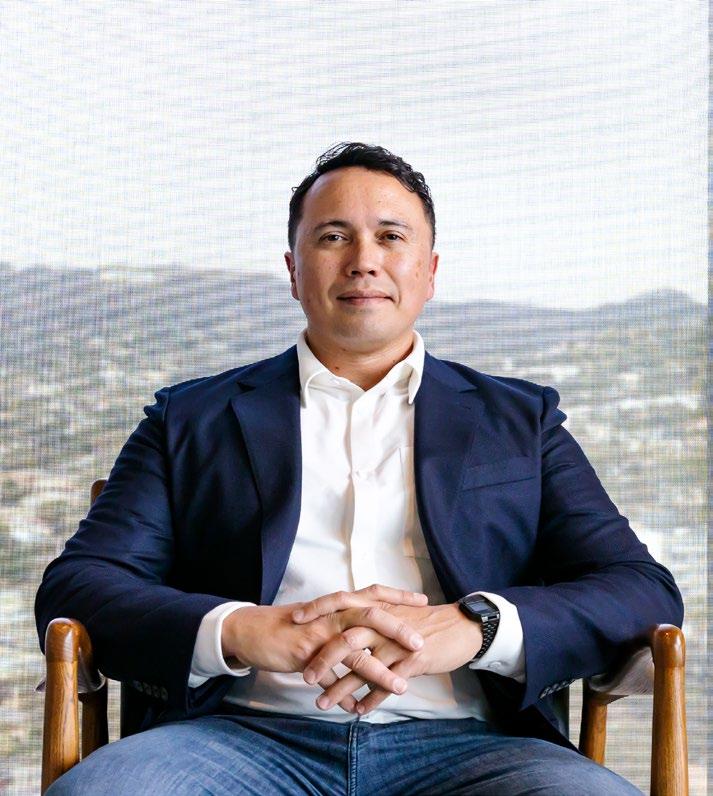
KIKO OCHOA WAS ON HIS THIRD OR fourth successive video conference with a colleague who was navigating a sticky employment issue. When Ochoa logged on and the colleague saw him once again, he remarked, “Kiko, here you are again, just turning up like a bad penny.”
“It was meant as a joke, but the idea was that it was yet another tough or complicated situation, and I was going to be there to help him navigate through it,” Ochoa recalls with glee. “I knew he was happy to see me there, so I now wear being the bad penny as a badge of honor.”
Ochoa has been in-house at Netflix since 2019, serving as director and senior counsel of employment law for the biggest name in streaming services. The company had been on Ochoa’s radar for years as a dream employer before he was finally hired there.
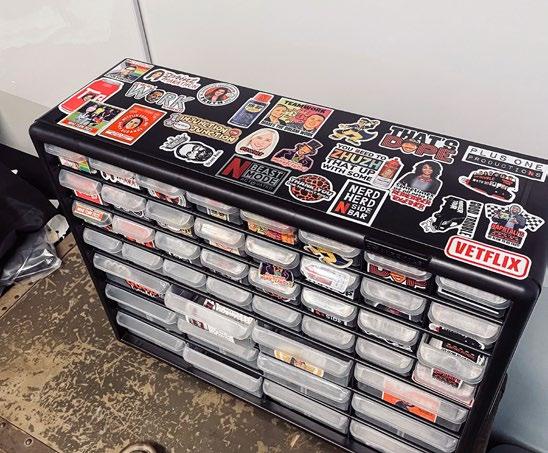
In 2014, the Harvard Business Review published “How Netflix Reinvented HR,” a piece explaining a PowerPoint deck about the company’s talent management strategies that had gone viral. It included ideas like valuing people over policies, offering employees unlimited time off, and instituting 360-degree reviews instead of formal performance reviews.
“I was just blown away by the idea that you could set up a different paradigm at work,” Ochoa says. “You could clearly communicate expectations to employees to both empower them and to seek alignment on doing what’s in the best interest of the company.”
In some ways, he has operated in a different paradigm for the majority of his life. When he was just thirty-two years old, Ochoa’s father was appointed the youngest judge in California at the time—and the first Hispanic bench officer to serve in
Santa Barbara, California in a century. His mother was the highest-elected government official of Filipino descent in the continental United States and also mounted her own candidacy for Congress.
“A lot of our time was spent in community centers, whether for Latinos or for Filipinos,” Ochoa says. As a biracial American, Ochoa found himself torn between his two identities at times.
“There were times when I wasn’t Mexican enough to hang out with the Mexican kids and not Filipino enough to hang out with the Filipino kids,” the attorney remembers. “It could be hard, but I also think it taught me this ability to sort of flex, and move, and operate amongst different spaces. I just had to learn to be comfortable in that gray area.”
A couple of decades later, Ochoa was a successful attorney and a married man with
nearly a decade of experience as a private practice employment lawyer. He met retired four-star general Antonio “Tony” Taguba, best known for authoring the internal report on the abuse of detainees held at Abu Ghraib prison.
At one time, Ochoa had considered military service, but adds it was probably too late by that point. Taguba disagreed. “He asked if I had considered joining the reserves,” Ochoa says. “And the more I looked into it, the more I knew it’s what I needed to do.”
At thirty-one, Ochoa commissioned, spending six months of 2011 attending Officer Candidate School and the Judge Advocate Staff Officer Course at Maxwell Air Force Base in Montgomery, Alabama. The lawyer has completed nearly thirteen years as a reservist judge advocate general officer, spending about six weeks a year on active duty.
During the COVID-19 pandemic, you could throw a hunk of dough and hit a dozen people who took up breadmaking as a hobby. Kiko Ochoa focused on something a little more lasting and with fewer carbs. His daughter introduced him to a couple of different apps where he could make and design stickers.
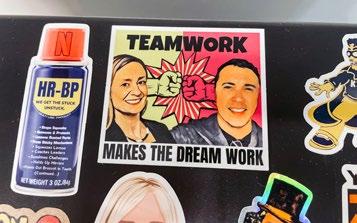
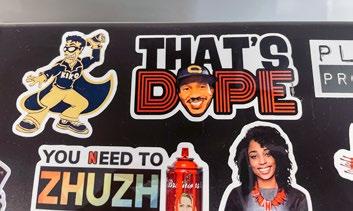
“It was a way for me to stay connected with my colleagues during the lockdown,” Ochoa explains. He now has a repurposed sticker cabinet adorned by and filled with his creations, which might include a nickname for a colleague, a motivational saying, or an inside joke. Apparently, he’s had a graphic designer lying dormant inside him all along.
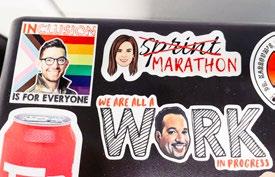
The words Ochoa uses when talking about Netflix are certainly reminiscent of principles essential in the military: transparency, trust, and respect. It’s part of a cycle that can create positive perpetual motion, even in difficult times.
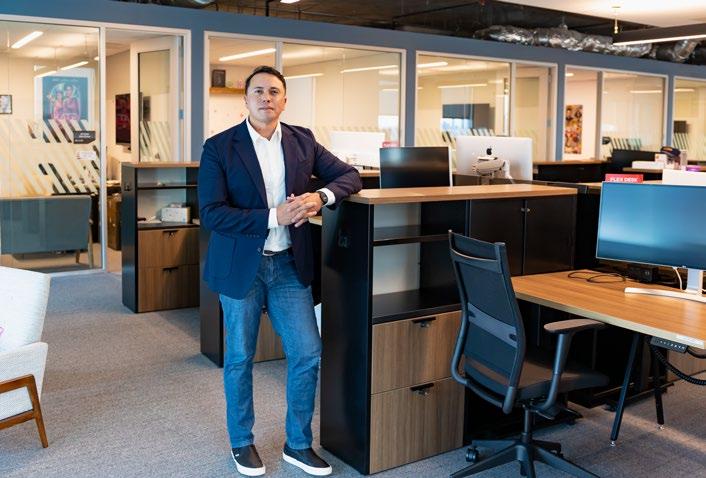
“I love it here because we hire people that are trusted to do their very best,” he says. “If you are trusted, you can
move quickly. That might lead to some mistakes from time to time, but it’s the kind of environment where mistakes lead to honest and constructive conversations and feedback. That feedback then creates more trust.”
It’s a different kind of paradigm. And if there’s one thing Ochoa knows, it’s navigating a new paradigm.
“I love it here because we hire people that are trusted to do their very best. If you are trusted, you can move quickly.”
Gibson, Dunn & Crutcher LLP: “Kiko brings out the best in everyone with whom he works. He is smart and incisive, but at the same time conveys appreciation and confidence in his team. He is a real leader and inspires trust from his internal clients. We consider ourselves lucky to be able to work with him.”—Scott Edelman, Partner
Gibson Dunn is pleased to recognize Kiko Ochoa for his outstanding service to Netflix.
We join Hispanic Executive in congratulating Kiko Ochoa for his many accomplishments at Netflix. It has been an honor to partner with Kiko and the rest of Netflix’s talented legal team.

Abu Dhabi
Beijing
Brussels
Century City
Dallas
Denver
Dubai
Frankfurt
Hong Kong
Houston
London
Los Angeles
Munich
New York
Orange County
Palo Alto
Paris
San Francisco
Singapore
Washington, D.C.
Americas | Asia | Europe | Middle East mayerbrown.com







It is our privilege to work with Kiko Ochoa and the team at Netflix.
At Varel Energy Solutions, Ilda Andaluz takes pride in being more than her title. She’s an advocate for women in the workforce and her team’s development.
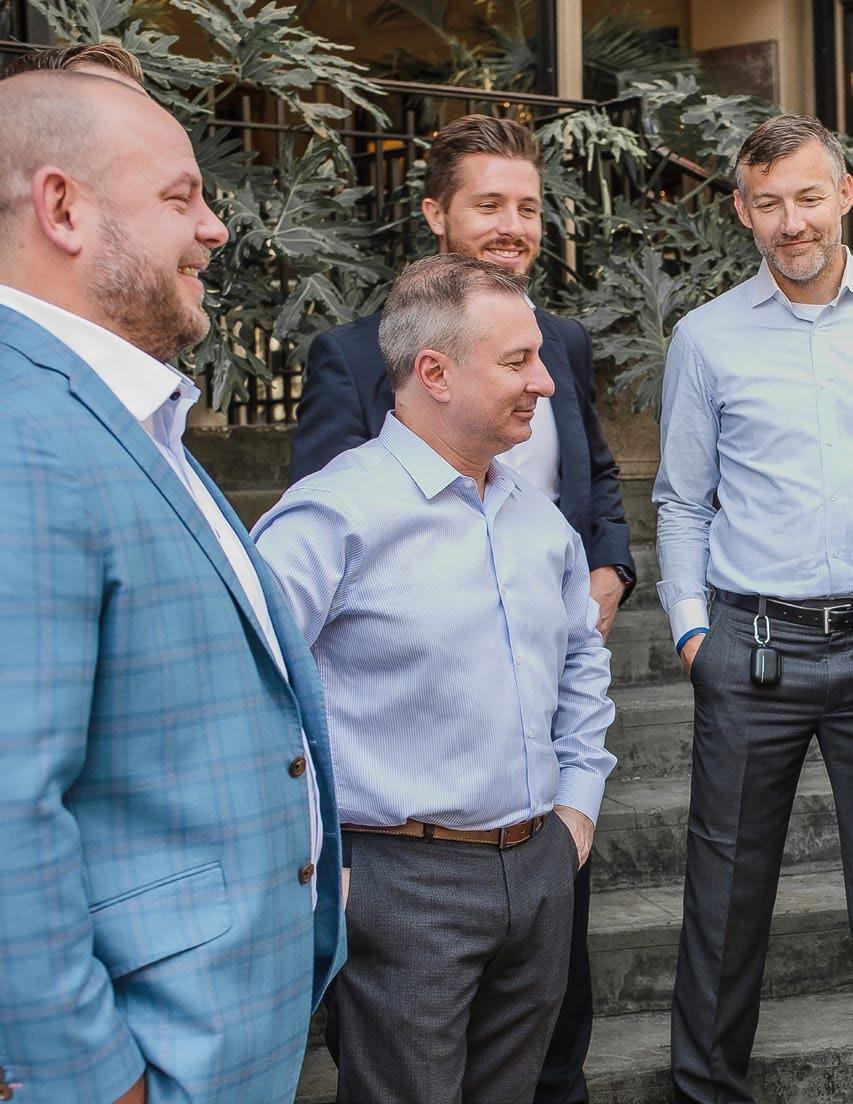
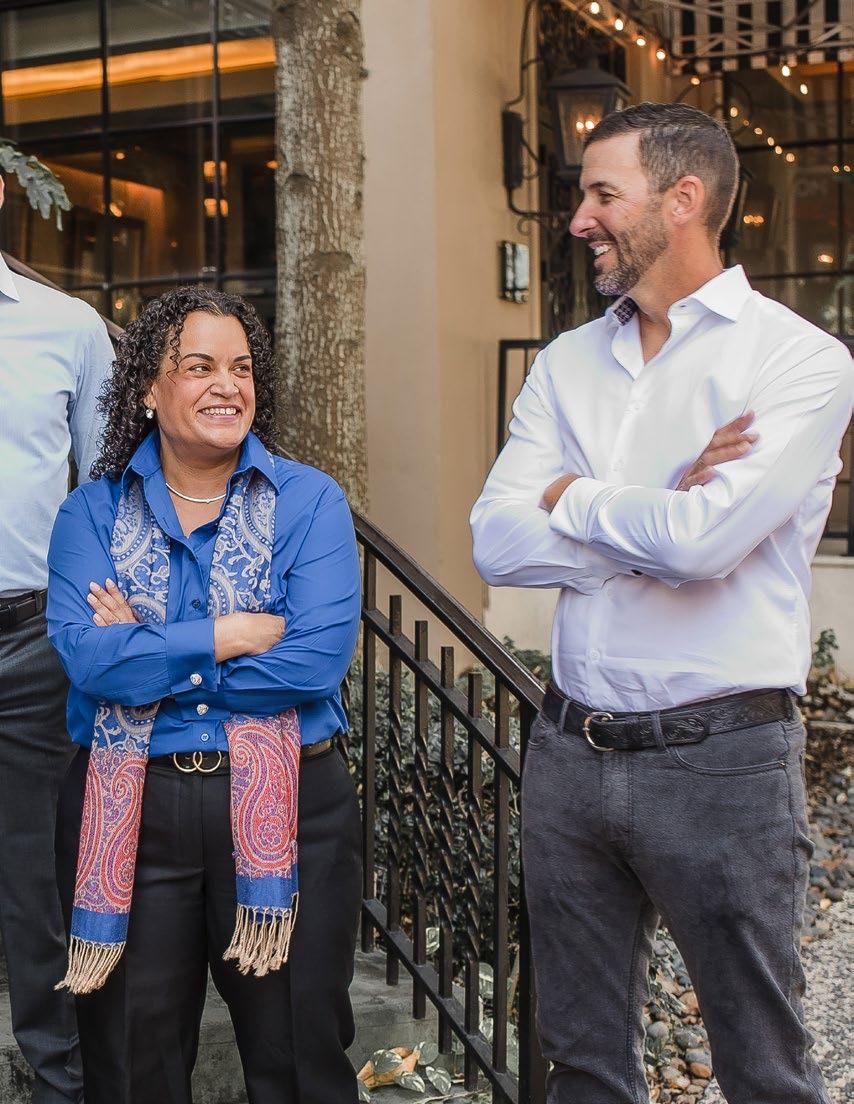
ILDA ANDALUZ IS THE EXECUTIVE VICE president of HR at Varel Energy Solutions, but you’ll never hear her introduce herself that way. With over twenty years of experience in the private and public sectors across several industries, and a master of jurisprudence in employment relations law from Tulane University School of Law, Andaluz has come to believe that titles aren’t what matters. What matters is one’s ability to grow other people.
“Some people sit on a title like a throne, but that’s not me,” she says. “I always introduce myself first as Ilda, not the head of a department. Because my role is to get to know people and to understand how I can support and grow them. In the end, titles come and go. In one company you could be called an executive and in another it could be a director. It doesn’t really matter.”
Andaluz is the only woman in Varel’s C-suite in a major role spanning HR,
recruitment, leadership development, and DEI with direct reports across the globe. Nevertheless, she’s an approachable servant leader of an all-woman team who never forgets her roots. She’s the Montreal-born child of an Ecuadorian father who immigrated to Canada in the middle of a snowstorm while wearing shorts and flip flops; and a Salvadorian mother who also came from humble beginnings, immigrating to Canada from her native country in search of opportunity. Their resilience, courage, and ability to connect with others continues to inspire Andaluz and her approach to leadership.
When you ask her about her greatest career accomplishments, Andaluz doesn’t tout being a polyglot (in addition to English, she speaks Spanish, French, and Italian); the many strategies and programs she’s helped to implement; or her expertise in areas like project and change
management, business process improvements, and employee relations. Instead, she has taken pride in helping to increase the skills of her employees so that someone else can step into her role if and when needed.
“I’ve never left a role where the team I was leaving behind said, ‘Now what?’” Andaluz says. “I was always growing them. And in my field, a majority of [the] time my teams were comprised of women. So, my greatest accomplishment has been uplifting them [so they could] take on those next roles.”
That speaks to how she sees her role as a leader at Varel Energy Solutions, one of the world’s largest independent manufacturers and suppliers of downhole drilling and completions products to the energy sector. There, she recognizes the importance of evaluating and elevating her employee’s skills and abilities, and constantly implementing ways to develop them.
“My role as a leader is not to get to the next role,” she says. “I need to inspire people to be better at their roles. Companies fail not because they don’t know what they’re doing but because of poor leadership. It’s important not to forget our responsibility to give our people what they need, and it doesn’t just translate in the workplace, but it goes beyond that and transforms their lives.”
Part of her drive to do that stems from a challenge and disappointment she faced earlier in her career, at a time when she didn’t feel seen or supported by senior leadership. She had set her sights on a leadership role at a company she worked at for six years, but then an executive told her that she wasn’t “leadership material.”
“He said ‘we don’t think you have leadership potential; you still have some things to learn,’” she says. “I looked at him and asked for feedback, and he was not able to give anything specific.”
“Some people sit on a title like a throne, but that’s not me.”
Andaluz walked away from that conversation feeling disappointed and deflated. Upon reflection, and after conversations with her mentor, she realized that she had leadership potential and so much more.
“I looked at what I could control and started writing down all the things I wanted for myself and all the roles that I could apply for,” she says. “Then I asked myself, ‘What are you afraid of? Why are you waiting for someone to give you the next role? Take the risk and apply for the next step.’”
She decided to bet on herself. She applied for roles outside the organization, quit her job thereafter, and ended up achieving the goals she had mapped out for herself. That experience taught her the value of self-advocacy. It also cemented her passion for advocating for women in the workforce.
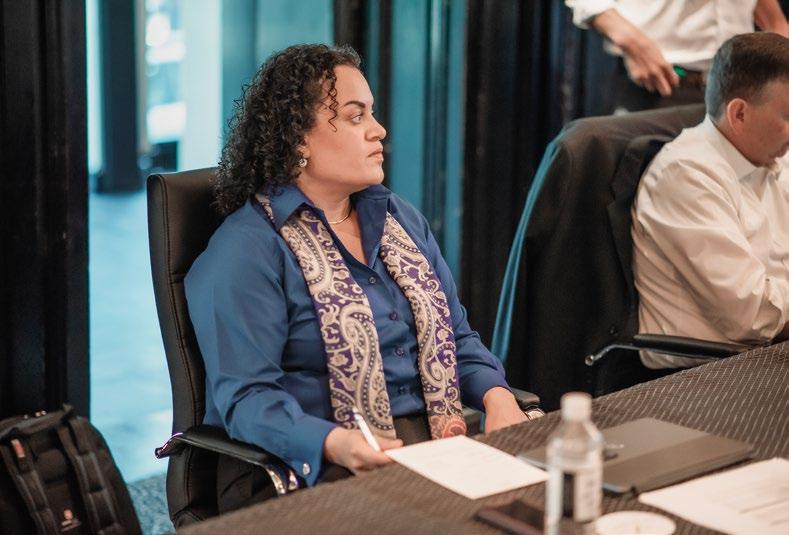
“Being of Hispanic descent means [that] growing up, you are told to be very polite, to listen to your elders, to wait your turn to speak, and to be respectful,” Andaluz says. “When you’re in the corporate world, sometimes they underestimate you because you do those things. I’ve had people tell me ‘You’re too polite,’ ‘too nice,’ or ‘you’re never going to be an executive.’”
She continues, “I’m a champion for women because those things will stick with you unless someone is supporting you and stepping in to say, ‘Hey, it’s OK to speak up, it’s OK to go for that other role, you do have what it takes.’ If we don’t support ourselves as women, who will?”
Today, Andaluz is empowering women in the workforce through diversity, equity, and inclusion strategies with the goal of increasing the number of women in the
male-dominated oil and gas industry. To that end, she’s helped the company hone its leadership training efforts, speak at schools and universities, facilitate diversity and inclusion awareness sessions, created a new family leave policy to attract diverse talent, and celebrate International Women’s Day in all of Varel’s major locations (US, Mexico, Aberdeen, Dubai, Saudi Arabia, Malaysia, and India).
So far, these efforts have helped Andaluz hire the first woman to serve in a HR manger role in Saudi Arabia, and a learning and development HR manager in India. It’s also helped increase the presence of women in
the company in Mexico, where the number of women in their local plant has doubled in one year. Additionally, she’s also started a women’s network to give women an outlet for talking about issues in the workplace.
She encourages aspiring leaders, including women, to surround themselves with people who recognize their worth and to bet on themselves like she did.
“Get an inventory of all the great things you’re capable of doing, take risks, work on your confidence, get a mentor,” she says. “Never stop learning [and] develop more on those skill sets for yourself if that’s truly what you want to do.”
FranklinCovey is proud to be a strategic partner for Ilda Andaluz to build a high-performing culture at Varel Energy. Our work includes leadership and unconscious bias training through FranklinCovey’s All Access Pass®. This subscription provides access to world-class content including assessments, courses, and resources available live in-person, live-online, and on-demand.growing up, you are told to be very polite, to listen to your elders, to wait your turn to speak, and to be respectful. When you’re in the corporate world, sometimes they underestimate you because you do those things. I’ve had people tell me
‘You’re too polite,’ ‘too nice,’ or ‘you’re never going to be an executive.’”
CONVERSATIONS AT THE TOP:
Portraits By Cass Davis Digital Illustrations By Arturo MagallanesCEO FEDERICO MUYSHONDT IS FIGHTING FOR BODYARMOR TO BECOME
THE NUMBER ONE SPORTS DRINK IN AMERICA WITH A LITTLE GRIT
AND THE HELP OF ELITE ATHLETES AND CELEBRITY AMBASSADORS
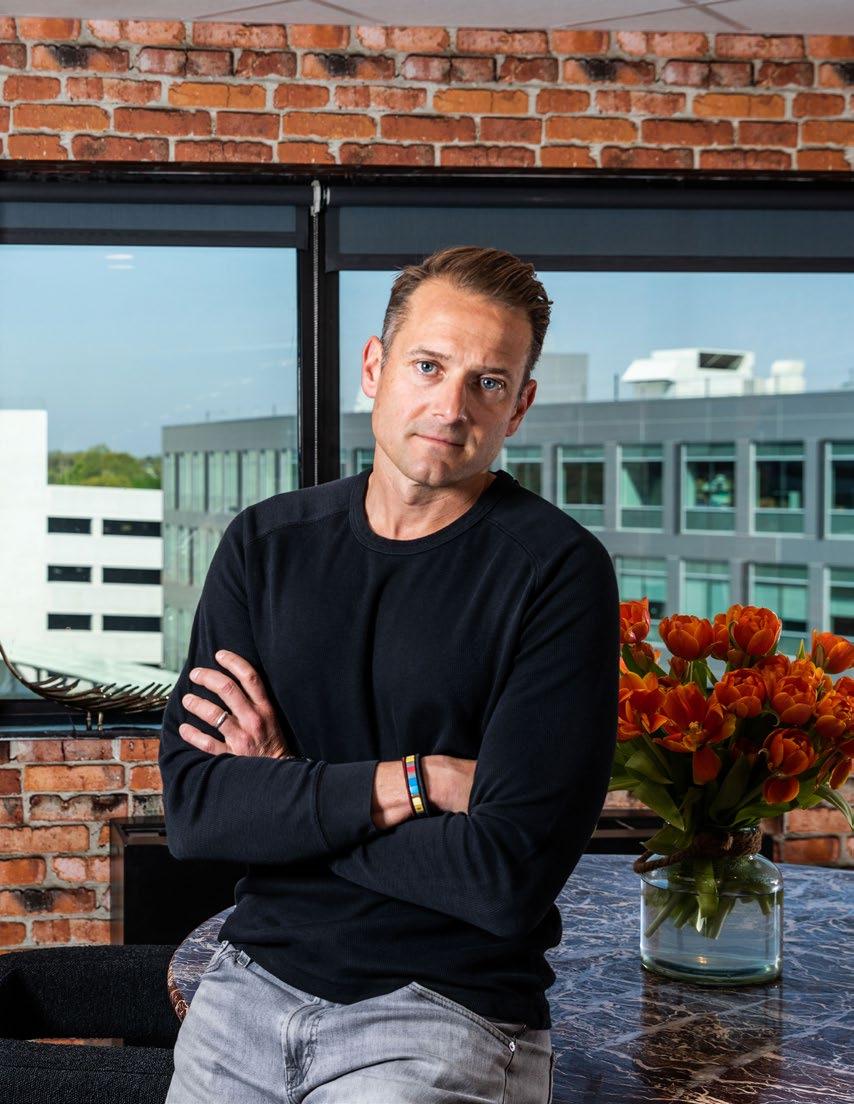
THE BLACK MAMBA ISN’T THE LARGEST snake in the world, or even the most poisonous, but it is 100 percent fatal. The snake’s speed, its repeated inclination to attack (most snakes bite and flee), its venom’s toxicity, and its ability to lift up nearly half its body off the ground to strike make it the snake you’d least like to run into, say, the office of Federico Muyshondt, CEO of BODYARMOR Sports Nutrition.
Fortunately, there’s no snake in sight during Hispanic Executive ’s interview with Muyshondt, but the spirit remains. A collage of Kobe Bryant, the legendary Los Angeles Laker and possibly the greatest NBA athlete of all time, hangs behind him. Bryant took the snake’s name as his alter ego, to embody the fierce predator who could be counted on to strike at the pivotal moment. The basketball legend was an early investor in BODYARMOR, and his “Mamba Mentality” lives on at the company with the intent to take down the proverbial king cobra of the sports drink world: Gatorade.
“BODYARMOR is the biggest brand in consumer packaged goods [CPG] that no one knows about,” Muyshondt says. “It’s up to my team to tell the story. We have zero artificial sweeteners, flavors, or dyes. We offer superior hydration, we are better for you, and we’re better tasting. Taking on Gatorade may seem like the Red Sox trying to take on the Yankees years ago, but we will win.”
While Gatorade still controls roughly 68 percent of the sports drink market share, a seismic number in any market, BODYARMOR brought a friend to the fight. In 2021, the Coca-Cola Company acquired full ownership of the company, pairing a one-two punch with its Powerade brand, which Muyshondt sees as a more direct competitor to Gatorade.
“Powerade is more for that moment of sweat,” he says. “These two brands mean very different things for very different people. BODYARMOR transcends sports. We’re part of health, wellness, and a more holistic health experience.”
The distinction makes sense. While Powerade boasts twice as many electrolytes in its formula as typical sports drinks, it also includes vitamins C and B12, which most competitors do not. Plus, BODYARMOR is preservative-, gluten-, and caffeine-free. It contains half the sugar and calories of typical sports drinks (its LYTE version even less so), and no artificial coloring, or GMO ingredients.
At present, BODYARMOR has claimed 14.5 percent of the sports drink market share while its sister brand Powerade owns 14 percent. “It’s not just mano a mano,” he says. “We’re taking on Goliath with a little bit of backup [Powerade]. It will be a battle, but I wouldn’t have come here if I didn’t think it could be done.”
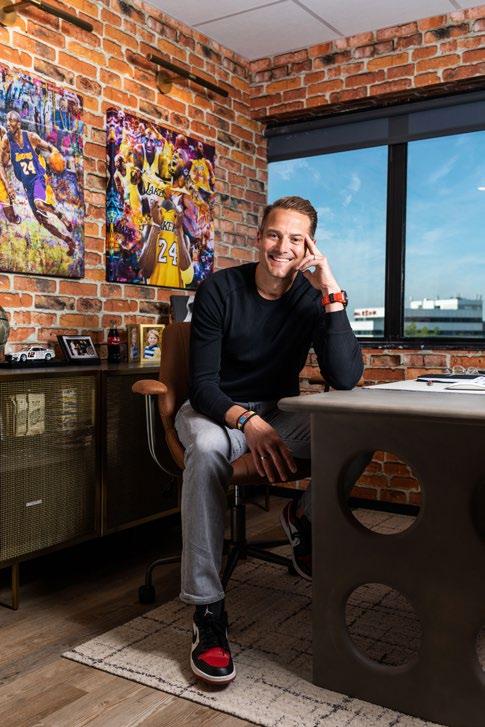
Several very high-profile names agree. At press time, a new campaign released with a spot features Jennifer Lopez hitting her alarm at 4:45 a.m. and downing a bottle of BODYARMOR LYTE prior to a long beach run across, the sun beginning its ascent over the horizon.

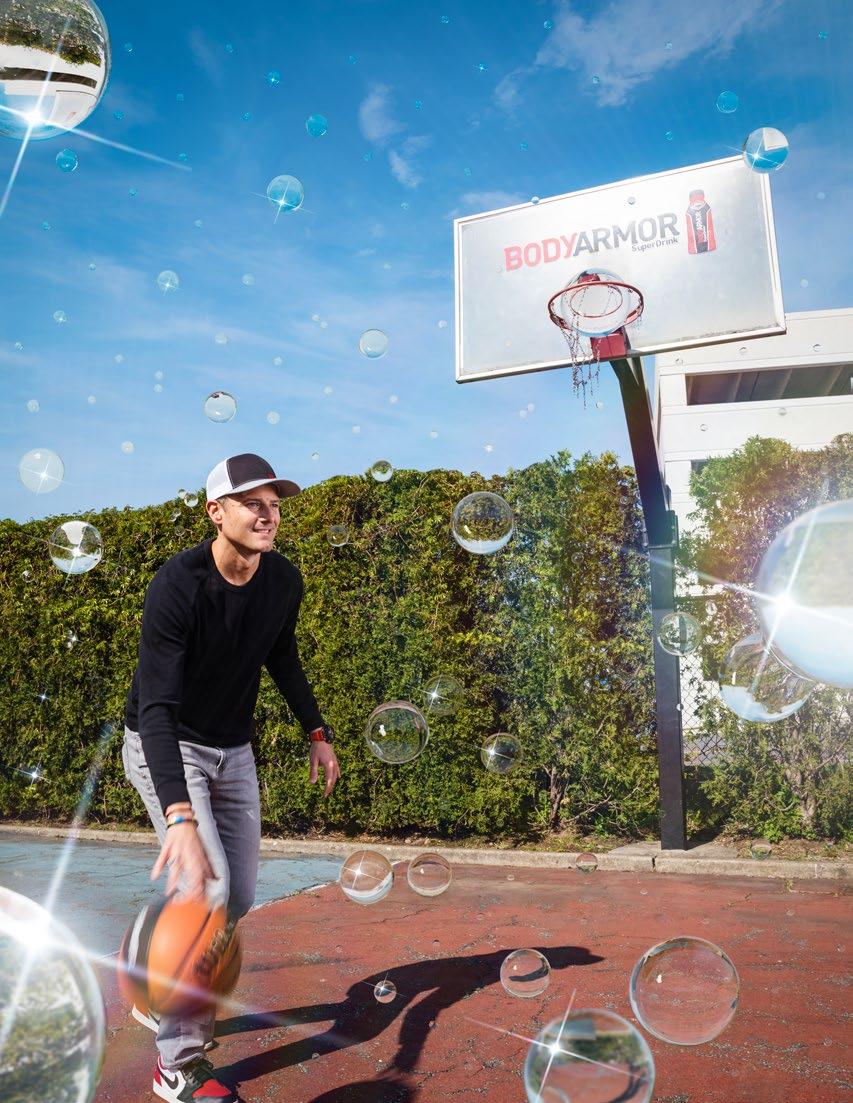
While the company has previously featured a diverse cast of elite athletes like Naomi Osaka, Baker Mayfield, and James Harden, Lopez is simply on another level.
Muyshondt says the new partnership makes perfect sense, because BODYARMOR was already part of the star’s early morning routine.
“The campaign is all about what people don’t see when it comes to someone like Jennifer Lopez,” Muyshondt says. “She’s not on a stage with backup dancers and smoke machines. She’s waking up in the middle of the night to get ready for a hardcore run. She’s fifty-three years old, and she works her butt off. We’re part of that, and we wanted to celebrate it.”
The size and magnitude of the new campaign is kicking BODYARMOR’s business into another gear. But despite the name recognition of a worldwide star, Muyshondt
says his company will continue to operate as the scrappy underdog, innovating as quickly as possible and continuing to defy the odds.
Whether it’s Jennifer Lopez or BODYARMOR as a whole, Muyshondt knows a thing or two about defying the odds. Muyshondt was born in the middle of the Salvadorian Civil War, a period of unrest in El Salvador that lasted from 1979 to 1992. The United Nations reports that more than seventy-five thousand people lost their lives, with an additional eight thousand considered “disappeared.” Murder, kidnapping, and torture became a part of life for residents of the population that has just recently exceeded six million people. Muyshondt was not immune from the violence or the hardship.
“During third and fourth grade, I slept under my bed every night. Not on top of it, under it,” the CEO says.

Years later, Muyshondt began to understand that the way he grew up was not typical. Whether it was only being allowed to shower or use water at certain times of the day, or the ten hours of electricity his family was allotted, the young Muyshondt just thought it was how one lived.
“I have so much love for where I come from, but it’s also a place where the one percent is the one percent, and the ninety-nine percent is the ninety-nine. There is no middle class,” he admits. “The more and more I was
exposed to the United States, the more I began to believe in this country and what the American dream could mean for me.”
The Latino market only continues to grow. As the marketplace continues to diversify, Muyshondt says being a multicultural leader becomes increasingly important to succeed on a global level. It’s also important to find ways to lure that diverse demographic into the CPG industry.
Tech may be sexier, the CEO says, but Hispanics’ knowledge of their culture and their shopping habits, as well as their acumen working cross-culturally, are all standout attributes that would make them extremely attractive to his industry. But it’s not just Hispanics, Muyshondt urges. It’s anyone whose life has existed outside of the word “traditional.”
“To be multicultural or multilingual doesn’t mean you have to be Hispanic,” Muyshondt says. “But having experienced different things in different parts of the world is going to be a huge benefit for people entering the CPG environment.”
That said, the CEO takes time and effort to help encourage more Latinos to enter the space. He knows what it means to fall in love with an industry far before he knew it could be his life’s work.
Muyshondt grew up watching The Price Is Right with his grandmother, and when he had the chance to visit the US, he treated local grocery stores like Disney World. The wide aisles, the bright lighting, and the massive refrigeration units were as exciting to him as a roller coaster to any other child. The future CEO was enamored with the consumer experience, so it’s no wonder why he’s found so much success in the CPG field.
That success includes stints at Frito-Lay, Danone, and Chobani, the last of which seems to have left the most lasting impact on Muyshondt’s

Federico Muyshondt may be a natural leader for BODYARMOR, but he doesn’t take his leadership skills or well-being lightly. The CEO says he pays a great deal of attention to the “inputs” in his life.
leadership. The CEO greatly appreciated the leadership demonstrated by Chobani founder and CEO Hamdi Ulukaya and former President Peter Mcguinness, whose visions extend far beyond the boardroom.
“[Ulukaya] is an entrepreneur, and he has a beautiful vision,” Muyshondt says. “The work that he does to make his people’s lives better, and the lives of immigrants and refugees is just incredible. He doesn’t see capitalism as a bad force in the world. He sees it as a way to accomplish good for others. Hamdi and Peter opened my eyes to a completely different way of looking at business.”
There was another guiding force that accounts for the companies where Muyshondt has spent time. The CEO is
a firm believer that you are what you eat, and he wanted to devote his energy to businesses that have their customers’ health in mind. Maintaining that mindset means that he wants to use his role for good and make people’s lives healthier and more worthwhile.
BODYARMOR came at the perfect moment in the CEO’s journey to help more people find more health-conscious ways to live. “In many ways, I see BODYARMOR as the Chobani of hydration,” Muyshondt says. “I will always work for a company that stands for superior food [and] superior credentials, and using that platform to make lives better.”
Heading up the leadership of the BODYARMOR brand is Muyshondt’s
“Great coaches like Bill Belichick or Nick Saban talk a lot about not focusing on the output, but instead focusing on the process, the inputs,” the CEO says. “I’m obsessed with inputs. I know for a fact that you can get just a little bit better every day—make one better decision or work out just a little bit harder in the gym—the outputs will follow.”
The CEO says he refuses to surround himself with those who view the world through a negative lens. That kind of energy drains him, and he knows how bad attitudes can spread quickly. By building on his own life and his own teams at BODYARMOR, Muyshondt is surrounded by people who love their lives and love what they do.
Building such a life may take some time, but like Muyshondt says, just a little bit of work every day can add up to something big.
opportunity to follow in the footsteps of people he greatly admires, from Kobe Bryant to company founder Mike Repole. Repole is a legend in his industry, having also created Vitaminwater. And when it comes to Bryant, the CEO says he sees the spirit of the Black Mamba in the eagerness and passion of his people every single day.
BODYARMOR’s home base in Queens, New York, is the perfect location for a company wanting to keep its ear to the ground. Muyshondt calls BODYARMOR “Queens Meets Kobe,” a tribute to the ingenuity, battling disposition, and willingness to get the hard job done.
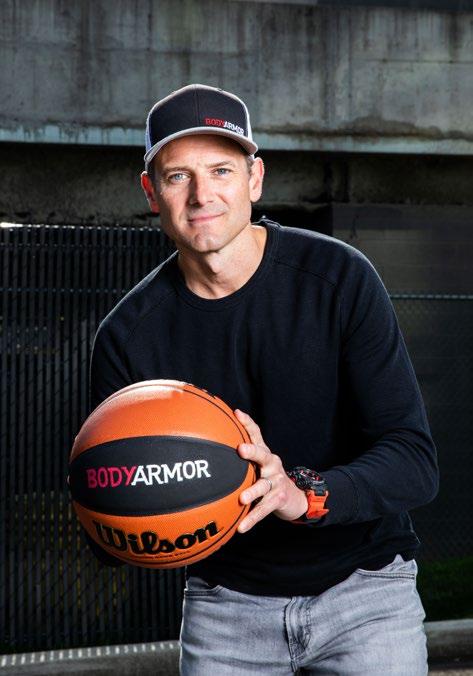
Concerning his own leadership, the CEO says he’s been given a wide berth to drive innovation at the company.
It’s a perfect combination of latitude, but also knowing he has the manpower and scope of a company like Coca-Cola backing up his team to wage the good fight against its much older and established competitor.

















Muyshondt rises every morning at dawn. He’ll spend twenty-to-thirty minutes planning out his day, prioritizing spending as much time as he can with wife Faye, eleven-yearold daughter Addie, and eight-year-old son Ollie. It’s not exactly meditation, but it’s essential quiet time that energizes.
“The rest of the day is taking the war to Gatorade,” Muyshondt with a laugh. But if you know anything about the spirit of the Black Mamba, and if you’re in the sports drink industry, you should do anything but laugh along.


P114 CARL LOREDO, The Wendy’s Company
P120 JUANA GOMEZ, Monterey Mushrooms
P126 LUZ MORALES, DYMA Brands

P132 OSCAR PELAEZ, Yum! Brands Pizza Hut
P138 ERIC MUÑOZ, Good Food Group
P144 ESTEBAN VELASQUEZ, 7-Eleven International LLC
P150 CARLOS RIVAS, Instacart
P156 MARY BETH MARTINEZ, Insomnia Cookies
This issue honors the part food plays for our community, as both a cultural bridge and as an industry where we play global role. Meet the executives sitting at the most important tables in the food and beverage, agriculture, nutrition, retail, and tech industries.
Digital Illustrations By Arturo Magallanes
THE WENDY’S COMPANY MAY NOT OUTSPEND ITS COMPETITORS, BUT CARL LOREDO DOES OFTEN OUTSMART THEM BY LEARNING WHAT WENDY’S FANS ARE PASSIONATE ABOUT AND MEETING THEM THERE

CARL LOREDO DOES NOT SHY AWAY from a risk. As global chief marketing officer (CMO) of an iconic and beloved brand, the Wendy’s Company, he knows that the bliss point of strategy is found in the willingness to try something new, crossed with the confidence of learning what matters most to customers.
“It all comes down to making sure that Wendy’s is the most talked about brand in the world, not because we outspend everybody but because we outplay them,” Loredo says. “I hear from people that Wendy’s is ‘just different,’ but they aren’t really sure why. So we make it our job to find out why.”
Loredo is a Texan native with Cuban roots. He earned his MBA from the University of Texas with a focus in marketing.
However, during his undergraduate studies he majored in fine arts which he believes gives him a “left brain, right brain” edge that comes together in his love of storytelling.

Since then, Loredo has had an impressive breadth of experiences that prepared him to become Wendy’s CMO in 2019. He’s worked for companies including Dell, Kraft Foods, Craftmade, and Frito Lay. For nearly four years, Loredo was the vice president and multicultural practice lead at a marketing arm agency where he collaborated with other world-famous brands including PepsiCo, L’Oréal, AT&T, and Anheuser-Busch.
Loredo worked on the team that launched the Frito Lay Tostitos Multigrain chips, a product that he is proud to know still sits on store shelves today. The initiative came down
to a key marketing principle for Loredo: listening to the customers so the company can give them what they want.
“It’s a clear example of a product where we got the insight and, ultimately, the delivery right,” Loredo says. “Moms felt like families needed to have a little bit more multigrain their life, but families thought multigrain didn’t taste that great. We knew we could solve that, [and] Tostitos Multigrain is still on the market now.”
Now as global CMO at Wendy’s, Loredo challenges his team to find its fans in the places that are important to them and to give them a meaningful experience to build authentic engagement. For example, National Roast Day, the playful fake holiday invented by Wendy’s, is now going five years strong.
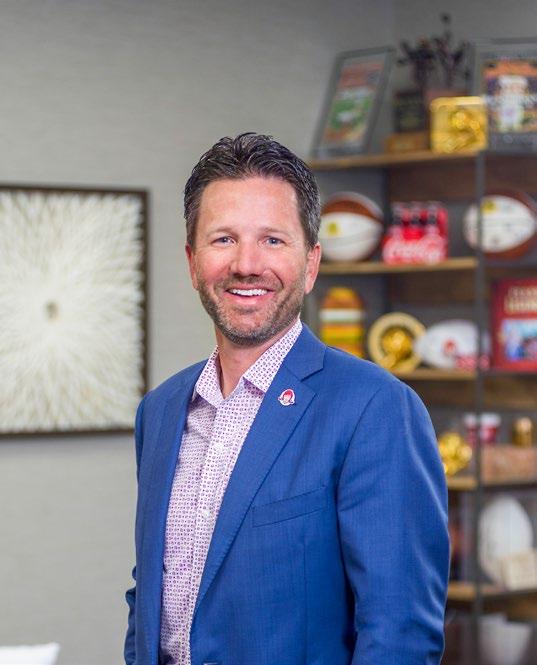
In 2019, when Chance the Rapper chimed in about the then-discontinued Spicy Nuggets, Wendy’s let its fans decide whether it would oblige the rapper—which they did. “That was sort of the final catalyst for us to say, ‘You know what, let’s go get this done.’ Clearly consumers are all over it; we got Chance the Rapper asking for it,” the CMO says. “Let’s be passionate about the things that our consumers have a passion for and engage them that way.”
The secret is in the sauce. With Loredo’s leadership, Wendy’s has become the number two hamburger brand only behind McDonald’s—or as Loredo slyly calls them, the “Frozen Arches.” This is in reference to Wendy’s “fresh never frozen beef” slogan. However, Wendy’s simply doesn’t have the spending power that its competitors have.
“Everything we have to do has to be smart and scrappy, and really intelligent in the way that we’re engaging. It has to work better,” he says. “I think we’re uniquely positioned because we are a brand that does it different; we take the time to understand what matters to our consumers. We’re the challenger with charm that people are rooting for.”
The list of its digital acceleration initiatives that qualify Wendy’s as a disruptor goes on and on. Wendy’s became the most streamed brand on Twitch when it dropped into Fortnite to destroy the hamburger freezers and gave a memorable experience to Wendy’s consumers when other players joined in.
“I think many of our competitors’ mistakes are made by starting with the tactics,” Loredo says. “You see folks slap-
“
I think many of our competitors’ mistakes are made by starting with the tactics. You see folks slapping logos onto some partnership program or otherwise, and you can scratch your head and say, ‘Well, is that authentic to your brand?’

ping logos onto some partnership program or otherwise, and you can scratch your head and say, ‘Well, is that authentic to your brand? Are you the only brand that could do it that way?’ And if the answer to those two questions is no, then one might ask themselves, ‘Was this something we should be participating in?’ It’s all about finding cultural moments that matter.”
Loredo says Wendy’s is paying attention. It noticed when the Homestyle French Toast Sticks on its newly launched breakfast menu became a huge hit among Hispanic consumers even though it wasn’t a traditionally Hispanic breakfast item. Even Loredo’s personal family memories played a role in the brainstorm.
“I didn’t have a whole lot of French toast from my grandmother when she made me breakfast back in the day. So, we thought

about what that storyline might be,” Loredo explains. “We landed on that ‘suspiciously good’ idea where if it’s something your mom doesn’t typically make, you might want to ask yourself whether she’s really making it or not.” The idea lead into the Wendy’s Spanish language spot for the new product.
“Just like any friend, you need to get to know your fans before asking them to lunch,” Loredo says. “A lot of brands miss it and quickly go to, ‘Would you like to go to lunch?’ instead of getting to know folks and understanding what they might want for lunch first. That is how Wendy’s stays the beloved brand that it has been since its founding in 1969, and why many families consider themselves ‘Wendy’s Families,’ because when they do indulge in some takeout burgers, they are making a choice about where they want to go.”

Juana Gomez supports the Latino agricultural workforce through the passions passed down by her father
AS CONVERSATIONS ABOUT THE sustainability and stability of the global food system continue, more people are considering where their food comes from and where it goes—but what about the hands it touches along the way? After all, if it weren’t for the people who picked it, most of us wouldn’t have anything to eat.

“There is a labor void in the US and other developed nations. Whether it be harvesting the fields, or picking the produce, there isn’t enough labor force to do it—and Latinos fill that void proudly and beautifully,” Juana Gomez says. “I wholeheartedly believe that, without the labor, the food chain would break down.”
Born in a small town in southern Oaxaca, Mexico, and moving around constantly as her dad looked for work, Gomez’s childhood is filled with fond memories of her family, but the most notable are the memories revolving around the fields her father worked.
“One of my fondest memories happened on a sunflower field. My dad was doing something with the tractor, and we all went with him. We were having lunch and it started hailing. So, we all huddled up underneath the tractor,” she says. “To this day, sunflowers are my favorite.”
When Gomez was seven years old the family split; Gomez and her two brothers moved in with her grandma and then her aunt, while her dad migrated to the US. When she was eleven years old, her brothers joined their dad in the US. Her dad started working in the fields in Monterey County, and by 1989 they all moved into an old farmhouse at the ranch her dad managed. He loved working in the fields, a lifetime passion that he quickly passed down to her.
As a child, Gomez often picked produce in the fields with her friends and began working in the office during her freshman year of high school. Each day after school, Gomez would be there helping the bookkeeper with miscellaneous tasks. That is until she was offered a position in the packing shed as a way to get more hours.
“I always say I have angels whispering in my ear. I remember standing there looking at the doors to the shed and hearing a voice in my head. It said, ‘If you go there, you’re never going to get out,’” Gomez says. “I was at a cross path, and I needed to choose.”
Rather than working in the packing shed, Gomez decided to take weekend shifts at the farm stand in Carmel Valley, about forty miles away. Without a license, young Gomez would beg and plead for a ride or catch one on the company truck. “I don’t know how I did it, but I found a way to show up,” she says.
Being the only bilingual employee, the owners and managers saw her potential, and she was initiated into human resources by the time she graduated high school. However, after getting married and having her first child, Gomez wasn’t in any position to relocate to Arizona as the job required.
At the end of her leave, she came back and joined the accounting team and pursued an associate degree in accounting while working full time. The company needed help with payroll, so Gomez stepped up to the challenge. Next came a need to administer benefits— so she started benefit administration. She went on to get her bachelor’s in business administration with an emphasis on HR and, when the opportunity presented, stepped in as the HR manager.
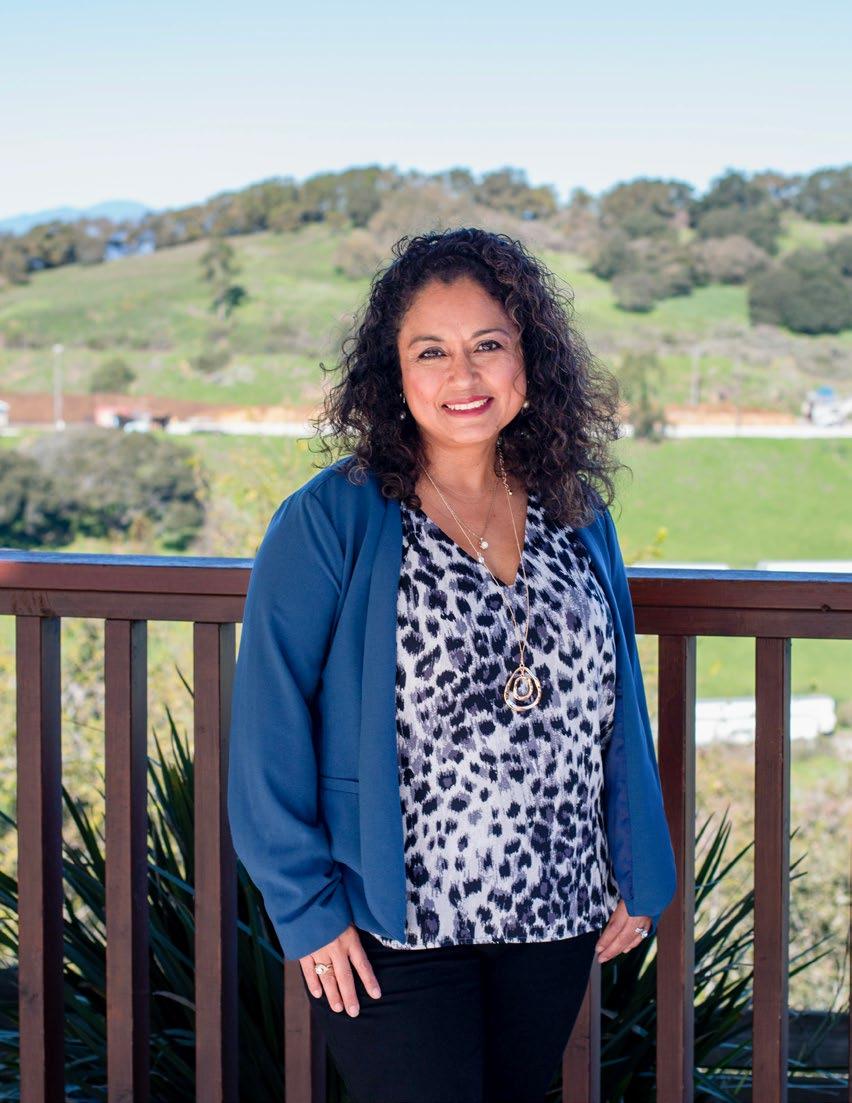
But Gomez didn’t stop there. After taking a year off from school, she went on to get her master’s degree. “I’m a Latina. People that look like me have a hard time moving up,” she says. “I knew that if I wanted to go higher, I needed more than just my experience.”
After working at the same company for her entire life, the time came for Gomez to leave the nest. But she wasn’t looking to go just anywhere—she wanted to work for a company that she could be proud of. After four months of consulting work, Gomez found Monterey Mushrooms, or as she’d say, they “found each other.”
As the chief people and culture officer at Monterey, Gomez drew on her lifetime of experience growing up in agriculture. But her passion is what makes her a true leader in the field. “When interacting with our teammates, I see my dad. It’s important to me that they’re being treated the way I’d want him to be.”
Eloy Garza, managing member of Garza & Sons, speaks highly of Gomez’s focus on the people behind the work. “Having the privilege to work with Juana, I’m still amazed at the amount of passion and dedication she gives to everyone involved in the operation,” he says. “I’ve seen her spend countless hours, taking time to make sure each employee’s needs are being met. She leads by example and puts people first.”
The way Monterey Mushrooms wins is by “creating win-win situations,” or building systems so that when the company does better, so do the employees. This could be
providing paid incentives when key performance metrics are achieved, on a weekly and quarterly basis. But it also looks like lower healthcare deductibles and premiums, without passing on any of the cost to the employees. The key is having the right partners who help the organization find the right solutions.
Gomez mostly credits active plan management, and she recalls that her dad believed in incentives too. It was an idea he had thought up back in the nineties. “It’s amazing to me that my dad was so ahead of his time. Now here I am, working on that same objective,” she says, adding that family is a source of not only inspiration but also comfort.
“For me to have a great career and get an education, I had to have an amazing support system,” she says. “My parents, husband, family (including the person who is like a second mother to my boys), as well as professional mentors . . . I would not be who I am today without that great support system.”
Now in HR, Gomez is uniquely positioned to support Latinos. “Being an immigrant myself, I know we don’t leave our country because we want to see how it is—we come to this country, and we fill a void, and we’re too often persecuted for it.
“Latinos are here doing the hard jobs that no one else wants to do. It’s time that the country recognizes that and celebrates it.” Gomez continues. “Being in HR, I get to do for them what someone once did for me: see their potential and provide the mechanisms to succeed.”
In March 2023, after this interview, Gomez continued her HR journey by bringing her expertise and passion to Frutura Produce as its new executive vice president of human capital. She is tasked with leading the strategic direction and planning of the human capital and culture function. Regarding the move, Gomez shares, “I’m grateful for my time at Monterey Mushrooms. Lifelong friendships will remain, and [I] will bring the same passion to the people of Frutura Produce.”
“
When interacting with our teammates, I see my dad. It’s important to me that they’re being treated the way I’d want him to be.”


WE’RE IN THE RESOURCE MANAGEMENT AND LABOR BUSINESS BUT WHAT WE REALLY DO IS BUILD RELATIONSHIPS. WE WORK CLOSELY WITH EMPLOYERS AND GROWERS AND TREAT YOUR BUSINESS LIKE OUR OWN. WE DELIVER A CUSTOM WORKFORCE PROGRAM THAT ENHANCES EFFICIENCIES PROVIDING INSIGHTS AND INNOVATION. WE COLLABORATE WITH YOU, SO WE UNDERSTAND YOUR REQUIREMENTS AND THEN CUSTOMIZE OUR SERVICES TO FIT YOUR TIMING AND NEEDS.
TRANSPORTATION
We provide transportation to many of our employees in various states. Contact us to learn more!
HOUSING
We provide Housing to many of our employees in various states. Contact us to learn more!
RECRUITING
Garza and sons recruit both foreign and domestic!
H2-A
H2A focuses on providing foreign talent and having individuals vetted and verified to work in the Agriculture industry.


H2-B
H2B focuses on providing foreign talent and having individuals vetted and verified to work outside of the Agriculture industry.

 WHAT DO WE OFFER TO YOU?
WHAT DO WE OFFER TO YOU?
Luz Morales serves up a benefits package that nourishes the needs of DYMA

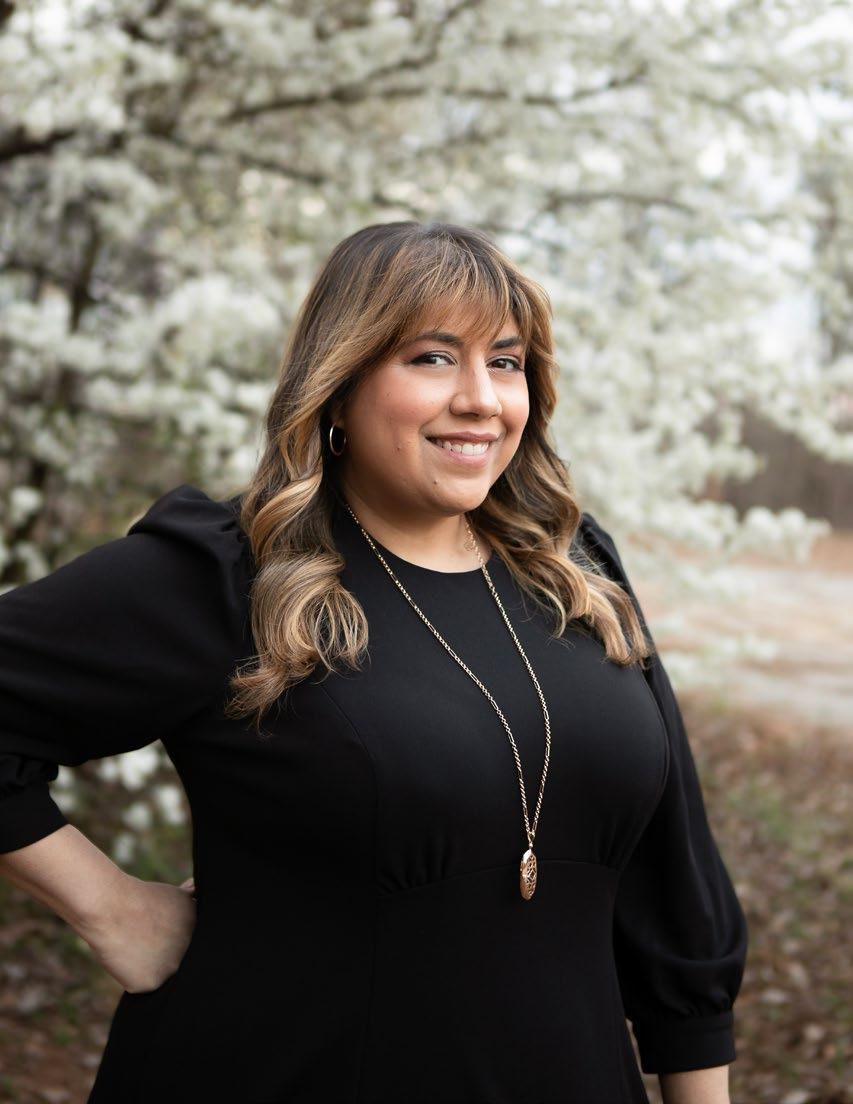
LUZ MORALES POURS HERSELF INTO creating employee benefits packages that nourish the lives of DYMA Brands employees. The Atlanta-based company is an industry leader in the development and manufacturing of portion control packaging solutions in food service, including liquid and dry condiments and dry-blended mixes. Its innovative product portfolio includes Disney, Welch’s, True Citrus, and private label brands for some of the largest operators in food service.
As a vice president of human resources with over twenty years in the food, beverage, and consumer packaged goods industries, Morales understands that satisfied employees drive business results. That’s why she and her team have developed a recipe that bolsters company culture and helps DYMA become the best place to work.
The secret ingredient? “I instill in all my team that we embody a certain servant leadership mindset,” Morales says. “We want our team members to know that the HR is their
partner. We’re here to serve them, we’re here to be their resource at the best of times and at the worst of times. We want to answer their questions and if we don’t know the answer, we want to go find it.”

That mindset has been vital to helping the company achieve its highest retention rates yet, amid industry-wide challenges, and to attract and retain talent in a post-pandemic job market. When Morales and her team were initially faced with those challenges, they spent a lot of time working with front line leaders, workers, and stakeholders to reexamine company culture, purpose, and vision. Those deliberations have led to several key initiatives she leads that transformed how the company recruits and retains talent. Several are centered around valuing their employee’s time, ensuring they have schedule flexibility and a meaningful work/life balance.
“We’ve got to make sure that weekends are sacred, that schedules aren’t built in with tons of overtime,” she says. “And, when employees
“ Today, workers aren’t traditional, and that old factory mindset doesn’t work anymore.”
do need to work weekends for a big customer order, its mandatory that we provide them meals. We also give incentives for employees who’ve had perfect attendance.”
Morales and her team have supplemented those efforts with targeted recruiting for seniors who want to return to the workforce, comprehensive wages that go beyond the company’s competitors, and a beefed-up referral program. That’s in addition to enhanced training resources catered to the needs of the modern employee.
“Today, workers aren’t traditional, and that old factory mindset doesn’t work anymore,” the VP says. “Now, you’re not getting someone who maybe came from a factory. You’re getting a mom that was driving a school bus and wants to learn how to package jelly and you’ve got to be willing to be agile and flexible to support that career change for that person.”
Morales also believes part of that includes supporting a person’s mental well-being. That’s
why the company started offering employees and all their dependents fully paid mental health benefits this year, giving them access to the support they need on multiple levels.

“When we think about mental health, a lot of times, the stigma of depression or suicide comes to mind and it’s important they have access to support for that,” she explains. “But they also need access to support to address daily stressors, which will make them more effective team members. Things like taking time to reflect and pause, addressing financial wellness, and coaching to prepare you for the next role.”
Morales has always felt a deep need to serve others. While most fourteen-year-olds were outside playing with their friends, she was riding ambulance calls and getting her state license as an emergency medical tech-
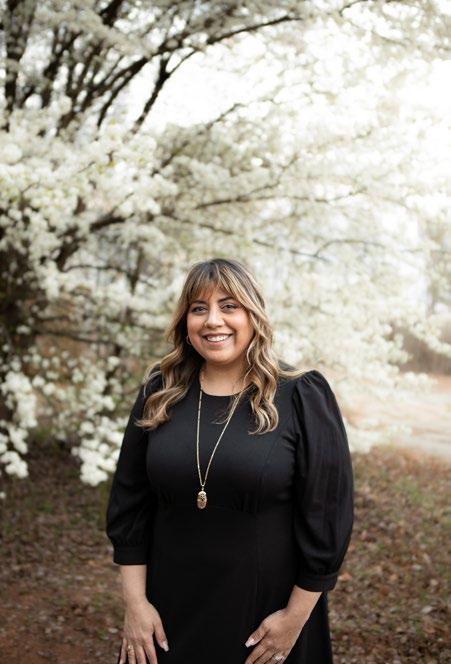
nician (EMT) on a volunteer first-aid squad. Even then, it brought her joy to be able to help others. Helping patients navigate emergencies, and what sometimes were the scariest moments of their lives, also instilled in the young Morales that she needed to do meaningful work she loved.
She transitioned into a career in environmental health and safety. It gave her valuable experience, but she didn’t always feel like she was helping others. However, the work exposed her to HR projects and show her a path to enriching lives reminiscent of her EMT days, especially after she witnessed the impact previous HR mentors and leaders had on their companies. “Whether it was a hard conversation or a celebratory conversation, people truly looked at them as leaders, but not because they were in charge,”
she says. “It was because they were adding value and enriching their lives. That really meant a lot to me.”
Today, that’s who she aims to be for those she leads. She’s a firm believer in investing in the development of team members just as much as meeting company goals. She always wants to give her employees a chance to advance in their roles.
“When you’re listening, learning, and investing in your team, you’re creating capability and inherently creating a succession plan,” Morales says. “We want to make sure that each and every team member who wants to do the next thing or learn about a new area has that ability.”
Employees have an opportunity to do that and more with a new mentorship program she and company leaders are spearheading.

“We’ve identified folks taking on new challenges, recent promotions, and new projects and how we can support them,” she says. “We’re also developing a model for pairing the right mentors with the right mentees, training programs, and what employees should get out of that experience.”
At Right Management, we help organizations accelerate performance by building the capabilities they need to adapt their workforce today – and for whatever the future holds.
 Career Transition Management Workforce Career Management Leadership Solutions
Career Transition Management Workforce Career Management Leadership Solutions



 Hillerie Patton Hillerie.patton@manpowergroup.com
Hillerie Patton Hillerie.patton@manpowergroup.com
www.manpowergroup.com
 Behar, Gutt & Glazer P.A. provides highly personalized legal services from its Florida headquarters. Our firm concentrates on several specialties, including corporate law. As legal counsel for DYMA Brands, we collaborate with Luz Morales to proactively implement rules, regulations, protocols, and policies to provide the best work environment in the industry.
Behar, Gutt & Glazer P.A. provides highly personalized legal services from its Florida headquarters. Our firm concentrates on several specialties, including corporate law. As legal counsel for DYMA Brands, we collaborate with Luz Morales to proactively implement rules, regulations, protocols, and policies to provide the best work environment in the industry.

Hut’s brand essence to life with designs that foster an emotional connection for consumers around the world
AS 1999 WAS ENDING AND EVERYONE braced for the possible effects Y2K would have on global financial markets and the world’s energy grids, Colombian Oscar Pelaez was vacationing in Miami with his future wife. After ringing in the new millennium, the two began exploring the possibilities of living and working in the US.



Before he knew it, Pelaez, who was trained as an industrial designer and architect, was offered a computer-aided design (CAD) drafter position by a boutique design firm. Headquartered in Miami’s Coral Gables neighborhood, Echeverria Design Group designs high-end retail and hospitality projects.
“I was extremely lucky to find a company willing to sponsor my work visa. I started at the bottom of the food chain as a CAD drafter,” says Pelaez, now global director of concept innovation and design at the Pizza Hut division of Yum! Brands.
He stayed at Echeverria until 2006, where he learned the ropes of the design processes in the US, when he was hired by Bermello & Ajamil and Partners in Miami’s Coconut Grove neighborhood, one of the largest Hispanic-owned architectural firms
in the US. There he worked as a studio design leader on large-scale hospitality projects in the Caribbean and the Middle East.
“That’s where I got a taste for international business and started learning the ins and outs of the impact of design in the business environments,” Pelaez says.
Pelaez earned an MBA and then became head of design and construction in Latin America for Starbucks. “That’s how my journey in corporate America started,” he says. He helped Starbucks open key markets in the region, including in Brazil and Argentina, and led the design and build of more than five hundred coffee shops.
After four years at Starbucks, he signed on with the international division at Yum! Brands as head of design for KFC and Pizza Hut international markets. Following a corporate restructuring he ultimately settled into the Pizza Hut division.
Although born and raised in Colombia, Pelaez has never felt disconnected from his Hispanic heritage while on his US journey. “Overall, it was an easy landing. I was able
to have some of those Latin and Colombian roots and connections in Miami,” he says. Given Echeverria Design Group’s Latin roots, Pelaez felt at home almost immediately in Florida. “All this helped me to ease into the American culture.”
Working with individuals who had similar backgrounds to him put Pelaez at ease, allowing him to spread his wings and establish local work connections. “Even if I planned it, I couldn’t have planned a better transition to my new life in the US, and it was all by chance,” he says.
Pizza Hut operates in 110 markets outside the US, and it’s Pelaez’s job to bring the brand’s essence to life in its restaurants, creating distinctive and relevant brand experiences to drive the profitable growth of the brand globally.
“The function of design goes beyond the four walls of the restaurants,” Pelaez says. “You have to be conscious of each of the market cultural nuances and digital innovations to allow the restaurant to create strong emotional connections between the guest, brand, and team members.”
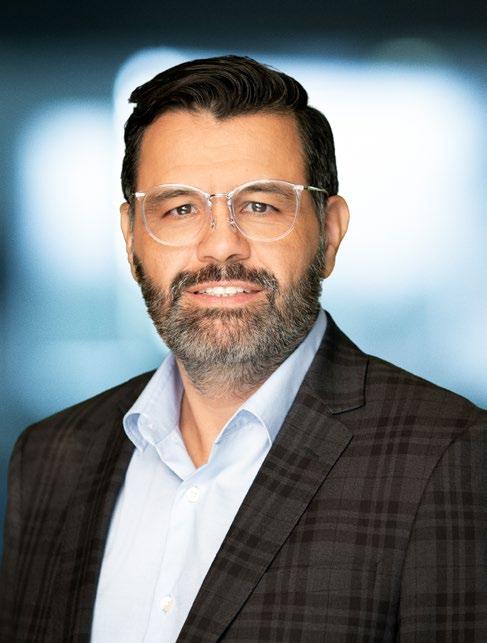
Before starting a design, Pelaez studies the nuances of the local culture and then applies the 80/20 rule to his design, a rule he learned while at Starbucks. “Eighty percent of asset strategy and asset execution is a global strategy, but then we sprinkle 20 percent of local relevance. This comes in different ways and shapes on how we execute the brand essence within the restaurant space,” he says.
Realizing the next level of innovation in the restaurant and retail space was digitally driven experiences, Pizza Hut launched an asset model called Fast Casual Delco (FCD, with
Delco standing for delivery and carry out) in 2017. The objective was to create a customer journey that may start on customers’ phones and ended “with them enjoying one of our delicious pizzas in one of our beautiful restaurants,” Pelaez says.
The FCD model created a better brand experience for Pizza Hut customers in restaurants and introduced a new brand experience to customers as a delivery company. “We wanted to bring all those efficiencies of our delivery and carry out channels into our operations, while creating a distinctive and relevant experience for our guest, [and also] creating a flexible asset model that allows our
franchises to adapt their capital investments to the true potential of each trade zone,” Pelaez says.
Pizza Hut has opened more than two thousand FCD restaurants since the launch of the concept. “This model has become 80 percent of our gross builds in the past three years. Eight out of every ten restaurants we build in the Pizza Hut system are Fast Casual Delco concepts,” Pelaez says.

Pelaez heads an international team of architects and designers and works closely with marketing, operations, and finance. His goal is to elevate the function of Pizza Hut’s design teams for the vision of the brand and carry that vision into the future.
“Every strategy our cross-functional partners create or generate becomes real in our restaurants. We own that,” Pelaez says. “For example, when we’re talking with marketing and they’re creating a marketing campaign or a new brand positioning, all of those strategies become real in the restaurant.”
Designers make the brand strategies a reality. “We’re a key component in the business strategy because we are the glue that brings everything together. When you enter the restaurant, you enter the brand,” Pelaez says. “As a leader, my vision for the team is to elevate our impact on the business and allow them to become the glue than brings our brand to life.”
That same level of respect and collaboration carries over to his work with external partners. “Oscar believes that the best
opportunity for success is a solid supplier/ brand partnership,” says Gwen Bialas, president at Carter-Hoffmann. “His innovation initiatives with cross-functional internal and external team members are truly led by example. It’s a true honor to engage and partner with Oscar.”
Finally, Pelaez says those new to the US need not Americanize or lose their accents to succeed. “You can be honest about where you came from, your background, and your first language. I have a strong accent and even with that I have been very successful in big corporations [at the] executive level,” Pelaez says. “Hispanics are inherently entrepreneurial and possess impeccable work ethics. They should use these qualities as their superpowers.”
The function of design goes beyond the four walls of the restaurants. You have to be conscious of each of the market cultural nuances and digital innovations to allow the restaurant to create strong emotional connections between the guest, brand, and team members.”

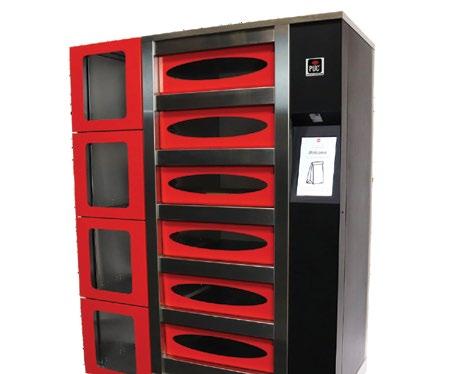
 By Peter Fabris
By Peter Fabris
ERIC MUÑOZ RELISHES OPPORTUNITIES TO SUPPORT
STRATEGIC DECISION-MAKING AS CHRO AT GOOD FOODS

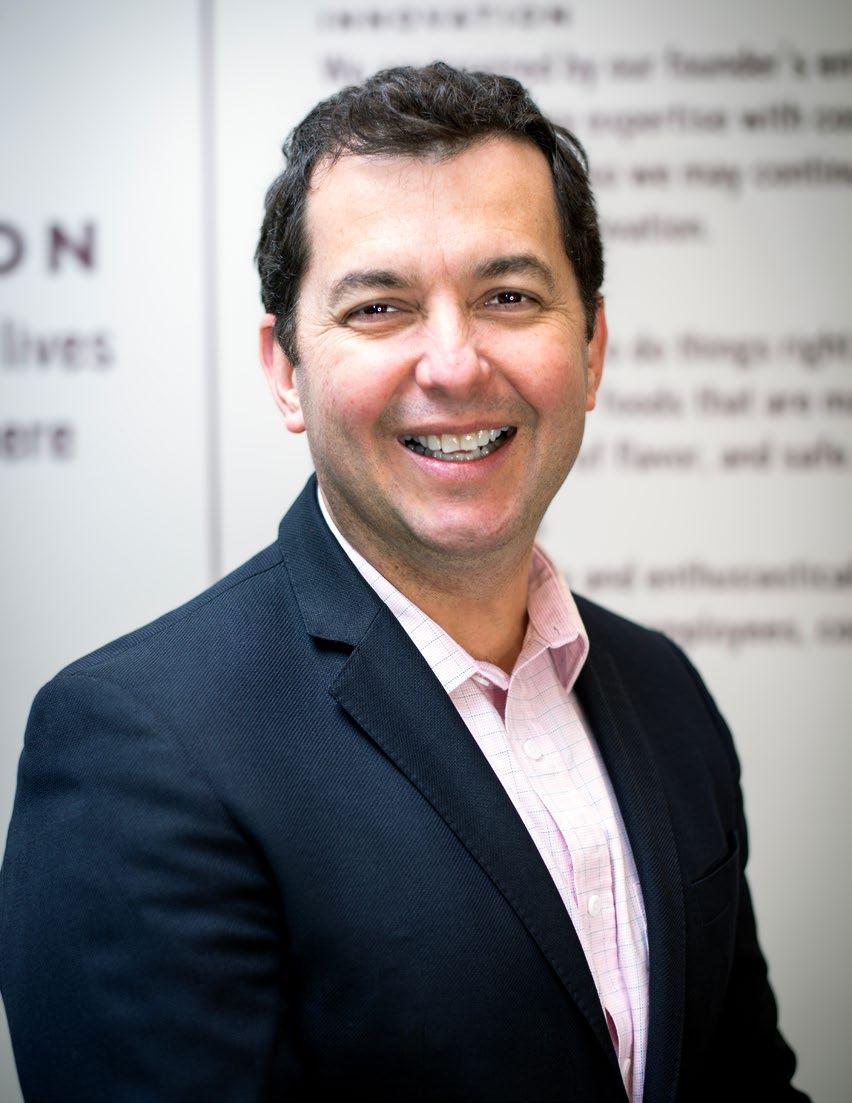
HAVING WORKED FOR LARGE PUBLICLY traded companies including Kraft, Mondelēz, and Kellogg for two decades, Eric Muñoz took the unusual step of moving to a much smaller private company in 2022: Good Foods, a fast-growing maker of avocadobased dips, spreads, and other packaged food products sold by major retailers.
As chief human resources officer (CHRO) for the start-up founded in 2007, Muñoz practices what he calls “value-creation HR,” an approach where HR is deeply involved in strategic planning that directly impacts financial results. “In most large corporations, HR is one step removed from impactful strategic decisions,” Muñoz says, “as corporate leaders typically do not consult with HR before deciding to roll out a new product line or enter new markets.”
After such decisions, HR is typically tasked with recruiting new employees or helping to reskill current employees for the new initiative. In contrast at Good Foods, Muñoz is privy to proposals for strategic course changes and business expansion initiatives in the early stages. This allows HR

to contribute to critical discussions and partner more effectively with other departments. HR can help business leaders outline the skills needed for a new initiative, identify internal candidates who might fit key roles, gauge the current job market for hiring new employees, and identify the kind of training needed for workers to transition to new roles.
“We can make sure we are hiring the right people at the right time,” Muñoz points out. “All these factors impact the timing of new initiatives and their ultimate success.”
The opportunity to make such impactful contributions and the company’s entrepreneurial spirit drives Muñoz and made the move to Good Foods enticing. “I came from big corporations that were amazing in their own way, but I wanted to experiment and try new things,” he says.
In recruiting for key positions, he’s found that Good Foods’ culture also appeals to a subset of other seasoned executives from large companies. “You find people in big corporations that love the structure around them, while others want to exercise their creativity and be able to try out new ideas,” Muñoz says,
and adds that many of the latter cohort have filled key roles at Good Foods recently. The company’s impressive double-digit revenue growth over the past five years and the ability to unleash all their talents are appealing to these candidates.

Hiring will continue to be a critical area demanding Muñoz’s attention and he must identify candidates that will thrive at Good Foods. Those with a track record of responding well to change, having an “entrepreneurial mindset,” and being comfortable working in a collaborative environment rather than a military-style hierarchy will likely succeed.
To uncover those who have the right traits, Good Foods has developed a rigorous interview process that aims to prompt managerial candidates to reveal their management style tendencies and preferences for the type of work culture in which they are most comfortable.
“We are at an interesting stage—no longer a start-up and moving to a mature phase,” he says about this exciting point in the company’s trajectory. The company has grown to a point that requires more managerial processes and organizational discipline, but the company’s leadership believes it is critical to preserve the entrepreneurial spirit that made them successful.
For example, the organization recently adopted the SAP ERP platform, and other platforms to track business intelligence. A key goal of this data infrastructure transformation is to provide more accurate, usable data to enable the company to identify new business trends and opportunities faster. A change like this, however, impacts many people throughout the organization, disrupting old routines, requiring training on the platform, and, at first, prompting resistance. “Some will say ‘I manage my files in Excel,’” Muñoz says. “‘Why do I need ERP?’”
From a management perspective, a key to making this transition successful is to explain to employees at all levels of the company why the changes are taking place, Muñoz says. Being transparent about the purpose of such initiatives helps everybody to align with the goals and build support for things that can be initially disruptive but lead to a greater good.
For Good Foods, that practice is challenging because it has a presence in two countries—the US and Mexico. To address new developments, early in 2023 the company’s founder and CEO held a townhall-style forum to elaborate on new initiatives and answer employee questions. In that spirit,
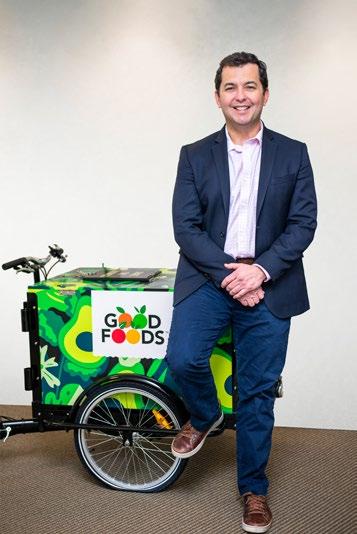
Muñoz will guide HR staff to keep all employees abreast of what new initiatives mean for them.
Muñoz is also passionate about helping others advance in their careers. “I have had people who have given me great advice during my career, and I’ve committed myself to do the same for others,” he says, adding that sympathy is a key trait for a leader. “I always try to understand the person in front of me, their stories and their drivers, and start from there to build trust and make strong connections,” he says. “That’s how you build trust.”
Good Foods allows people to develop their own ideas and experiment with new
Strategy made personal
For over three decades, BTS has been designing powerful experiences that have a profound and lasting impact on businesses and their people.
technologies, techniques, and managerial approaches. That means some projects will succeed and some will fail, and leaders must be okay with that—all are learning opportunities. “I want to expose my team to as many experiences as possible,” Muñoz says.
Good Foods’ privately held status with a longer-term vision into the future creates an ideal environment to try new things. “We have the luxury of time,” Muñoz says. The company’s founder is committed to growing the company sustainably, he adds, and that suits Muñoz well, as the road ahead is well paved for him to continue to pursue his passions of contributing to strategy and helping people thrive in their careers.
Our next-generation approach combines deep business knowledge with transformational development to turn strategy into results.
www.bts.com
BTS: “Above all, Eric is a people-first CHRO. He cares deeply about human development and creates the right culture and support infrastructure people need to thrive and perform at the highest level. Whether by redesigning talent processes, creating new leadership capabilities, or coaching executives, Eric delivers outstanding results.” —Eleonora Golcher, VP“
You find people in big corporations that love the structure around them, while others want to exercise their creativity and be able to try out new ideas.”By Frank DiMaria
Esteban Velasquez helps bring 7-Eleven International’s convenience (and Slurpees) to the world as director of financial planning

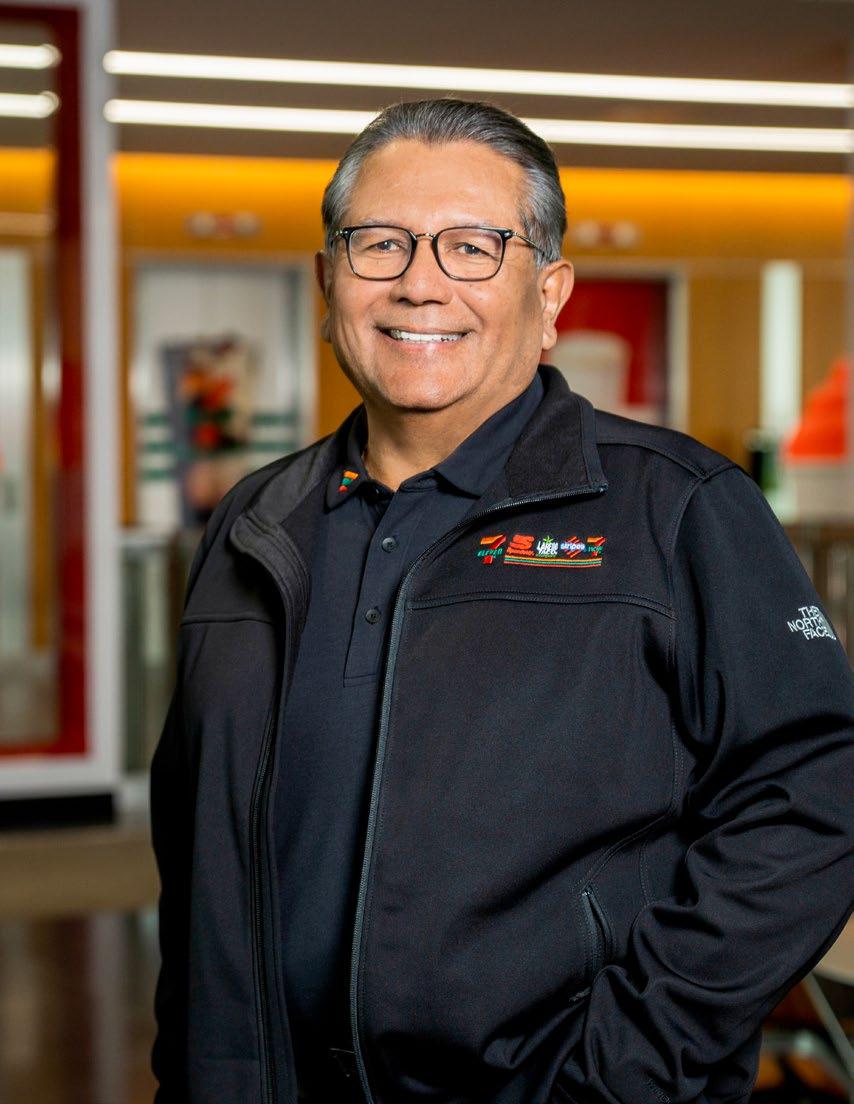
YOU WANT A SLURPEE, BUT THE LINE for the machine reaches out the door and down the block. When Electra Consumer Products Ltd., a master franchisee of 7-Eleven International LLC, opened its first 7-Eleven store in Tel Aviv’s Dizengoff Center in early 2023, that was precisely the case. Excited customers lined up hours in advance to get their first taste of world’s largest convenience store chain, with Israel becoming the nineteenth country to roll out the yellow, green, orange, and red drink loved by millions of Americans.
This is just the latest victory for Esteban Velasquez, director of financial planning at 7-Eleven International. The director has called the company home for his entire career. In fact, he got his start at the very first rung. “As I was working through college, I was able to work the second shift at a 7-Eleven store,” Velasquez remembers. “Learning the business from the ground level was incredibly important for me, even though I had no idea I would end up joining the company.”
Velasquez has been on the front lines of providing support and guidance on the formation of 7-Eleven International. The new entity was announced in early 2022 and aims to ensure long-term growth by expanding the brand into new territories, as well as provide world-class value and support to existing international licensees and master franchisees.
“A lot of passion and effort went into establishing the infrastructure and culture of 7-Eleven International,” the director says. “Having the opportunity to work closely with our co-CEOs and their executive committee for almost a year was an incredible experience. And, although helping develop 7-Eleven International’s five-year strategy took a lot of time, and there have been countless presentations and discussions. It has been so exciting, and rewarding.”
Working globally is Velasquez’s bread and butter. He loves driving international growth and seeing how his work ultimately translates to new stores in new locations. While he

Leadership here always understands that the customer comes first, and I learned that from day one.”
undersells just how direct his contributions may be, he still feels the parental pride of bringing a new store to life.
Velasquez’s pride for 7-Eleven is the result of a culture that has supported him since he joined. Early on in his career, he got the opportunity to join a year-long management
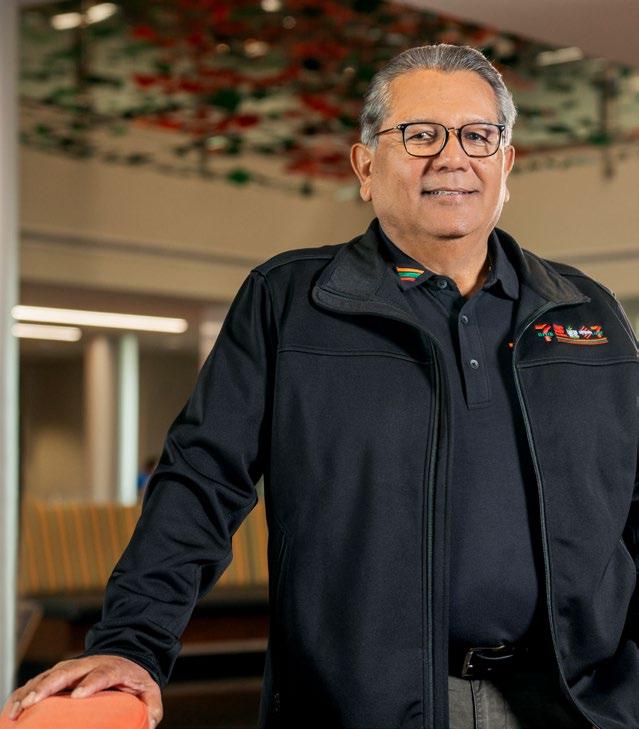
training program that would impact the rest of his professional life.
“We got the chance to go back to the store level, understand the business from that side, and understand what it takes to support the store from the management perspective,” he says. “I spent a year working from store to

markets to divisions, and then to the corporate office so we could fully understand our role and how we could support those people on the ground providing services and products to our customers.”
Velasquez says 7-Eleven earned his loyalty on his first day in management when brothers and children of founder Joe C. Thompson Sr., John and Jere Thompson, spent half a day with Velasquez and other newcomers to the company. “That was the most impressive thing to me,” he reflects. “Leaders of this organization took the time to visit with me and understand where I was coming from. Leadership here always understands that the customer comes first, and I learned that from day one.”
7-Eleven’s customers can be found at nearly thirteen thousand stores in the United States, over twenty-one thousand in Japan, and many more across the world. The customer-first mindset of is still a winning strategy.
For those hoping to rise in their own organizations, Velasquez is resolute in his advice. Education is the key that opens the door to opportunity, and whatever happens, that education can’t be taken away.
Velasquez doesn’t just believe this, he’s lived it. The only boy of five children, Velasquez and his siblings couldn’t finish their high school education because they needed to help keep their family afloat financially. But that didn’t stop him. Velasquez would ultimately earn his GED, his college education, and his CPA with what he says was the help of mentors and people that wanted to see him succeed.
KPMG congratulates Esteban Velasquez on this welldeserved honor! We are proud to work with Esteban to help 7-Eleven expand into new markets globally. KPMG’s global mobility services practice provides end-to-end global mobility services by utilizing a global operating model, investing in tomorrow’s technology, and meeting the full range of client needs.
KPMG is proud to shine a spotlight on Esteban Velasquez and congratulate him for his leadership and making a difference in the lives of rising leaders in the international business landscape.
KPMG’s Global Mobility Services practice provides end-to-end global mobility services by utilizing a global operating model, investing in tomorrow’s technology and meeting the full range of client needs.



Carlos Rivas talks adaptation, M&A, and building culture at Instacart
IN HIS TWENTIES, CARLOS RIVAS HAD it all figured out. He would practice law for a few years in his home country of Venezuela, move to the US, get a master’s, work at an international firm for a few years, then return to Venezuela to practice as a partner for the remainder of his career. It was a perfect plan.
“If you think you have it all figured out in your twenties and refuse to consider other possibilities, it’s a huge mistake,” Rivas says, laughing at his younger self. It’s not that the plan has deviated wildly: Rivas is still a successful lawyer, but after twenty years he’s still in the US and he’s gone in-house.
Now the director and associate general counsel at Instacart, where he heads up the M&A legal team, Rivas may not have stuck to his plan but it’s for all the right reasons. His interests evolved, and the opportunities were incrementally more interesting. After building out a successful track record of M&A work in New York and California firms, Rivas would spend six and a half years at Intel.
The attorney is grateful for those years when he was part of a well-oiled machine. Rivas says there was always a full M&A team ready to get to work on whatever deal was being considered. But as he gained more in-house experience, he realized something was missing.

“I wanted a chance to connect more directly with consumers of the services the company offered,” Rivas explains. “When I told my kids, nine and eight years old at the time, that I was going to work for Instacart, they immediately understood. It’s those friendly people who come to your door and deliver your groceries. They understood that I would be driving that mission.”
Instacart’s mission was particularly alluring to Rivas: giving everyone access to the food they love and more time to enjoy it together.
“Working families like mine spend so much time going to big and small retailers and that takes us away from our families, our friends, and from using our time as we’d like,”
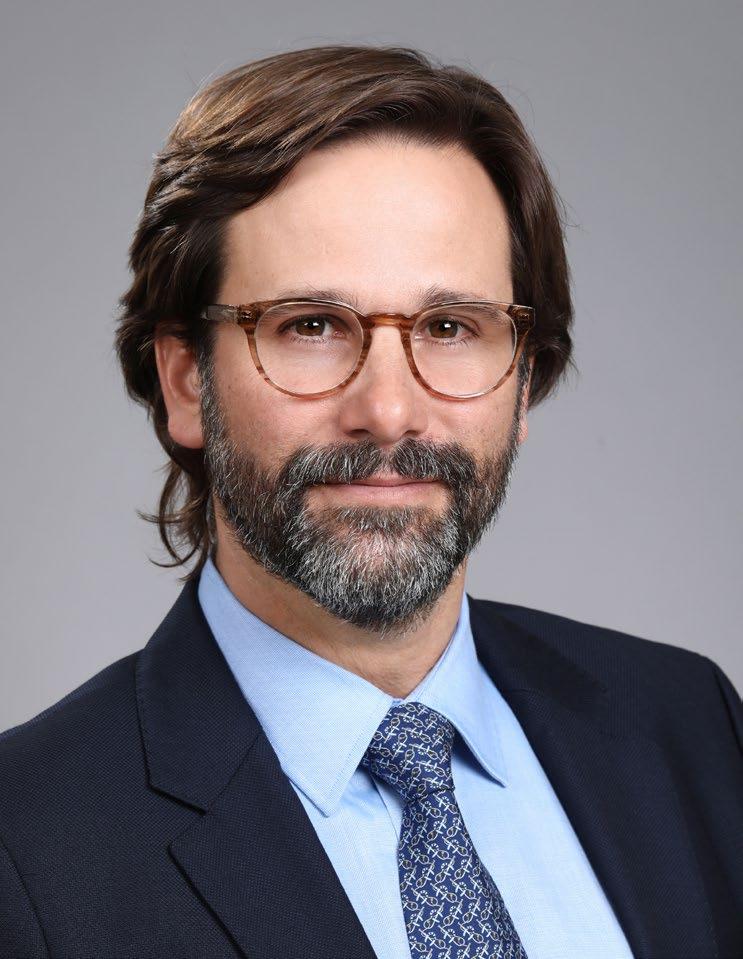
Rivas explains. “Instacart seems like such a simple, beautiful thing, but it’s incredibly complex. And I wanted to be here to support that mission and help grow this company.”
The M&A all-star says companies like Instacart acquire to accelerate their growth potential. He’s been brought on, in part, to help the company develop its own M&A culture, which can be distracting for latestage private companies.
“My role is partially about building a culture of how we do acquisitions,” Rivas says. “Late-stage private companies that haven’t done much M&A can often see deal opportunities as too risky. So as part of my job, I help our deal team find the kind of risk we are willing to assume.”
Rivas is crafting an M&A playbook for Instacart, and part of his purview is to support those M&A efforts.
“I might not execute the number of deals I was used to at Intel, but there is so much more that goes into building an M&A culture,” Rivas says. “I don’t have specialists on every aspect of the M&A process, so we all have to make sure we’re aligned and ready for every step of the deal.”

While his life plans may have shifted, there has always been one constant in Rivas’s life: the need to adapt. When he came to the US, Rivas was rejected from job after job. He mostly applied to US law firms that had a Latin America practice. However, to his surprise, being from Venezuela was a less attractive attribute for these law firms due to the challenging political backdrop in that country.
But Rivas persisted and joined law firm DLA Piper as a full-time associate.
“Any time anyone asks me for advice, I always tell them you only need one chance,”
“
If you think you have it all figured out in your twenties and refuse to consider other possibilities, it’s a huge mistake.
Rivas explains. “Don’t get demoralized or lose your strength to persist in your goals. You just need that one opportunity. I got many rejection letters, but I also got that one chance I needed, and the rest was history.”
Rivas says that Latinos traditionally wind up working harder to demonstrate their value and their worth. And oftentimes, they’ve had to overcome a great deal just to get to the same starting point as those with a more privileged start. He worked long hours, actively sought out mentors, and looked to take advantage of every door he managed to open.
California may not be Venezuela, but for Rivas it is home. This may not be the plan the attorney planned on, but it’s the one he wanted. He just had to be open to adapting.

We proudly commend Carlos Rivas for his outstanding professional achievements and leadership in Tech M&A
 Paul Hastings extends its congratulations to Carlos Rivas and is pleased to join Hispanic Executive in his well-deserved recognition for his rapid upward trajectory in technology and as an M&A star. We look forward to continuing our long-standing and valued relationship with Carlos.
Paul Hastings extends its congratulations to Carlos Rivas and is pleased to join Hispanic Executive in his well-deserved recognition for his rapid upward trajectory in technology and as an M&A star. We look forward to continuing our long-standing and valued relationship with Carlos.
MARY BETH MARTINEZ WAS DRAWN TO INSOMNIA COOKIES BECAUSE OF ITS RAPID GROWTH. AS LEGAL DIRECTOR, SHE WORKS CROSSFUNCTIONALLY AND CONTRIBUTES TO A VARIETY OF AREAS.

INSOMNIA COOKIES HAS BEEN GROWING fast, and Legal Director Mary Beth Martinez is thrilled to be a part of it. She was drawn to the Philadelphia-based late-night bakery chain, which launched in 2003, and today has more than 230 stores nationwide, because of its momentum.
“That’s what excited me about joining Insomnia, the rapid expansion and how quickly they were growing talent,” she says.

Martinez welcomed a chance to build infrastructure, policies, and processes. “I really enjoy being at a company that is growing very fast, and that offers the opportunity to put your own unique fingerprint on its operations and on the company’s future,” she adds.
Insomnia Cookies, which specializes in the retail sale and delivery of warm cookies, ice cream, brownies, and other baked goods, originally made an impression on Martinez when she moved to New York City after a clerkship for a judge on the Eleventh Circuit Court of Appeals. Working with the
litigation group at Eversheds Sutherland, she lived steps from an Insomnia Cookies location. Three years later, she went in-house with WeWork, staying for four years as the company expanded internationally at a rapid clip, then joined Insomnia Cookies.
“I had a great law firm experience, but I think it’s a very different world from a cookie company,” she says. “It’s extremely challenging, but my work at Insomnia Cookies comes with a lot of opportunities that you don’t get at a law firm or a larger corporation.”
Today, Martinez is part of a four-person team and reports directly to the company’s chief legal officer. She’s in charge of the legal team’s day-to-day operations, with two junior attorneys reporting to her as the team navigates everything from leasing and contract negotiations to food safety, intellectual property, employment, and supply chain issues.
A typical day sees Martinez fielding questions from her team and beyond. Questions come in about topics as wide-ranging
as manufacturing, tech initiatives, launching new items, and marketing campaigns. “You’re not just citing statutes or random laws to people: our stakeholders really want to know how we see the risk with a project or initiative they’re trying to undertake,” she explains. In that way, the job goes even beyond the law. “That’s the really fun part of a role like this. Everything is not purely legal; you get to flex your business muscles.”
Managing and developing junior attorneys is also a rewarding part of her job. “I’ve been able to think so much over the last couple years about what type of leader I want to be, and I believe the only way to unlock potential is by giving people room to work,” Martinez says.

The legal director explains she provides attorneys the opportunity to “bubble up” any questions or issues, but values giving them the chance to take ownership of their work, think strategically, and exercise their own judgment. “I’m proud to say it works pretty well,” she says. “We are in such a good rhythm. Otherwise,
there’s no way we’d be able to juggle everything that comes across our desks every day.”
Because of the company’s rapid expansion domestically and soon internationally in the UK and Canada, Martinez has developed playbooks for lease and other contract negotiations, which help her team work faster. They’re used both internally and by outside counsel, which they sometimes engage to manage volume. Getting process
onto paper has helped everyone align and work more efficiently. “We’re creating infrastructure that is scalable so we can keep protecting the company from risk, answering all of our clients’ questions, giving great service, while not slowing things down,” she says. “We want to move quickly and effectively.”
Since she joined Insomnia Cookies in 2021, she’s watched the company build out ranks of directors and vice presidents who are experts in their fields. As part of the company’s eleven-person cross-functional leadership team, known as the STAR team, she’s been able to contribute meaningfully to the company’s collaboration efforts. “Instead of just having everyone in silos, we are working together all the time,” she says. With two
standing weekly calls and a dedicated Slack channel, it’s been a boon for brainstorming and achieving results.
Martinez encourages young professionals to stay grounded. Good leaders and good companies encourage employees to strike a balance between their careers and family or personal priorities, and if they don’t, it’s up to the employee to set boundaries.
“Decide what type of leader or professional you want to be and stand firm in your convictions,” she asserts. “It’s easy to get blinders and lose perspective. I think it’s really important to hustle, do what you love, but remember that the hustle isn’t everything,” Martinez says. “Approach those around you with the same empathy you’d want from your leader and your company.”
“
I’ve been able to think so much over the last couple years about what type of leader I want to be, and I believe the only way to unlock potential is by giving people room to work.”
The philosophies of innovative leaders have the power to inspire and spark change. Read on for the thought-provoking insights of these successful executives.
162. Jorge Juan Primo Planta, Driven Brands 166. Ricky Hernandez, Concord 170. Amy Garzon, Wells Fargo 174. EvergyJorge Juan Primo Planta has been propelled by a strong work ethic since childhood. At Driven Brands, he’s using it to help the company grow rapidly.
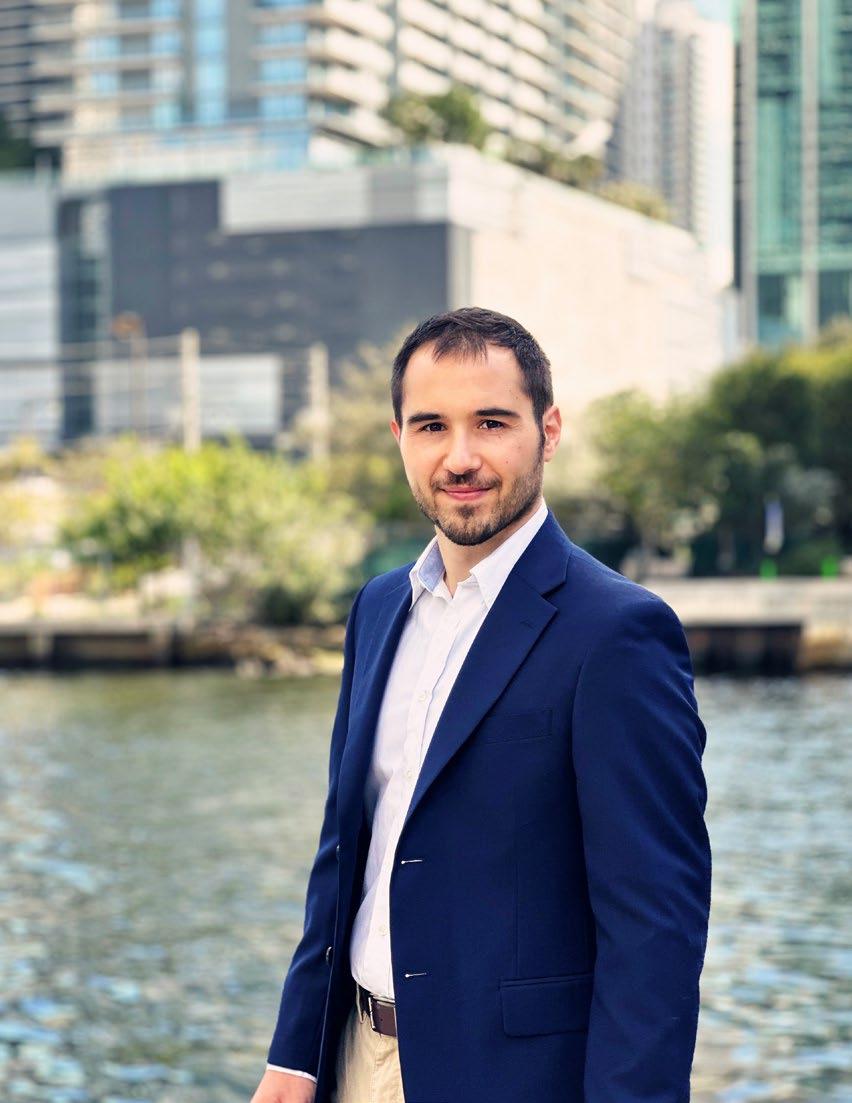
Primo Planta would play so much tennis that he struggled to find time to study.
“I’d get picked up from school at 5 p.m., would play tennis from 6 to 9:30 p.m. and was home at like 10 p.m.,” he says. “Sometimes I woke up at 5 a.m. not knowing anything about the exam that I had at 8.”
However, that didn’t stop him from excelling both in his studies and in tennis— accomplishments he credits to an obsessive work ethic. In the intervening years, that drive to succeed brought him to Driven Brands, the largest automotive services company in North America and one of the fastest-growing retailers in the US, as vice president of development.
When he reflects on his success, he’s brought back to the tennis court and to the classroom: two places that instilled the skills he’d need to help put the company’s growth on an upward trajectory.
“You work hard, you prepare, and if you want something, you put in a lot of hours to get it done,” he says.
That industrious mindset earned Primo Planta law and business administration degrees at the Universitat de Valencia, graduating at the top of his classes. In turn, those academic strides led to him receiving a full ride scholarship to Duke University’s Fuqua School of Business for a master’s in management, business, and finance.
He says his studies revealed the power of private equity and the opportunities it could create for others—something that became clear when he got to Driven Brands.
“Private equity was about companies investing in other companies and providing the means to growth to get them to the next level,” he says. “That’s what I’ve seen here at Driven. We’ve opened up a lot of opportunities for a number of people that wouldn’t have them any other way. The amount of wealth we’ve created is amazing.”
His first six months at the company as an M&A analyst, however, were pretty tough.
“At the beginning, we didn’t really know what we had to acquire, and we had to create our own job,” he says. “Looking back, it was a
little scary. It was my first real job in the US, and I didn’t really know what I was doing.”
He navigated that by being the first person to clock in and the last to leave, efficiently putting together sellers and franchisees to buy locations with a program. Because of those efforts, his success and responsibilities grew as the company did. Six months into the job, he managed to get franchisees to buy upwards of twenty units. After a year, he was selected for Driven’s management training program and was promoted to manager. Six months after that, he was called on to be director of M&A, a role in which he led the origination, execution, and integration of eleven add-on acquisitions for new Take 5 Oil Change locations, as well as some multiunit acquisitions.
Primo Planta ultimately moved into the real estate department, where he was responsible for organic growth at Take 5. He was later promoted to be in charge of the organic growth for all main brands at Driven: Take 5 Oil Change, Take 5 Car Wash, Auto Glass now, Meineke, and Maaco.
Today, after nearly eight years with the company and a VP title, Primo Planta has set his sights on making Driven Brands the fastest-growing oil change, carwash, and glass servicing chain in the world.
“I’m very convinced we’re going to get there,” he says. “And long term, the goal is to accelerate from there with successful openings and to reach a good level of US retail shop saturation over the next decade.”
Primo Planta is in charge of organic growth and is responsible for helping the company grow around 250 corporate openings and 170 franchise openings each year. That growth is reflected in the company’s 2022 third quarter financial results. It saw a 39 percent revenue increase in the third quarter of 2022 with 9 percent net store growth.
For those looking to grow, he offers this advice: don’t give up. “Work hard until late, and some ideas will come,” he says. “Keep trying and show that you really care, and that it won’t be because of a lack of effort if things aren’t happening for you.”
The VP realizes that the kind of growth his company has experienced takes having a strong team too. When you have the right people, the right processes in place and incentives to encourage groundbreaking work, success isn’t too far behind.
“What we’ve done is hire people who are hungry with awesome attitudes,” he says. “The typical person in my team is someone straight from college that really wants to do something in the real estate space, and we’re giving them the opportunity to gain that experience.”
”BY BILLY YOST
Ricky Hernandez reflects on going in-house at Concord as the company continues its musical expansion
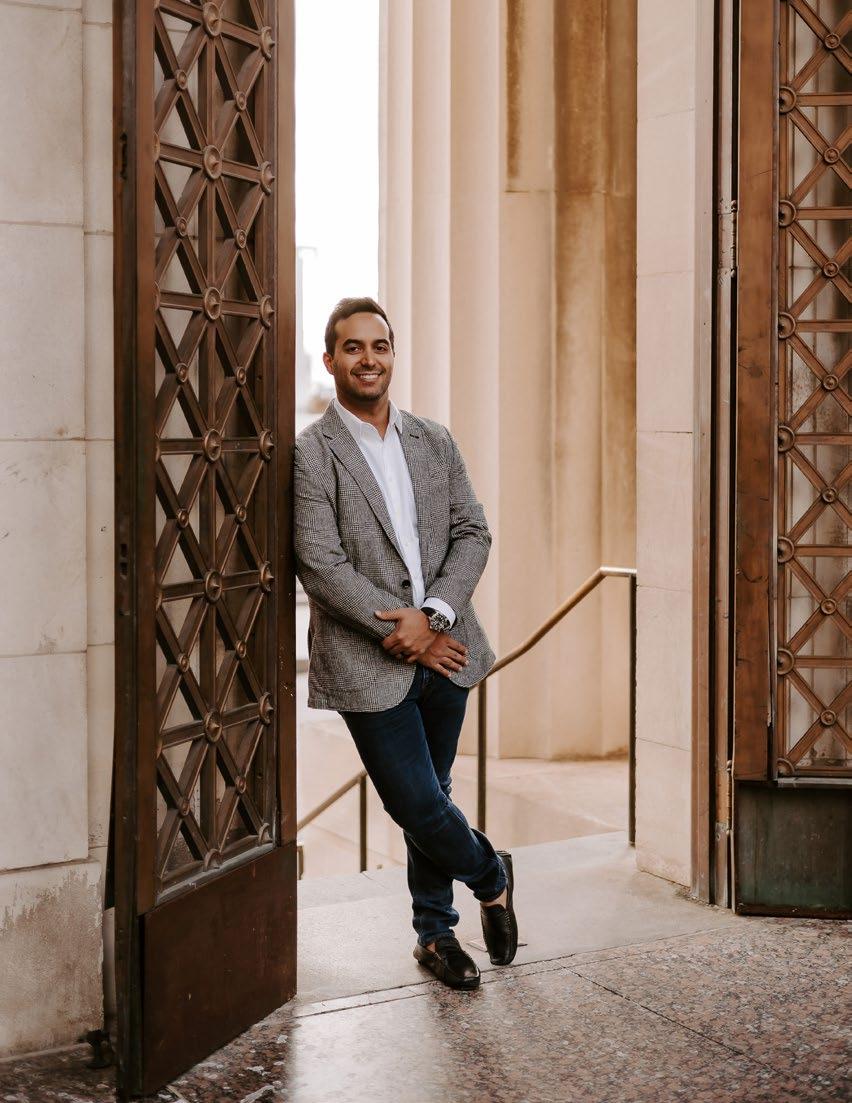
IF YOU HAVE EVEN A CURSORY INTEREST in the music world, you likely heard about Phil Collins and other members of Genesis selling their publishing copyrights (and various recorded music-income streams) to Concord for reportedly upwards of $300 million.
In an era where it’s becoming increasingly common for artists to sell their catalogs, the Collins and Genesis deal was one of the most high-profile to date, along with others such as Bob Dylan, Bruce Springsteen, Neil Young, and Stevie Nicks.
That said, Concord is no stranger to major acquisitions, having previously purchased catalogs including Downtown Music Publishing and the independent Latin music company Fania. While it may have roots dating back to the ’70s, the Concord of today—with multiple active music labels, a music publishing arm, and a theatrical division—is incredibly young.
Concord’s wide portfolio and business interests make it a rare beast in the music business. Its labels represent everything from cutting-edge indie rock to historic jazz imprints to its recognizable KIDZ BOP series which has sold over twenty-three million albums and generated over eight billion streams.
And that’s just one part of Concord. Concord Music Publishing owns or administers over eight hundred thousand copyrighted works, spanning nearly two centuries of songs and includes famed classical music publisher Boosey & Hawkes, and joint ventures with Hillary Lindsey’s Hang Your Hat and Pulse Music Group.
Concord Originals creates film and TV projects anchored by Concord’s artists, music, and theatrical works. And Concord Theatricals is the world’s most significant theatrical company, and includes the catalogs of Rogers & Hammerstein, Andrew Lloyd Webber, Tams-Witmark, and Samuel French.
Ricky Hernandez had already been working in music. Ever since managing a band in college at UCONN, Hernandez knew where he belonged, even if it took him some time to make
his way to Nashville. The current vice president of business and legal affairs at Concord spent significant time in private practice, working in entertainment, corporate, and commercial finance law prior to going in-house, including a dream job at well-known firm Shackleford, Bowen, McKinley & Norton.
“I absolutely loved that job and, to be honest, I really wasn’t looking to make a change,” Hernandez says. “I always thought an in-house job was maybe something I’d pursue down the road.”
But a conversation with General Counsel Amanda Molter quickly changed his mind. The sheer variety of work, and the opportunity to see an entire project through to the finish line, were both significant reasons for making the move in-house, Hernandez explains. “My day-to-day might be entity restructuring, working on compliance policies, or assisting with our board reporting.”
“On the entertainment side, I got to work on the [previously mentioned and incredibly high-profile] Phil Collins and Genesis deal,” he says. “You get to do complex and interest-
ing work from a completely different perspective in-house, where you see how what you do interacts with the rest of the business. I love it.”
In December 2022, Concord announced that it had completed “the largest assetbacked securitization offering of music rights in the industry to date in terms of both size of issuance and number of assets (over one million copyrights),” a deal which Hernandez admits was challenging in several ways.
“The securitization process presented some unique and fairly novel questions as to how to make sure bondholders and rating agencies understood that these are living, breathing assets,” Hernandez says. “We’re not just putting these in a box and forgetting about them. We need to be able to exploit these songs and recordings, adjust underlying contracts if necessary, and find new ways to grow our business in the digital age.”
Though he feels he is young in his own career, Hernandez says he’s already been the beneficiary of too many mentors to count and
their advice still rings true to any early-career professionals looking for inspiration.
“I don’t think I really understood how the mentor-mentee relationship worked early on,” the VP says. “I thought if someone wanted to mentor me, they would just do it. That seems ridiculous looking back. I was coming from a place of not wanting to bother busy and successful people, but I really did need that help.”
Hernandez learned a valuable lesson early in his career: just ask. When Hernandez got to Nashville after law school, he set up as many informal coffee dates with more senior professionals as he could. If the meeting “clicked,” he’d ask if it was OK to update
this new connection with his progress every quarter or so.
“Chances are, people further along in their careers have already encountered the challenges I might be facing,” Hernandez says. “They understand how difficult it can be and likely have great advice, but you have to be willing to ask for help and seek out that mentorship.”
When asked about the cataclysmic shift in the music business over the last two decades, Hernandez is strangely relaxed. He says the leadership at Concord understands that change is inevitable.
“In some ways, the music business is changing drastically, but it’s also the same as it ever was. It’s a relationship business,” the VP says. “You adapt and do the best you can to get the best music out to the world. Concord’s mission is to champion artists, elevate voices, and impact culture. With those goals in mind and Concord’s laser focus, we will find a way.”
Bradley is a full-service, nationally recognized law firm known for its exceptional legal knowledge, unparalleled client service, and impeccable integrity. With over fifty highly skilled attorneys, our leading intellectual property practice group offers comprehensive protection and enforcement services for businesses in various industries. Our nationally ranked trademark team, led by Tim Capria, provides top-notch domestic and international trademark prosecution and portfolio management services. We proudly extend our congratulations to Ricky Hernandez for his outstanding achievements and look forward to our continued relationship with Concord.
“
In some ways, the music business is changing drastically, but it’s also the same as it ever was. It’s a relationship business.”BY BILLY YOST
Spurred on by the events of 9/11, Amy Garzon advised on countless terrorism cases before coming in-house at Wells Fargo and finding work/life balance
AMY GARZON WAS AHEAD OF SCHEDULE prepping for a test early in her first year at New York Law School. The exam would be the first testing ground for the law students to get their bearings and understand what would be expected of them over the next three years.
Garzon was sitting in her classroom, studying, and waiting for class to begin. The students heard a loud explosion, what sounded like a truck coming off a curb, or maybe a car accident. But there was something just too large and encompassing about the sound to be any of those options.
It was September 11, 2001, and Garzon was eight blocks away from the World Trade Center.
Garzon and her friend wound up essentially hitchhiking back to the Bronx. They were well on their way back home before they heard that the towers had fallen. Fortunately, they made the decision to leave immediately, or they might have been locked down near Ground Zero.
The tragic events of 9/11 had a profound effect on Garzon, now lead counsel at Wells Fargo, and her classmates, but for very differ-
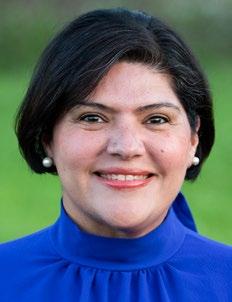
Amy Garzon is the proud daughter of an Ecuadorian father and a Puerto Rican mother. Her parents met when they moved to the same block in the Bronx. Garzon has fond memories of her hardworking family, especially her paternal grandmother who cared for her while her parents worked.
Garzon inherited their hard work ethic. In high school, she got a cashier job at a supermarket, and was promoted to bookkeeper very quickly thereafter. Garzon was balancing the books for a business before she was finishing her algebra homework.
www.sullcom.com
ent reasons. “A lot of out-of-state folks from my law class just didn’t come back,” she says. “I think the experience was just too much for a lot of them, so our law school class wound up being pretty small.”
Garzon, however, had the opposite reaction. The budding lawyer felt called to service. She had initially pursed a career in the FBI, but was told her she would have better odds with a JD. Garzon kicked-off what would eventually be three different government stints, first clerking for the US 5th Circuit Court of Appeals, then the Eastern District of New York. Then, after gaining some formative firm experience, she clerked at the US Attorney’s Office for the Southern District of New York.
“My role clerking for Judge Nina Gershon in the Eastern District of New
York felt like it was all terrorism cases,” Garzon says. That included working on various issues related to Arab Bank, a civil lawsuit for terrorist financing, and a criminal trial, United States V. Siraj, where the defendant plotted for several months to detonate explosives at several locations including the 34th Street subway station at Herald Square and the Verrazano Narrows Bridge.
“That whole clerkship was built on issues surrounding terrorism,” she says. “It was such a formative part of my early law school and early law career; I know it also pushed me towards the US Attorney job.”
Garzon would do incredible things with the US Attorney Office. She says it’s probably the most exciting job she will ever have. The job was all-consuming, taking up virtually any available time she had, and also
Sullivan & Cromwell celebrates with pride and admiration our client and friend, Amy Garzon and the team at Wells Fargo for her remarkable career.
Amy, it is our honor to work with you.
time she didn’t. If the job called at one in the morning, the lawyer was ready and willing. In her own words, the lawyer just doesn’t know how to do a job halfway.
It was exhausting, it was educational, and it was ideal for Garzon, just not for other interested parties. “My husband sat me down one day and said that what we had didn’t seem much like a marriage,” she says. “I heard him loud and clear, and to be able to have a family and a life outside of work, I knew it was time to make a change.”
Fortunately, Garzon has found an ideal home at Wells Fargo, where she’s been for nearly eight years. It’s sophisticated work that seems to change every day. If you’ve read about it in a newspaper, there’s a good chance it’s come across her desk.
The lawyer has worked on operational risk, internal investigations, regulatory enforcement, and collaborated on litigation matters. “I can’t emphasize this enough,” Garzon says. “I love the team that I work with. I’ve been out of law school for almost twenty years, but just feel like I’ve now come to recognize the value of a good team. They make all the difference, and I’m so lucky to be here.”
Now with a four-year-old daughter and a six-year-old son, Garzon and her husband are working on their goal of traveling often, including visiting every national park. It may not be prosecuting criminals in the wee hours of the morning, but it sounds pretty good. And she sounds happy. She’s has found the balance of a family and meaningful work.
Sullivan & Cromwell is pleased to recognize the accomplishments of Amy Garzon, an expert in navigating complex government investigations, a dedicated and strategic advocate and partner, and a leader in promoting the advancement of diverse talent in the legal industry. We are proud to have the honor of working with her.After 141 years, Evergy finds new ways to serve customers sustainably and further diversify the energy industry through its commitment to diversity
company in the state of Kansas, with more than forty power plants generating sixteen thousand megawatts of electricity throughout Kansas and Missouri. Evergy serves more than 1.7 million residential customers and covers over 28,130 square miles. The publicly traded company has been providing energy to the Midwest dating back 141 years.
Despite its tenured history, Evergy continues to find new ways to serve its customers. In March 2023, the company announced that its Hawthorn plant in Kansas City, Missouri, is now providing ten megawatts of solar energy, thanks to a new twenty-two-thousand-panel solar array.
The solar panels are spread across sixty-seven acres northwest of the plant, and half the energy produced is currently dedicated to customers who have opted in to Evergy’s solar subscription program. Those customers pay a monthly fee to guarantee part of their energy usage comes from solar.
“Using Hawthorn’s existing land and infrastructure provided Evergy the opportuni-
ty to construct one of the most cost-effective and the largest solar subscription facilities in Missouri,” said Chuck Caisley, Evergy senior vice president and chief customer officer, in a prepared statement. “Customers will benefit from these savings for years to come through access to economic local renewable generation.”
In early 2023, about half of Evergy’s total power came from carbon-free sources. The recent solar project denotes a continuing push to provide sustainable energy from diverse and environmentally sound sources.
Along with diverse energy, Evergy is helping add more diverse voices in the building space. The company recently announced the creation of Accelerate, a business development program created in partnership with Burns & McDonnell and Ralph G. Moore & Associates. The program, made up of forty small and diverse business partners, is aimed at strengthening supplier-side diversity processes and continuing to build out the capacity of diverse suppliers.
“The Accelerate program will provide a platform for mentorship, business
development training, and ultimately the innovation required to deliver safe, strong critical infrastructure projects,” said Tammy Martin, a director at Burns & McDonnell, in a prepared statement. “Our goal for this program is to position Burns & McDonnell, Evergy, and our partners for new and expanding opportunities and drive economic development in our community.”
Those participating in the program will engage in monthly sessions over a six-month period, learning how to become more competitive in the construction industry, increase the firm’s winning potential for work, and improve overall financial stability. Evergy, as well as Burns & McDonnell, are providing mentors for the duration of the program.
Accelerate is in line with Evergy’s diversity, equity, and inclusion (DEI) commitments, including CEO David Campbell’s own pledge to join the group CEO Action for Diversity & Inclusion, a CEO-driven business commitment by over 2,400 signatories who want to advance diversity and inclusion in the workplace.
Evergy has also published its supplier diversity strategy, its DEI strategic priorities, and actions taken by its business resource groups. Campbell also signed a pledge to commit at least 10 percent of Evergy’s spend with diverse suppliers.

International businesses present unique challenges— and opportunities—for corporate citizenship in multiple countries. The executives featured here thrive in navigating cultural shifts worldwide.
178. GIl Delgado, Nova Ltd 182. Daniela Almeida, Sutter Health 188. Diana Rey-Marrero, Cummins Inc. 199. Benjamin Martinez, Falvey Insurance Group 203. Alejandra Flah, Citigroup Inc.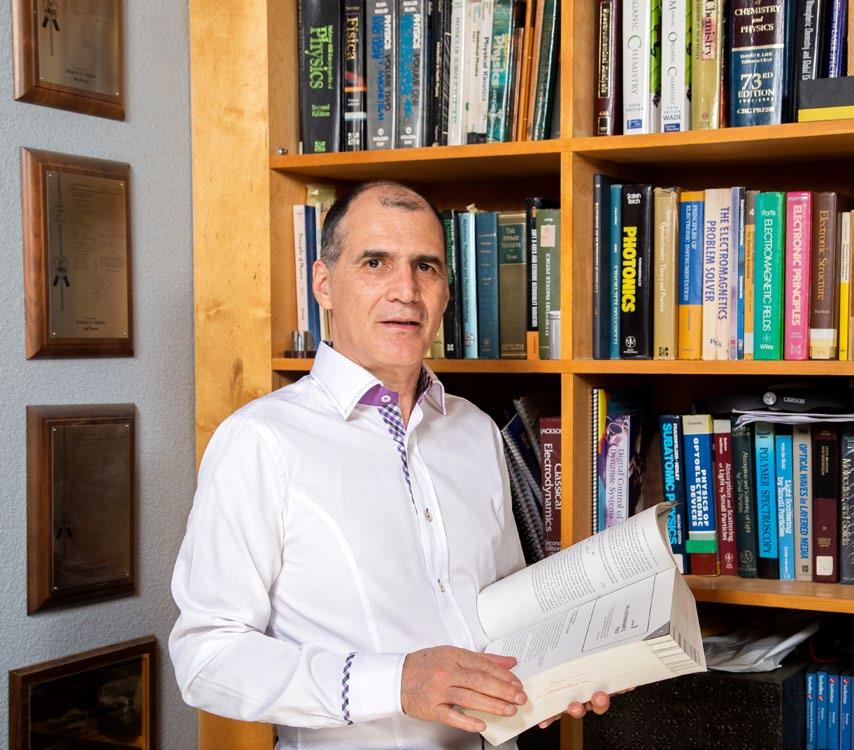 Gil Delgado
Gil Delgado

AS A CHILD, SCHOOL WASN’T EASY for Gil Delgado. He was born and raised in Mexico, and when he was seven years old his family began coming to the US for seasonal field work. He attended school in California, but Delgado was not at home in class, where he understood little English and had few minority peers or role models. His education was interrupted when the family returned to Mexico for several months each year.
At age fourteen, Delgado moved to Mexico City for high school; there, the challenges were different. He had to catch up in Spanish, and had little foundation for subjects like algebra and geometry. But he remembers the first lecture of his physics course, which connected his childhood interests to the course of his life today.
“The teacher walked in and said: ‘Your brain knows how to do physics. I see you guys playing volleyball, and your brain is calculating how hard, at what angle to hit the ball to make it over the net. I’m going to teach you how to put that on paper,’” Delgado says. He calls it an “immediate awakening,” the kind of system he realized he’d been seeking since childhood. “It was fascinating to me,” he says, “that you could take something you could observe and describe it with physics equations and math.”
Today, Delgado is vice president of advanced technology development at Nova Ltd., headquartered in Rehovot, Israel, with R&D centers in Germany and the US. The company provides metrology solutions for advanced process control used in semiconductor manufacturing. In the role, Delgado develops technology strategies for the
company’s future; he tends to a state-of-the-art innovation center and directs a growing team of top-tier science and technology professionals.
That physics teacher saw Delgado’s extraordinary potential and encouraged him to pursue higher education in physics. The best opportunities were in the US—but Delgado loved Mexico, where he had the right balance of community and independence. Nevertheless, he eventually followed his teacher’s guidance but faced another cultural adjustment when returning to American customs and the English he had scarcely practiced.
Homesick, he returned to Mexico once more to marry his longtime sweetheart, and they started a family. Still searching for a path, he joined the Navy and worked as an aviation electrician aboard an aircraft carrier, intending to continue his studies later.
“Once I got out of the Navy, my wife and I entered university, but we had one child and a second on the way,” he says. “Getting
a degree with two kids was very challenging but very satisfying, and my teachers all encouraged me to continue my education.”
Thanks to a major scholarship and the ongoing support of his professors, he stayed in Fresno for his master’s degree and later earned a doctoral degree at University of California, Davis.
Looking back, Delgado is grateful to the mentors he had. Still, he wishes he had seen more minority role models in the field. While he was pursuing his undergraduate degree, friends would ask him what he needed college for, and at times it was difficult to find an answer. He didn’t always have a clear sense of the professional role he wanted. Meanwhile, teachers pushed him to pursue more and more education.
“At the time I was on my academic journey, most Hispanics were focused on a high-paying job rather than something they were passionate about,” the VP explains.
Diversity is going to bring more fruitful ideas, and this is what we need. Different imagination, different ideas, different ways of thinking is needed in order to solve some of the most complex problems in the world.
“More mentors in the field could give guidance and advice on paths [they] should seek. I believe that we can find success by following what we’re passionate about.”

With luck and persistence, Delgado has done just that. And at this stage, he seeks opportunities to inspire others to do the same. Nova’s leadership intentionally seeks and empowers professionals from underrepresented demographics as part of the company’s ESG strategy. For a growing company in a competitive field, it can be an exciting advantage. For his part, Delgado hires and mentors in pursuit of that goal.
He came to Nova from a larger firm, so he’s had to adjust his approach to staffing and resources, but he wants to help turn it into a billion-dollar company. Getting there will take more than a big budget or a large
team. He shared that the key will the people and the vision.
“I’m a visionary type [of] leader. I like to empower, inspire people, [and] earn their trust. I like to look at the big picture and the long-term vision,” he says. “Having the right alignment makes us successful. I feel like I’m accom plishing that, and I have the support of management and this company.”
In time, leaders like Delgado can help spread those advantages through out the field. “I am proud to work for a company that has an accepting envi ronment and values gender, cultural diversity, and inclusion. Diversity is going to bring more fruitful ideas, and this is what we need,” he says. “Differ ent imagination, different ideas, differ ent ways of thinking is needed in order to solve some of the most complex problems in the world.”
Congratulations Gil Delgado on this well-deserved recognition. We are honored to partner with you and the Nova team.
Sutter Health’s Daniela Almeida built an impressive legal career by trusting her process and mentors
WHEN BRAZILIAN-BORN DANIELA
Almeida was a twenty-something, she drove across the US while spending most of the trip debating which law school to attend.
“I think about the way I jumped in with both feet in many [life and career] situations,” she says. “I got in the car and just started driving. I always had a good support system. I knew I could jump and if I didn’t land OK, there would be another option.”
She was driving from the University of Buffalo School of Law and deciding whether to attend University of California (UC) Law San Francisco (formally UC Hastings) or UC Davis School of Law; she ultimately decided to finish her studies at UC Davis. When it came to her interest in the law, the young Almeida noticed her love of arguing with her parents but didn’t have much insight into what a legal career might look like.
“I thought I could go to law school and do something in international law because of my background, as I spoke Portuguese,” says the current deputy general counsel of Sutter Health, a not-for-profit integrated health delivery system in Sacramento, California, operating twenty-four acute care hospitals and over two hundred clinics in Northern California. “I went law school thinking about that direction and then I took a year off before law school to be sure and lived and worked in Rio de Janeiro, Brazil. That was really the spark that took me to law school.”
Looking back, she notes that common threads throughout her career and life have been the qualities she brings to the table and the ones that other mentors generously provided her. Her first big break with a mentor unfolded directly after law school.
“I was a twenty-three-year-old young looking attorney and my first boss, Ann Herman, just let me have all these opportunities that gave me a lot of confidence,” the deputy general counsel says. “She sent me into depositions, court, and client meetings during my first year out of law school. I really built that foundational confidence
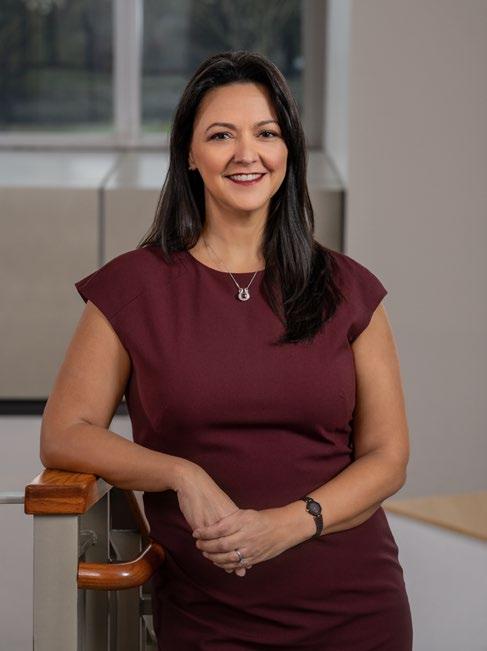
that I don’t know if a lot of attorneys get right out of law school.”
Almeida has been at Sutter Health for twelve years and consistently strives to create similar support systems for her team. She starts by sharing the best piece of advice she’s ever received.
When Almeida began her career at Sutter Health as assistant general counsel, she was the only member of her team and one of thirteen in-house attorneys across the company. Today, there are sixty-five in-house attorneys. As deputy GC, she manages a team of four, supporting the commercial and governmental contracting and litigation teams as well as the revenue cycle team.
Twelve years ago, Almeida understood that growing into her role would require creating a system that could support her client
and team, which also meant that she needed to create one that could support her.
“The best advice that somebody gave me was to find a mentor who you can be really candid with,” she says. “So, I asked my boss to recommend a mentor because I wanted somebody to talk candidly about who wasn’t the person in charge of my growth. I had a VP from a different area of the company who I met with on a twice-monthly basis as I was developing my leadership, my team’s structure, and my plan for my career.”
Almeida now works to mentor and lead her team in the same ways her past and present mentors have done for her.
“Mentorship makes a huge difference not only in building your confidence but also facilitating those opportunities to see if this is what you really like,” she shares.
”I know a lot of attorneys don’t get those opportunities . . . [and] that really delays their growth opportunity. I got lucky with Anne, and I think the same thing happened when I started working and representing Sutter as a client twenty years ago.”
Building a team during the COVID-19 pandemic has also pushed her to acknowledge the small and big ways she could encourage her team to feel like a team, whether they were working virtually or in person. She found that Zoom breakfast meetings helped build team camaraderie, while weekly meetings to look through Almeida’s calendar helped encourage individual growth opportunities.
“I sit down with my attorneys at the weekly meetings, and we all look at our calendars,” she says. “I’m totally transparent on what I’m working on . . . and I’ll [ask] ‘What looks interesting to you that I’m working on or that you want to be part of?
“
best advice that somebody gave me was to find a mentor who you can be really candid with.”
We then work together where appropriate to get them invited to the meeting or more involved in that project.”
Almeida also collaborates with outside counsel. “Daniela facilitates collaboration by getting all of the key client stakeholders in a room, making everyone feel comfortable to openly share their views, affording our collective team the chance to brainstorm creative solutions to complex issues,” says Patrick M. Ryan, head of litigation at Bartko Zankel Bunsel & Miller, the boutique law firm representing Sutter in antitrust, privacy, and commercial litigation matters.
Almeida admits that a fear sometimes bubbles to the surface when thinking about
mentor-mentee relationships: “how do I ensure we’re not wasting each other’s time?” Both the mentor and mentee sit with that question and she has found that the best way to answer it is head on.
The executive recalls that during her first meeting with her new Sutter mentor, she confessed that she didn’t truly know what being a mentor to Almeida would mean.
Almeida recalls answering: “What I need from you will probably change from time to time. Right now, what I need is a safe, candid place for me to talk about what I want to do without feeling like I’m reaching for the wrong plans. And you’re going to let me brainstorm and you’re going to let me vent on bad days, and you’re going to let me celebrate on good days where I don’t feel
like I’m tooting my own horn to my boss for no reason.”
She adds, “Just knowing how much it meant to me to have those good mentors, I always try to do the same.”
Almeida’s career always brings her back to the cornerstones that helped kick it off—trust in her process and her caring support system. She never felt a tug that she had to do it all alone or that the only way she could move the needle was with others moving it for her. It was about striking a formula that worked for her. That same formula has molded her take on growing a family and her career.
“I think the problem with calling it work/life balance is something’s always winning. So, that’s really hard,” the deputy general counsel says. “Three of the
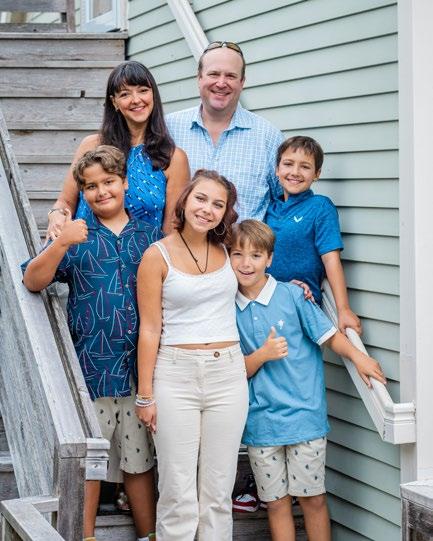
attorneys who work for me are parents and two of them are young mothers. Sometimes, they’ll struggle and say, ‘You know, today I felt like a really bad attorney, and yesterday I felt like a really bad mom,’ and it’s because you’re trying to balance. I don’t really love that term because balance means something is losing. I try to integrate my work with my family, making it more than okay to have both of those parts a part of you.”
Across mentorship, career, and family, Almeida encourages her team (and herself) to create spaces where they can bring their whole selves. The benefits transcend the momentary discomforts or unknowns that vulnerability can bring to the surface. Similar to her cross-country road trip, jumping in feet first can only lead to growth.
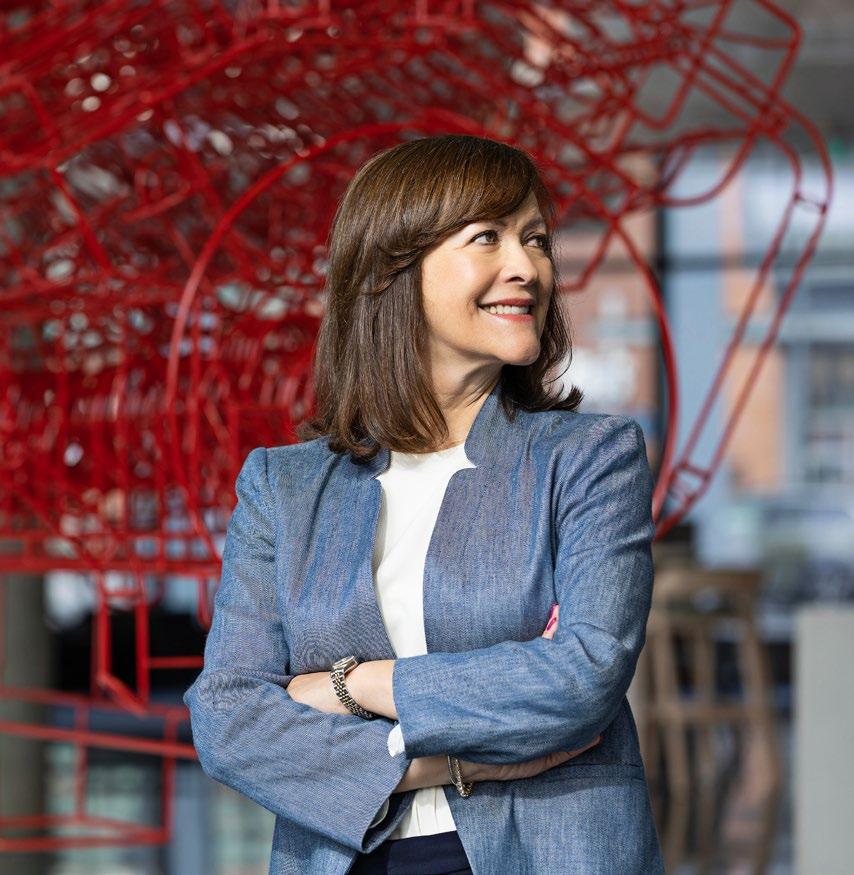
Diana Rey-Marrero became the first Latina officer in Cummins Inc. history by staying humble, curious, and accountable
BY NOAH JOHNSONwhere her team delivers accounting, human resources, administrative, and information technology services to over 60,000 employees in 194 countries, she didn’t just become the first Latina officer in company history. She had a domino effect on the company, opening doors for other Latinas to follow in her footsteps at the global power technology company.
But to what does she credit her trailblazing and legacy-building success? Being willing to say, “I don’t know,” turning to those who do for help, and having courageous accountability.
It’s a mentality the native of Bogotá, Colombia, developed early in life. After graduating high school at the top of her class, a teenage Rey-Marrero didn’t expect the initial path to her college degree to be paved with Fs. She describes her first semester at the Universidad de los Andes in Bogotá, where she majored in industrial engineering, as being “pretty brutal.”
“I was a top student in high school but in my first semester, I could barely get a C in some subjects,” she says. With those struggles came feelings of inadequacy and then an urge to switch majors. But in what Rey-Marrero calls a “courageous accountability moment,” her mom advised against it.
“Just figure out the help you need to get on the other side of it,” her mom urged. “Even if you decide you don’t want to continue, finish the semester and figure out how you can break through.” Despite her fears, Rey-Marrero listened. As a result, she not only graduated but also gained an insight that would aid her in her career.
“That helped me when I went into my professional career because you develop this thick skin to realize there’s a lot of things you don’t know and that you don’t need to know it all,” she says. “I’d do my best but what I’d need to do is tap into the help around me to figure out how I’m going to be successful.”
When Diana Rey-Marrero stepped into her role as vice president of global business
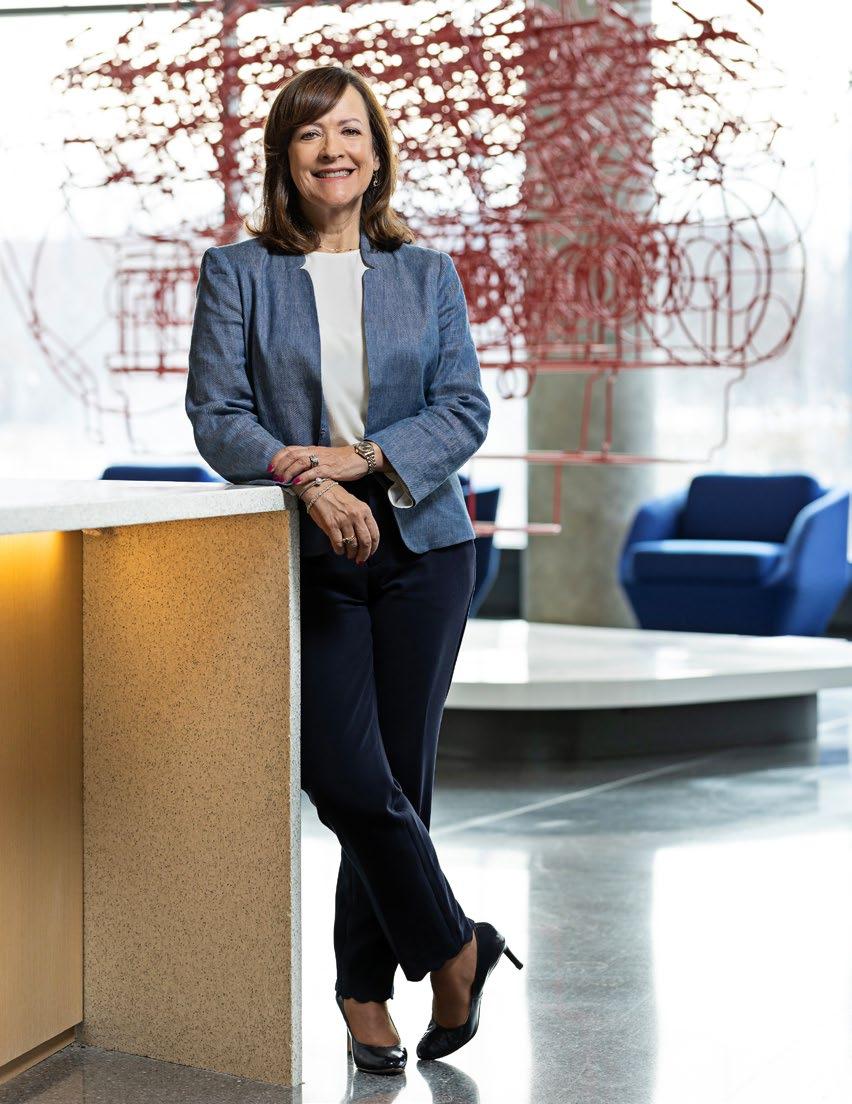
With more than forty years of experience partnering with and managing manufacturing organizations across the globe, HCLTech leads our customers as they transform their traditional business processes into next generation operations that are geared for better performance. Our MVision framework is purpose built to help manufacturing companies navigate the current dynamic landscape by deploying cutting-edge solutions that help them innovate and ensure profitability, while also improving the bottom line and creating avenues to increase the topline.
The MVision framework also empowers manufacturing firms to prepare for a hyperconnected and greener future. Its comprehensive approach helps define a road map for digitization, automation, and omnichannel engagement while fostering environment first business practices. The pillars of MVision are spread across all aspects of the global manufacturing industry, with a particular focus on business, digital, operations, and engineering. At its core, the MVision Nucleus enables the creation of an intelligent and disruptionproof ecosystem for industry 4.0 with an array of future ready services powered by emerging technologies and customized digital solutions.
Manufacturing is critical in shaping our world’s future by driving innovation, increasing efficiency, and creating value for stakeholders. With our MVision framework and extensive industry experience, we are supercharging industry progress for today and well into the future.
Learn more at hcltech.com/mfg.
That’s what she did from then on, and it worked. She went on to spend the first half of her career with 3M, where she served in several manufacturing operations, supply chain, quality, and engineering positions over a span of thirteen years. Throughout that time, she focused on being a servant leader and empowering team members as experts in their roles.
Her aptitude for leadership and ability to deliver put her on the fast track up the company ladder, taking on more responsibilities. Before she knew it, she was spearheading various production planning efforts, including the implementation of automated systems for several countries in Latin America.
That success continued four years later, when the company called on her to be a quality engineer in St. Paul, Minnesota. She was both nervous and excited at the prospect of starting her professional life in the US, but nothing could have prepared her for the
culture shock that she’d experience upon her arrival. Not only was she the only Latina in a management position, but she also had trouble communicating with her American peers.
“My concern was that people would think I wasn’t smart or competent just because I couldn’t communicate [in English],” she says.
As the fear and doubt that she’d managed to stave off after her academic struggles in college started to creep back in, she did what had worked for her before—she asked for help. She asked some of her colleagues to offer feedback on how she communicated and pronounced words. Others proofread documents she sent to senior management. Their assistance helped bolster Rey-Marrero’s self-esteem and courage, and strengthened her bond with her team.
In hindsight, she says those experiences prepared her for another challenging time she’d face down the road. After taking a six-year hiatus from her career with 3M,






Evolving competition. Supply chain disruptions. Changing customer expectations. And a global push towards decarbonization.
At Infosys, we're leveraging our manufacturing industry know-how and enterprise transformation capabilities to help manufacturers turn every threat of disruption into the next opportunity to disrupt.


Streamlining your operations and improving business efficiency was never this easy. Our team of experts has a proven track record of helping enterprises migrate their workloads from on-premise data centers to the cloud. With our comprehensive migration and continuous modernization plan, you can focus on your business while we take care of the rest.
We are incredibly proud of our long standing partnership with Diana & team at Cummins in establishing a strong digital foundation through supercharged cloud transformation – from migration and modernization.





Cummins is proud to have Diana on our executive team. Her leadership is invaluable as we work together to power a more prosperous world for all our stakeholders.
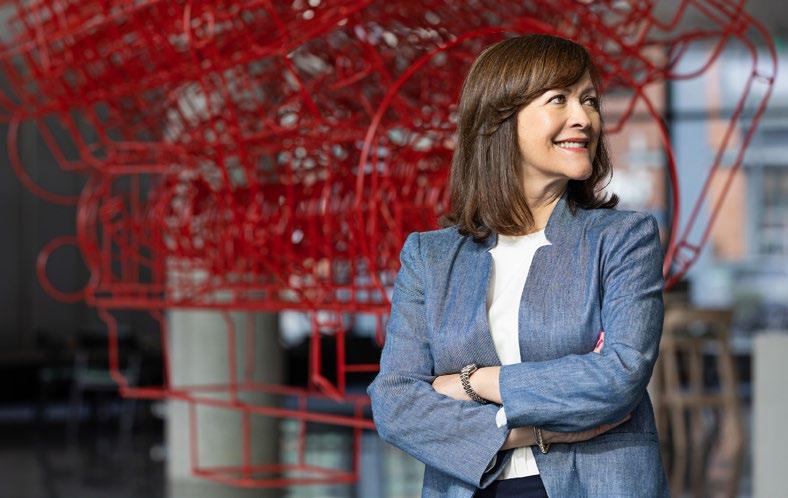
to care for her daughter, one thing echoed throughout Rey-Marrero’s mind: “I need to get back to work,” she recalls.
However, while she recognized the impact she could have in an organization, she knew companies would view the gap in her résumé with concern. That’s why she confided in a neighbor, who suggested she tackle other career aspirations. Rey-Marrero immediately thought of HR, having seen the importance of human capital firsthand in her manufacturing and supply chain experiences. The neighbor challenged her to figure out the basics of the industry and to go for it.
The advice gave Rey-Marrero the push she needed to get an HR certification from Cornell University and to start searching for jobs. About nine months into her search, she was hired by Printpack Inc., where she helped launch a leadership development program for manufacturing plant managers. There,
she also helped implement a new payroll system, HRIS system, and a talent acquisition organization. Heading back into the workforce was tough, Rey-Marrero admits, noting there was a lot she had to learn about new technology. But having a great support system helped her weather the storm.
“I was very fortunate to have the unwavering support of my husband and people that were my advocates, who really wanted me to be successful,” she says.
And Rey-Marrero isn’t the only one grateful for how far she’s come. “We are incredibly proud to work closely with Diana and the team at Cummins,” says Ajay Bahl, chief growth officer for Mega Verticals at HCLTech Americas. “While Cummins is on the path of digital transformation for business agility and resiliency, our trusted partnership with Diana and team in establishing strong digital foundation through cloud migration to modernization is a
That helped me when I went into my professional career because you develop this thick skin to realize there’s a lot of things you don’t know and that you don’t need to know it all.”
pivotal phase in our long-standing partnership with Cummins. Our heartiest congratulations to Diana for getting featured in this edition; her commitment to technology excellence and promoting equity, diversity and inclusivity in the workplace has inspired many greatly.”
She brings all those experiences to bear at Cummins, where she decided to work because of the company’s commitment to diversity, equity, and inclusion. Twelve years later, Rey-Marrero is energized by the company’s mission to help its diverse end customers succeed as the energy transition happens and to lessen its impact on the planet. She felt honored to be named the first Latina officer in the company’s 103-year history, but felt even more proud of the three other Latinas who came after her, eager to support them as so many people did for her.
Another crucial part of her role is partnering with technology leaders who are








Building greater futures through innovation and collective knowledge
The Infosys Industrial Manufacturing practice undertakes supply chain transformation to rationalize the supplier base, capitalize on economies of scale, and grow the business footprint. We digitize disparate processes for sustainable supply chain operations by establishing a digital command center. The center integrates applications in the supply chain ecosystem to aggregate data, which is used by analytical tools to predict potential events/failure points. Further, integration facilitates automation of supply chain processes as well as the use of machine learning models to align production capacity, customer orders, sales forecasts, and procurement plans with logistics.
Our Industry 4.0 ecosystem for smart supply chain operations blends telematics, blockchain, and traceability solutions to track inventory from suppliers to customers. In addition, it helps industrial manufacturing enterprises cultivate global and local suppliers. Our machine learning-based tool for real-time supplier risk management assigns operational risk score to suppliers based on parameters such as past performance, quality, lead time, sustainability practices, and financial records. Our tool collates data from enterprise systems, newsfeeds, social media, and third-party reports. The operational risk score enables procurement managers to negotiate supplier contracts and make informed purchase decisions.
Learn more: infosys.com/industries/industrialmanufacturing/industry-offerings/ supply-chain-transformation.html
as committed to celebrating diversity and fostering inclusion as Cummins. Infosys Senior Vice President and Industry Head Vijay Narayan says, “My team and I work closely with Diana on key initiatives in IT infrastructure and human resources. Her passion to nurture diversity and inclusion is truly inspiring and has directly impacted the lives of many.”
Outside of work, she’s focused on empowering Latinos as a board member of Conexion Americas, which aims to build communities that create opportunities where Latino fami-
lies can belong, contribute, and succeed. It’s a passion that’s fueled Rey-Marrero since she arrived in the US.
“I arrived with a lot of privilege. I came as a professional to work for a great company, and I had many doors open for me. That’s not the case for many Latinos. So, I’ve wanted to ensure in one way or another that I could contribute,” she says.
Congratulations Diana, and thank you for the valued partnership. —Your friends at Dell Technologies
“
I arrived with a lot of privilege. I came as a professional to work for a great company, and I had many doors open for me. That’s not the case for many Latinos.”
At Falvey Insurance Group, Benjamin Martinez uses his international and cross-functional experience to bring teams together
Martinez had his education mapped out: he’d get an undergraduate degree in economics and, after that, go on to get an MBA. Inevitably, Martinez did both. However, there was another piece to the puzzle that he didn’t plan for: an eleven-year stint in Europe.
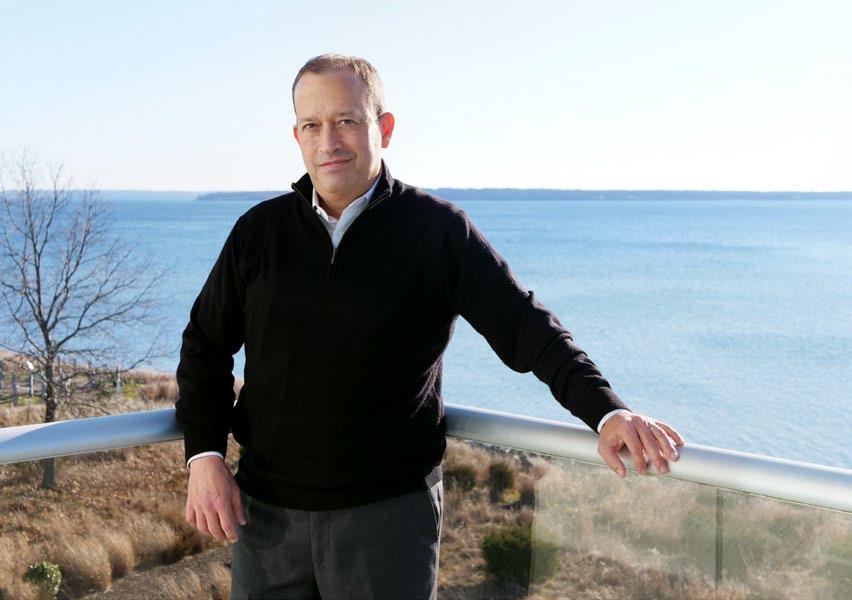
While Martinez did get his economics degree, he also minored in Spanish and German. So, after graduating and beginning his career, a role at Fidelity Investments brought him to Germany. “I was with them in the US for about six years when a memo went around about the Luxembourg office. They needed three people who spoke German to come out for three months. Ninety people
applied, and I was one of the fortunate three that got selected,” he explains.
However, for Martinez, that three-month assignment turned into a full relocation. He went on to stay there for another five years, working across western and central Europe. “The offices where I worked had people from over fifteen different nationalities. Being able to connect with them and experience the different ways of looking at challenges and opportunities was incredible and contributes to how I approach similar situations today.”
But being abroad didn’t distract Martinez from his goal of getting an MBA, and after a couple of years of working in Luxembourg, he began applying to schools. When he let his
boss at Fidelity know, however, a point was raised: why not apply to programs in Europe, and continue working?
“I had done my homework. I knew that the University of Chicago had an executive MBA program that, at that time, was based in Barcelona. So, I said to him, ‘I tell you what, if I can get into that program, I’ll stay.’” Sure enough, Martinez got in.
“At one point I realized that I was an American living in Germany, working in Luxembourg, and going to school in Spain,” he says. Commuting across the GermanyLuxembourg border each day for work, traveling across Europe regularly, and working full time while going to school, he
wonders how he was able to do it all. “In the end, I made it work. For me, the most effective method was calendaring everything—all the way down to chapters in my textbook,” he says.
From there, Martinez went on to work for a Luxembourg bank, marketing and selling its custody and fund administration services, and, later, for a British mutual fund company, helping to strategically build their distribution in countries across Europe. After stints with additional mutual funds and insurance entities, he got into contact with Falvey, an insurance group that specializes in supply chain coverage.
“For me it was a great opportunity to diversify my financial services background,
“The offices where I worked had people from over fifteen different nationalities. Being able to connect with them and experience the different ways of looking at challenges and opportunities was incredible and contributes to how I approach similar situations today.
”
knowledge, and experience in an all-new sector. The supply chain was a sub-sector that I had not yet had experience in, but I found it fascinating,” the VP says. The niche has not only grown his knowledge in the field but also allowed the company, which was founded in the 1990s, to thrive into the present day.
“Especially in the last few years, our growth has accelerated and that’s because insurance companies trust us. We build our technology in house, and that’s resulted in a level of knowledge of the industry that carriers just don’t have. Therefore, they delegate underwriting authority to us, and that’s a big part of our business model,” he says.
As the VP of group operations, Martinez utilizes his cross-functional skill set to bring teams together and drive collaboration. In doing so, they coordinate key initiatives around annual business planning, scaling the company’s growth through the implementation of new technology and automation, and identifying potential business lines.
A vital way in which he has succeeded in facilitating this type of cross-functional collaboration is through the development of
an informal internal consulting team. “Very early on I saw certain individuals; the way they communicated, the level, breadth, and even depth of knowledge that they had of the business, of the company, and of our processes and I thought, ‘That is gold—I need to harness that,’” Martinez says.
As a part of the internal consulting team, members still maintain full-time responsibilities as leaders of their associated departments. However, they also come together to facilitate discussions and brainstorm effective solutions for the challenges that other teams may be facing—a process that, due to the mindset of the consulting team, tends to happen organically.
“The culture of this team was already there,” Martinez says. “They were already curious, they were already collaborative, they were already open to respectful debate, and they were inclusive, it just needed to be brought together.”
ALEJANDRA FLAH
has a few north stars in her back pocket. These have guided her since her family moved from Argentina to Canada when she was eighteen years old.
“I had traveled before, but when I moved to Toronto and I got on the subway, every single nationality seemed to be represented on the train,” Flah says. “When I started going to class, everybody had an accent— not just me.”
She felt pulled by the expansiveness of an international perspective and environment, so much so that she has molded the trajectory of her career and life upon it, prioritizing understanding and diversity
in the way she works. Flah is currently a managing director with Citi’s Latin America legal team in Miami and has lived in Argentina, Canada, and the United States. In Toronto, she worked for the Argentine Consulate, law firm McCarthy Tétrault, and Scotiabank. No matter her role, she’s led her teams with the same mission in mind: practicing and fostering empathy and valuing attention to detail.
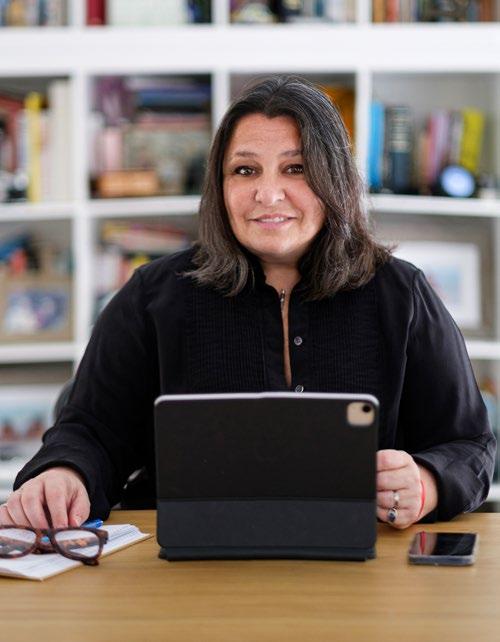
“In everything you do, you have the opportunity to get to know a large number of people, their objectives and their motivations,”
Flah says. “If you pay attention to detail, something that does not just apply to legal documents, you get to understand people and learn from them, which helps you to have a more meaningful interaction, even when you are in disagreement.”
She continues, “You are much better equipped to build a fruitful relationship, even with people across the table from you in a negotiation, if you’ve tried to understand, learn, and ask questions. At that point, you’re in a much better position to say, ‘Well, the reason I disagree with your point is X , I think there’s a better way to do it, or you are right.’”
Flah’s attentive ear has also helped her hone her leadership style. She gathers cues from her team of six and those with whom she cross-functionally works with to better appreciate when she should lead with compassion or when the right kind of challenge can be an added motivator.
“I really do try to get people interested in the work I’m asking of them or what I need them to help me with,” she explains. “As a team, we try to avoid an attitude that we’re asking people to do things for us; we let them know we are asking for their help because they have knowledge or expertise that is valuable, and we are also trying to help them so that it becomes a much more cooperative and collaborative relationship across the Latin America region.”
Flah enjoys the follow-through her role allows. Working in-house often involves kicking off a transaction and understanding the trickle-down effect of her and her team’s work.
“When I accepted to work for Citi, I was very interested in the fact that I was going to have the chance to work much more exclusively with Latin America . . . and this was also going to give me an opportunity to
broaden my experience beyond just transactions and gain a better understanding of the day-to-day in the region, whether it’s transactional work, labor matters, litigation, or the impact of a political or economic crisis in a country,” the managing director says.
Flah observes that within Latin America, there are many different cultures. She credits the diversity of approaches and experiences for making her team stronger.
“When you are in the middle of a transaction, you could do the transaction and get out. But to me, relationship building happens when you continue dealing with the issues that arise, [and] that is something that very much happens when you’re working in-house and when your work expands beyond going from one deal to the next,” she says.
“You have to know yourself, you have to understand your limitations, and you have to be aware of what you aspire to, but also what you don’t aspire to.”

Whether she’s managing her team or clients’ expectations, Flah leads with the same truth in mind: relationships benefit from the face time invested in them. “People want to see your face, and it makes a difference in the dynamics of the work you are doing,” she says. “Even for the smallest things, people establish different connections when you interact with them in person as well as when you truly engage with them.”
Flah has seen firsthand how attention to detail has helped her own team feel more seen and supported.
“When you become more senior, you need to guide, you need to encourage, you need to coach, and make sure that your team and the people you work with
understand and are passionate about what they’re doing,” Flah says. “Building teams and relationships happens when team members understand the impact of their work [and] why it’s important. I try to do that with everybody who I’m working with. My first approach is to understand who they are and what motivates them by paying attention to what they say and how they act.”
Flah also acknowledges that she is far from flawless and admits she is trying just as much as the next person. But she also notes that perfection isn’t what has gotten her this far in her career. Instead, it’s been her appetite for understanding everyone’s perspectives and listening just as actively as she speaks.
“You have to know yourself, you have to understand your limitations, and you have to be aware of what you aspire to, but also what you don’t aspire to,” she advises. “If you want to excel in your career . . . you have to work hard. At least, that’s been my experience. Nothing has come easy for me, I’ve done well, but I’ve worked very, very, very hard.”

for the love of progress
the powerRecognizing our Hispanic colleagues who help us continue to drive progress and create a better future for everyone.
THE HOLIDAYS are almost here, and if marketers have their way, we may be treating ourselves with some of their new, delicious “Latinthemed” beverages.
Here’s the thing: as the Latino population in the US continues to grow, the food landscape—including the beverages aisle— changes alongside it. And that aisle looks a lot different from when I first moved here, when good ol’ Coke and Pepsi ran the show.
Nowadays, and for reasons I have yet to understand, we are seeing an explosion of Horchata-based products, including horchata drink mix packets that you can carry in your purse, Horchata Azul pressed juice, horchataflavored iced tea, and—of course—a Starbucks Horchata Frappuccino. Somehow, horchata has become the new pumpkin spice (or rather, the Latin cousin of pumpkin spice), and—as one would expect—has been enthusiastically embraced by the hipster crowd.
And it’s not just horchata. Today, you can get canned, ready-to-drink mojitos; colorful margarita popsicles; and even bottled Mexican Mudslides (something Mexicans have never even heard of). Heck, there is even a rum and horchata combo called—what else?—Rumchata!
All of these foods and beverages are part of the latest wave of “cool” Latin-themed products that marketers hope will help their brands shine again. But nothing is more in-
triguing to me than the latest arrival: Minute Maid’s Aguas Frescas, a sad take on the flavored fruit beverages I grew up drinking in my native Mexico City.
So, for the purpose of this column (and because there seems to be a lot of confusion around this topic), I decided to zero in on and hisplain aguas frescas for the uninitiated.
WARNING: Before you keep reading and/or prepare to throw a mojito popsicle at this writer, please remember this column was conceived to be handled with a serious dose of humor.
The words aguas frescas can be literally translated as fresh waters (or cool waters), but a better, fancier description would be something like “Mexican-flavored water coolers.”
Aguas frescas are basically water-based, nonalcoholic beverages made from sugar and one or more fruits, flowers, or seeds. They are ubiquitous throughout Mexico, and more often than not are made with water that is . . . not the cleanest on the planet.
Still, they’re delish, and if you ask any Mexican for his or her favorite agua fresca, you’ll likely hear the words jamaica, chía, piña, tamarindo, and yes, horchata.
But that is not what Coca-Cola would have you believe. In June, the Atlanta-based giant expanded its Minute Maid brand with its own
Humor columnist Laura Martinez hisplains food giants’ recent fixation with traditional Hispanic beverages like aguas frescas
take on aguas frescas, a product it described as a “Latin-inspired, noncarbonated juice beverage line [that] offers a twist on juice with a unique, bold taste.”
OK, I’m not entirely sure what “Latininspired” means, but I do know that Minute Maid’s hibiscus agua fresca promises to be “flourishingly floral,” while the mango one will “make your tongue tango with mango flavor.”
The last time I had an agua fresca, my tongue certainly didn’t tango with the mango flavor—but I digress. The point is that if you drink one of these things, Coca-Cola promises you’ll be joining a “fiesta fresca” (whatever that means).
To give you an idea of how passionate some folks are about the real aguas frescas, I asked my Twitter followers to help me hisplain them, and some of their responses were pure gold. My favorite and—so far—the most accurate, is from Daniel Franco [@ChorizoDFW]:
“Like Minute Maid, but homemade with real fruit, sugar (a lot), and faucet water as the secret flavor ingredient.”
Yeah, OK, unlike Coca-Cola’s, our aguas frescas might not always be as pristine as you’d hope—but I haven’t met anyone who has died after drinking a glass or two. I drank so much of them growing up that I might have developed some kind of street food immunity.
If you’re ever in Mexico or a US city where they take their aguas frescas seriously, give them a try. You might not be joining a “fiesta fresca” and your tongue might not tango with flavor, but I promise you will fall in love with them.
And while this is not really the point of this column, let’s get one thing straight. “Horchata” is pronounced or-chaa-tah, not whore-chatta, like some people would have you believe. So save yourself the embarrassment and ditch that “h” sound—which in Spanish is always silent, unless it is next to the letter c
You are welcome.
AT NORTHWESTERN MUTUAL YOU HAVE ENDLESS OPPORTUNITIES TO MAKE AN IMPACT.
 Sandi
Sandi
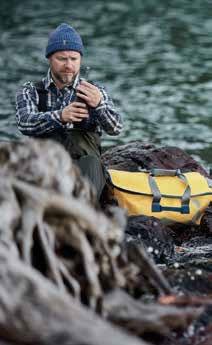

Open up opportunities across your edges, colos, and data centers with HPE GreenLake, the open and secure edge-to-cloud platform you’ve always wanted.
